Cookies on GOV.UK
We use some essential cookies to make this website work.
We’d like to set additional cookies to understand how you use GOV.UK, remember your settings and improve government services.
We also use cookies set by other sites to help us deliver content from their services.
You have accepted additional cookies. You can change your cookie settings at any time.
You have rejected additional cookies. You can change your cookie settings at any time.
- Passports, travel and living abroad
- Travel abroad
- Foreign travel advice

Warnings and insurance
The Foreign, Commonwealth & Development Office ( FCDO ) provides advice about risks of travel to help British nationals make informed decisions. Find out more about FCDO travel advice .
Before you travel
No travel can be guaranteed safe. Read all the advice in this guide and any specific travel advice that applies to you:
- women travellers
- disabled travellers
- LGBT+ travellers
Follow and contact FCDO travel on Twitter , Facebook and Instagram . You can also sign up to get email notifications when this advice is updated.
Travel insurance
If you choose to travel, research your destinations and get appropriate travel insurance . Insurance should cover your itinerary, planned activities and expenses in an emergency.
Related content
Is this page useful.
- Yes this page is useful
- No this page is not useful
Help us improve GOV.UK
Don’t include personal or financial information like your National Insurance number or credit card details.
To help us improve GOV.UK, we’d like to know more about your visit today. Please fill in this survey (opens in a new tab) .
This website uses cookies to ensure you get the best experience on our website. Learn more

Information on how to stay safe and healthy abroad. About us.
- Destinations
- Asia (Central)
- Asia (East)
- Australasia & Pacific
- Central America
- Europe & Russia
- Middle East
- North America
- South America & Antarctica
Zambia (Africa)
Advice for all destinations.
Read the information on the COVID-19: Health Considerations for Travel page for advice on travelling during the COVID-19 pandemic.
Vaccinations and malaria risk
Review both the Vaccination and Malaria sections on this page to find out if you may need vaccines and/or a malaria risk assessment before you travel to this country.
If you think you require vaccines and/or malaria risk assessment, you should make an appointment with a travel health professional:
- How to make an appointment with a travel health professional
A travel health risk assessment is also advisable for some people, even when vaccines or malaria tablets are not required.
- Do I need a travel health risk assessment?
Risk prevention advice
Many of the health risks experienced by travellers cannot be prevented by vaccines and other measures need to be taken.
Always make sure you understand the wider risks at your destination and take precautions, including:
- food and water safety
- accident prevention
- avoiding insect bites
- preventing and treating animal bites
- respiratory hygiene
- hand hygiene
Our advice section gives detailed information on minimising specific health risks abroad:
- Travel Health Advice A-Z
Other health considerations
Make sure you have travel insurance before travel to cover healthcare abroad.
Find out if there are any restrictions you need to consider if you are travelling with medicines .
Know how to access healthcare at your destination: see the GOV.UK English speaking doctors and medical facilities: worldwide list
If you feel unwell on your return home from travelling abroad, always seek advice from a healthcare professional and let them know your travel history.
Vaccinations
- Confirm primary courses and boosters are up to date as recommended for life in Britain - including for example, seasonal flu vaccine (if indicated), MMR , vaccines required for occupational risk of exposure, lifestyle risks and underlying medical conditions.
- Courses or boosters usually advised: Hepatitis A; Poliomyelitis; Tetanus.
- Other vaccines to consider: Diphtheria; Hepatitis B; Rabies; Typhoid.
- Selectively advised vaccines - only for those individuals at highest risk: Cholera; Yellow Fever.
Yellow fever vaccination certificate required for travellers aged 1 year or over arriving from countries with risk of yellow fever transmission and for travellers having transited for more than 12 hours through an airport of a country with risk of yellow fever transmission.
Notes on the diseases mentioned above
Risk is higher during floods and after natural disasters, in areas with very poor sanitation and lack of clean drinking water.
- Diphtheria : spread person to person through respiratory droplets. Risk is higher if mixing with locals in poor, overcrowded living conditions.
Risk is higher where personal hygiene and sanitation is poor.
Risk is higher for long stays, frequent travel and for children (exposed through cuts and scratches), those who may require medical treatment during travel.
- Tetanus : spread through contamination of cuts, burns and wounds with tetanus spores. Spores are found in soil worldwide. A total of 5 doses of tetanus vaccine are recommended for life in the UK. Boosters are usually recommended in a country or situation where the correct treatment of an injury may not be readily available.
- Typhoid : spread mainly through consumption of contaminated food and drink. Risk is higher where access to adequate sanitation and safe water is limited.
- Yellow Fever : spread by the bite of an infected, day-biting mosquito. The disease is mainly found in rural areas of affected countries but outbreaks in urban areas do occur. Vaccination is usually recommended for all those who travel into risk areas. (View yellow fever risk areas here), and areas where there is an outbreak ongoing (check the 'news' section for outbreaks). In addition, certain countries may want to see proof of vaccination on an official yellow fever vaccination certificate - check above under Immunisations .
Malaria is a serious and sometimes fatal disease transmitted by mosquitoes.You cannot be vaccinated against malaria.
Malaria precautions
- Malaria risk is high throughout the year in all areas including Lusaka.
- Malaria precautions are essential. Avoid mosquito bites by covering up with clothing such as long sleeves and long trousers especially after sunset, using insect repellents on exposed skin and, when necessary, sleeping under a mosquito net.
- Check with your doctor or nurse about suitable antimalarial tablets.
- See malaria map – additional information can be found by clicking on the Regional Information icon below the map.
- High risk areas: atovaquone/proguanil OR doxycycline OR mefloquine is usually advised.
- If you have been travelling in a malarious area and develop a fever seek medical attention promptly. Remember malaria can develop even up to one year after exposure.
- If travelling to an area remote from medical facilities, carrying standby emergency treatment for malaria may be considered.
Other Health Risks
Schistosomiasis.
There is a risk of exposure to coronavirus (COVID-19) in this country.
Please be aware that the risk of COVID-19 in this country may change at short notice and also consider your risk of exposure in any transit countries and from travelling itself.
- The 'News' section on this page will advise if significant case increases or outbreaks have occurred in this country.
Prior to travel, you should:
- Check the latest government guidance on the FCDO Foreign travel advice and country specific pages for travel to this country and the rules for entering the UK on return.
- Ensure you are up to date with UK recommendations on COVID-19 vaccination.
- You can check this in the FAQ's.
- If you are at increased risk of severe COVID-19 you should carefully consider your travel plans and consider seeking medical advice prior to making any decisions.
For further information, see Coronavirus disease (COVID-19) and COVID-19: Health Considerations for Travel pages.
Polio Vaccination Exit Recommendations
If you are visiting this country for longer than 4 weeks, you may be advised to have a booster dose of a polio-containing vaccine if you have not had one in the past 12 months. You should carry proof of having had this vaccination. Please speak to a travel health professional to discuss.
Zika Virus Infection
This country has been categorised as having a risk of Zika (ZIKV) virus transmission.
ZIKV is mainly spread through mosquito bites. The mosquito responsible most commonly bites during daylight hours and is common in towns and cities.
The illness is usually mild but infection during pregnancy may lead to babies being born with birth defects. There is no vaccine currently available against ZIKV.
Advice for All Travellers
You should practice strict mosquito bite avoidance at all times. Do not travel without adequate travel insurance . Seek pre-travel health advice from a travel health professional 6 to 8 weeks in advance of travel.
Additional recommendations for pregnant travellers or those planning pregnancy
If you are planning pregnancy in the very near future you should consider whether you should avoid travel to this country.
- contact your GP, obstetrician or midwife for further advice, even if you have not been unwell or had any symptoms of ZIKV infection
- use barrier methods of contraception during and after travel and for the duration of your pregnancy, even in you have not been unwell or had any symptoms of ZIKV infection
- If you develop symptoms of ZIKV infection, it is recommended that you avoid becoming pregnant for a further 2 months following your recovery
- 2 months afterwards if you are female
- 3 months afterwards if you are male or if both partners travelled
These measures reduce the chance of sexual transmission of ZIKV and/or the risk of ZIKV infection in pregnancy.
For further information, see Zika virus infection page.
- 27 May 2024 - Cholera in Africa: Update 1
- 23 May 2024 - Advice on Dengue Fever if Travelling Abroad
- 58 additional items in the news archive for this country
back to top
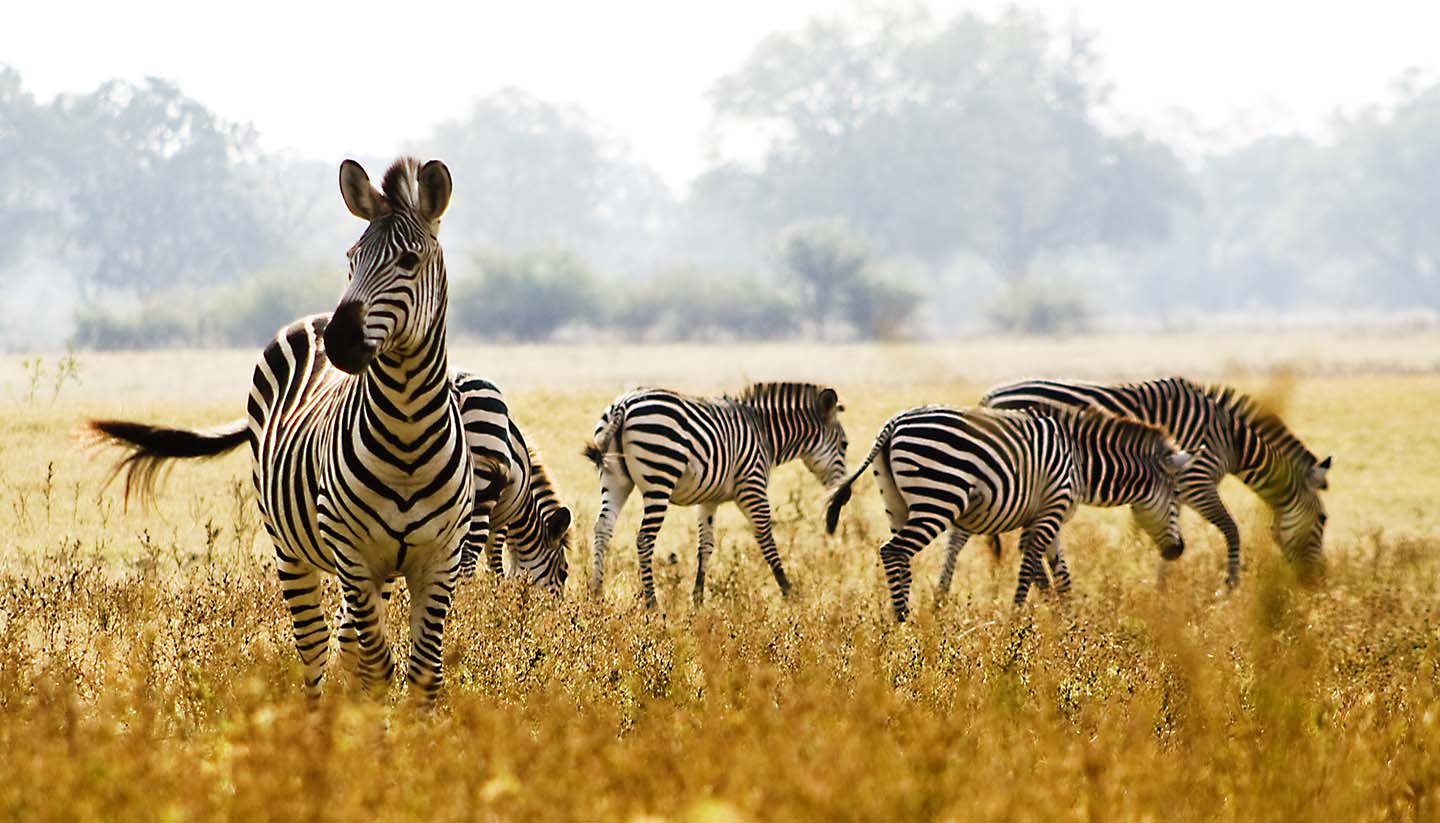
Introducing Zambia
About zambia.
- Images of Zambia
- History, language & culture
- Weather & geography
- Doing business & staying in touch
Plan your trip
- Travel to Zambia
- Where to stay
While you’re there
- Things to see & do
- Shopping & nightlife
- Food & drink
- Getting around
Before you go
- Passport & visa
- Public Holidays
- Money & duty free
Book your flights
Zambia travel guide
Vast lakes and wetlands, long and life-giving rivers, breathtaking African sunsets and a rich tradition of guiding all contribute to Zambia’s immense appeal as a safari destination.
Its most famous landmark, Victoria Falls, which it shares with Zimbabwe, attracts nature lovers and thrill-seekers alike. Visit in March or April, when the falls are in full spate, and you’ll be bowled over by the rainbows, the roar of the cascading water and the dense, drenching clouds of spray.
Livingstone, the closest urban hub to the falls and once Zambia’s colonial capital, has a number of accommodation options, colourful markets and a busy restaurant and nightlife scene. The mighty Zambezi River itself is glassy-smooth above the falls and wild below. It’s perfect for booze cruises, canoe safaris and adrenaline activities such as white-water rafting and river surfing. There are a plethora of beautiful riverside lodges dotted along its banks.
Beyond the falls, Zambia is not as high-profile a safari destination as Kenya, Tanzania or South Africa, but it’s a favourite with those in the know. Packed with untamed wilderness and fascinating wildlife, minus the crowds, Zambia is the African bush at its most raw and romantic.
The country’s excellent safari lodges and camps will put you fully in touch with your wild surroundings. You’ll fall asleep to the hooting of owls, the whooping of hyenas, the distant roar of lions, and the loud munching of hippos grazing nearby.
Almost a third of Zambia’s landmass is given over to national parks and game reserves, but South Luangwa National Park is the cream of the crop for sheer density of big game. It’s also the home of the legendary African walking safari.
Another of Zambia’s drawcards is the people. The country is home to a staggering 72 different ethnic groups, each of whom have their own distinctive cultural traits and traditions, but all of whom are unfailingly warm and welcoming.
752,614 sq km (290,586 sq miles).
16,717,332 (UN estimate 2016).
20 per sq km.
President Hakainde Hichilema since 2021.
Travel Advice
The Foreign, Commonwealth & Development Office ( FCDO ) provides advice about risks of travel to help British nationals make informed decisions. Find out more about FCDO travel advice .
Before you travel
No travel can be guaranteed safe. Read all the advice in this guide and any specific travel advice that applies to you:
- women travellers
- disabled travellers
LGBT+ travellers
Follow and contact FCDO travel on Twitter , Facebook and Instagram . You can also sign up to get email notifications when this advice is updated.
Travel insurance
If you choose to travel, research your destinations and get appropriate travel insurance . Insurance should cover your itinerary, planned activities and expenses in an emergency.
This advice reflects the UK government’s understanding of current rules for people travelling on a full ‘British citizen’ passport from the UK, for the most common types of travel.
The authorities in Zambia set and enforce entry rules. If you’re not sure how these requirements apply to you, contact the Zambian High Commission in the UK .
COVID-19 rules
There are no COVID-19 testing or vaccination requirements for travellers entering Zambia.
Passport validity requirements
To enter Zambia, your passport must have an ‘expiry date’ at least 6 months after the date you arrive. It must have at least 2 blank pages for entry stamping.
Make sure you get your passport stamped.
Check with your travel provider that your passport and other travel documents meet requirements. Renew your passport if you need to.
You will be denied entry if you do not have a valid travel document or try to use a passport that has been reported lost or stolen.
Dual nationality
Zambia recognises dual nationality. However, to avoid delays at the airport you should leave Zambia on the same passport you used to enter.
Visa requirements
British passport holders do not need a visa to enter Zambia. You must be able to show:
- valid return or onward tickets
- enough money for your stay
Tourists may remain in Zambia for a total of 90 days in any 12 month period. For business visitors the maximum stay in Zambia over a 12 month period is 30 days.
For further information, email the Zambian High Commission at [email protected] or contact the Zambian Department of Immigration .
KAZA UNIVISA
The KAZA UNIVISA, for use in the Kavango Zambezi Transfrontier Conservation Area, is valid for unlimited travel between Zambia and Zimbabwe and for day trips to Botswana. It costs 50 US dollars and is valid for 30 days.
You can apply online in advance , or get the visa on arrival if you are arriving at:
- Kenneth Kaunda International Airport, Lusaka
- Harry Mwanga Nkumbula International Airport, Livingstone
- by land at Livingstone, Victoria Falls (Zambia-Zimbabwe border)
- by land at Kazungula (Zambia-Botswana border)
Departure tax
On leaving Zambia, all air passengers must pay the equivalent to 25 US dollars for international travel and a security charge of 3 US dollars for domestic travel. Both charges are normally included in the cost of an air ticket, but you will have to pay in cash with Zambian kwacha if they are not.
Vaccination requirements
At least 8 weeks before your trip, check the vaccinations and certificates you need in TravelHealthPro’s Zambia guide .
Depending on your circumstances, this may include a yellow fever vaccination certificate.
Customs rules
There are strict rules about goods you can take into or out of Zambia . You must declare anything that may be prohibited or subject to tax or duty.
This guide also has safety advice for regions of Zambia .
There is a high threat of terrorist attack globally affecting UK interests and British nationals, including from groups and individuals who view the UK and British nationals as targets. Stay aware of your surroundings at all times.
UK Counter Terrorism Policing has information and advice on staying safe abroad and what to do in the event of a terrorist attack. Find out how to reduce your risk from terrorism while abroad .
Terrorism in Zambia
Terrorist attacks in Zambia cannot be ruled out. Attacks could be indiscriminate, including in places visited by foreigners.
Political situation
There are occasionally demonstrations and protests in Lusaka and other urban areas. They can disrupt local transport and become violent. Avoid them and leave the scene as soon as possible if a crowd develops. Do not cross protester roadblocks as this is likely to provoke a violent reaction from demonstrators.
Travel in larger cities and the major game parks is generally safe during daylight hours. However, serious crimes can happen. Pre-arrange transport to avoid walking at night and stay aware of your surroundings, especially after dark. Stay alert and take precautions against vehicle crime by:
- keeping windows closed and doors locked when travelling
- ignoring hitchhikers or anyone trying to flag you down
- watching out for potential carjackers when approaching locked gateways at night, or if an object has been placed to block the road
- only using cars arranged for you by a hotel or tour operator
Keep valuables and originals of important documents in a safe place and carry a copy of your passport’s photo page and entry stamp.
Laws and cultural differences
Pornography laws.
It is illegal to possess pornographic material in Zambia, and offenders may be jailed or deported.
Illegal drugs
It is illegal to possess or use drugs, including marijuana. Drug use and smuggling are serious offences.
Using cameras in secure areas
It’s illegal to take pictures of sensitive sites such as army barracks or government buildings, and you could be arrested. If in doubt, do not take pictures.
Same-sex sexual activity is illegal in Zambia, and anyone convicted can get a long prison sentence.
Read more advice for LGBT+ travellers .
Wildlife, animal products and souvenirs
It is illegal to buy, sell, kill or capture any protected wild animal or trade its parts without a licence. Anyone caught purchasing or trafficking such goods will be prosecuted and get a fine or a prison sentence.
Outdoor activities and adventure tourism
Wild animals in the bush, including venomous snakes, are unpredictable and do kill. Whether you are travelling on land or water, you are at risk of potentially fatal animal attacks.
Adventure sports, including in the Victoria Falls area, carry risks. There have been serious accidents and deaths. The quality of medical care varies greatly. Follow safety instructions closely. Make sure you have appropriate travel insurance and accessible funds to cover the cost of any medical treatment or potential repatriation.
Transport risks
Road travel.
If you are planning to drive in Zambia, see information on driving abroad .
You can use a UK photocard driving licence to drive in Zambia for up to 90 days. If you still have a paper driving licence, you may need to update it to a photocard licence . If you plan to stay in Zambia for more than 90 days, you’ll need to have the correct version of the international driving permit ( IDP ) or a Zambian driving licence.
Hire car companies often have stricter requirements for their customers, such as a year of driving experience, a higher minimum age and holding an IDP .
Road conditions and driving standards
Many roads are severely potholed. During the rainy season from November to April, sudden floods can wash away bridges and roads.
Vehicles in Zambia are often inadequately maintained and badly driven. There are frequent fatal crashes. Drink-driving and driving while on a mobile are illegal but commonplace. Zambia’s Road Traffic and Safety Agency prosecutes traffic offenders through a fast-track court system.
It is dangerous to drive outside the main towns after dark due to abandoned vehicles, pedestrians and stray animals on the road, and vehicles being driven without lights.
Buses and minibuses
Travel by long-distance public transport can be dangerous due to poor standards of driving, lack of rest periods for drivers, the poor quality of vehicles and poor road conditions. Minibuses in urban areas are usually severely overcrowded, poorly maintained and badly driven.
This section has safety advice for regions of Zambia. It only covers regions where FCDO has specific advice.
You should also read FCDO ’s overall travel advice and safety and security advice .
Zambia- DRC border
Take care when travelling in rural parts of Zambia, close to the border with the Democratic Republic of Congo ( DRC ). The border is not demarcated and there is a risk of inadvertently illegally entering DRC .
Legitimate border crossings in these areas are generally safe.
Before you travel check that:
- your destination can provide the healthcare you may need
- you have appropriate travel insurance for local treatment or unexpected medical evacuation
This is particularly important if you have a health condition or are pregnant.
Vaccinations and health risks
At least 8 weeks before your trip check:
- the latest information on vaccination recommendations and health risks in TravelHealthPro’s Zambia guide
- where to get vaccines and whether you have to pay on the NHS travel vaccinations page
Parts of Zambia, including Lusaka, are experiencing a cholera outbreak which is spreading across the country. You can take measures to reduce the risk of cholera infection .
There is currently an outbreak of anthrax in Zambia, affecting rural and urban areas. Do not touch dead animals or carcases. Buy meat only from reputable butchers and ensure that meat is thoroughly cooked. Avoid animal products that could have been sourced from animals that may have died of natural causes. If you suspect that you have come into contact with anthrax, seek urgent medical advice.
The UNAIDS Zambia country progress report of 2020 estimated the overall HIV prevalence in the adult population is 11%, compared to a prevalence of 0.2% in adults in the UK. Take normal precautions to avoid exposure to HIV/AIDS .
The legal status and regulation of some medicines prescribed or bought in the UK can be different in other countries.
Read best practice when travelling with medicines on TravelHealthPro .
The NHS has information on whether you can take your medicine abroad .
Healthcare facilities in Zambia
FCDO has a list of medical providers in Zambia .
Medical facilities throughout Zambia are of a lower standard than in the UK. Facilities in rural areas are basic and emergency services are limited. Carry basic medical supplies. Make sure you have adequate travel health insurance and accessible funds to cover the cost of any medical treatment abroad and repatriation.
Travel and mental health
Read FCDO guidance on travel and mental health . There is also mental health guidance on TravelHealthPro .
The Foreign, Commonwealth & Development Office ( FCDO ) cannot provide tailored advice for individual trips. Read this travel advice and carry out your own research before deciding whether to travel.
Emergency services in Zambia
Police: 991
Ambulance: 992
Fire: 993
Contact your travel provider and insurer
Contact your travel provider and your insurer if you are involved in a serious incident or emergency abroad. They will tell you if they can help and what you need to do.
Refunds and changes to travel
For refunds or changes to travel, contact your travel provider. You may also be able to make a claim through insurance. However, insurers usually require you to talk to your travel provider first.
Find out more about changing or cancelling travel plans , including:
- where to get advice if you are in a dispute with a provider
- how to access previous versions of travel advice to support a claim
Support from FCDO
FCDO has guidance on staying safe and what to do if you need help or support abroad, including:
- finding lawyers and funeral directors in Zambia
- dealing with a death in Zambia
- being arrested or imprisoned in Zambia
- getting help if you’re a victim of crime
- what to do if you’re in hospital
- if you’re affected by a crisis , such as a terrorist attack
Contacting FCDO
Follow and contact FCDO travel on Twitter , Facebook and Instagram . You can also sign up to get email notifications when this travel advice is updated.
You can also contact FCDO online .
Help abroad in an emergency
If you’re in Zambia and you need emergency help from the UK government, contact the British High Commission in Lusaka .
FCDO in London
You can call FCDO in London if you need urgent help because something has happened to a friend or relative abroad.
Telephone: 020 7008 5000 (24 hours)
Find out about call charges
Risk information for British companies
The Overseas Business Risk service offers information and advice for British companies operating overseas on how to manage political, economic, and business security-related risks.

Related Articles
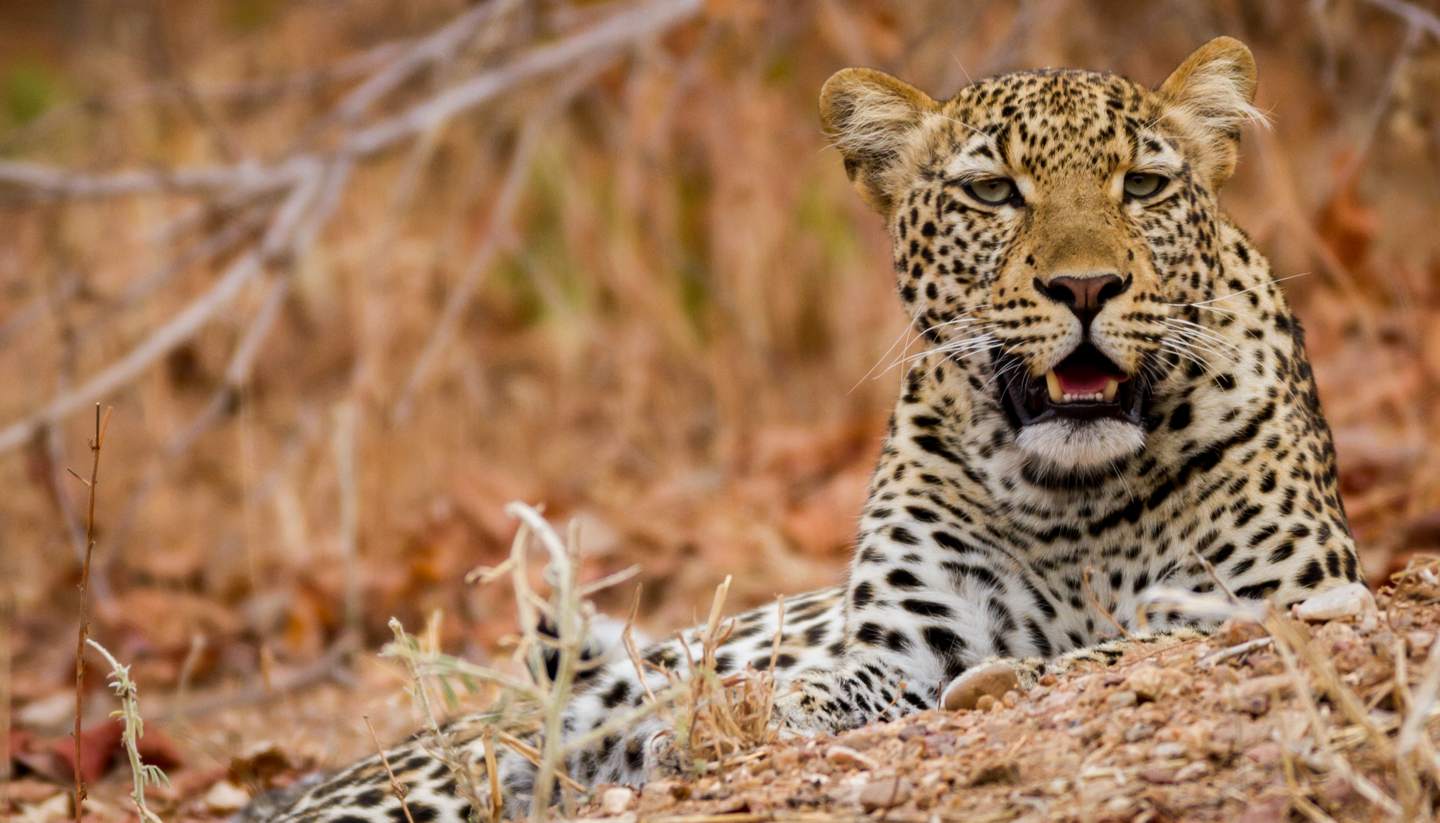
Taking a walk on the wild side in Zambia
With its bountiful wildlife, new lodges and crowd-free parks, Zambia is one of the world's hottest safari destinations, says Lauren Jarvis.
Book a Hotel
© Columbus Travel Media Ltd. All rights reserved 2024

Zambia Travel Guide
Your ultimate zambia travel guide, with tips, ideas on things to do, and best things to see in zambia. great for first-time and returning travelers..
The Smoke that Thunders is a suitable name for this impressive waterfall.
You can hear the roar from afar and feel the power when you are up close. Located in Livingstone, Zambia on the Zambezi River, Victoria Falls is one of the top sites to see in all of Africa.
The world’s largest waterfall by sheer volume, it dwarfs our beloved Niagara Falls in Canada.
Zambia, once known as Northern Rhodesia, is a former British colony and also the adventure capital of Africa!
This Zambia travel guide will help you plan your next vacation.
Popular Guides
- Best of Victoria Falls
- Bucket List Travels
Our Highlight
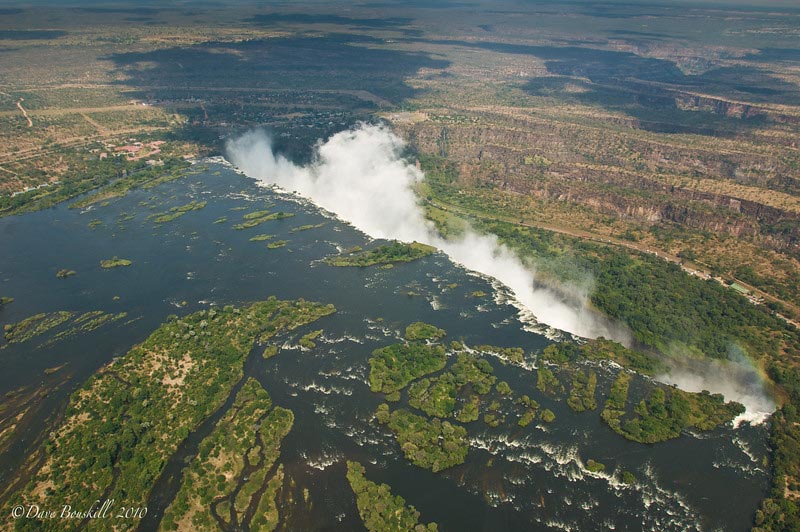
Table of contents
Table of Contents
Fast Facts about Zambia
- Zambia power voltage is 230V 50Hz; Plug C, D & G
- The Zambia currency is the Zambian kwacha and is around 5,000 ZMK to 1 USD
- Single and double entry visas can be obtained at the airport, border crossings or your local Zambian embassy. Multi-entry visas must be obtained in advance from an embassy.
- Beware of Chikungunya, a viral disease transmitted by the bite of infected mosquitoes. This outbreak continues to affect parts, Africa. Symptoms can take up to 12 days to appear but usually begin within 3-7 days after being bitten by an infected mosquito.
- Symptoms generally include fever and joint pain; other symptoms can include fatigue, headache, nausea, vomiting, muscle pain, and rash.
- Travelers spending a lot of time outdoors or visiting game parks have an increased risk of being bitten by a tsetse fly which can cause African Sleeping Sickness. Remember that these flies: bite during the day, are attracted to bright, dark colors and can bite through lightweight clothing.
- Camouflage or military clothing is not permitted so don’t pack it
- The water is not potable ; drink only bottled water.
- SIM Cards can be bought in major cities. Airtel, MTN and Vodafone are the carriers and prices are very reasonable.
Things to See and Do in Zambia
- We spent 3 days at the falls in Livingstone and we filled it with not stop thrills from start to finish. Dream Trip: Destination Victoria Falls
- Go on a walking safari to South Luangwa, which is one of the best places in Africa to spot big game on foot
- Go Whitewater rafting on the Zambezi River
- Sit at Devil’s Pool on the top of Victoria Falls
- Take a microlight flight or helicopter tour over Victoria Falls
Accommodation
Budget: You can find a variety of hostels and budget hotels for 185-550 ZMW per night. Enjoy hot showers, dorms or private rooms, shared kitchens, and nearby restaurants and shopping areas. Staff can sometimes help you out with finding good deals on local safaris or for general travel advice.
Mid-Range: For mid-range hotels, expect to pay around 660-1,800 ZMW per night. Amenities include rooms with flat-screen TVs and tea/coffee facilities, an outdoor pool with a lounge area, free breakfast, and a hotel restaurant and bar.
High-End: For five-star hotels, you will pay around 2,000-3,300 ZMW per night. These hotels come with private suites with terraces and living rooms, spa services, an outdoor pool with a poolside bar, a fitness center, multiple hotel restaurants, a polished bar, and room service.
Staples of Zambian cuisine include nshima (pounded white maize), vegetables, stews, fish, insects (especially caterpillars), and beer. Nshima is one of the most common items at any meal and is sometimes a meal itself with vegetables and meat or fish added to it. If you are near a market and want a treat, look for vitumbuwa (fried dough balls). Plan to spend around 160 ZMW per day on food.
The Best Ways to Get Around Zambia
Getting to zambia:.
Flights: The main airport to fly into is the Kenneth Kaunda International Airport, located 16 miles from the capital of Lusaka. Other airports include the Harry Mwanga Nkumbula International Airport in Livingstone, though it mainly takes African and British flights. You can check for the best flights to Zambia on Skyscanner .
Transportation:
Buses: Public buses are a cheap way to get around towns, though rides may be bumpy. Fares will cost about 40 ZMW. You can also look for private buses that go between major destinations (such as Lusaka to Livingstone for 120 ZMW) and are generally smoother rides. It is best to book at least one day in advance.
Taxis: Taxis are not metered, so make sure to check around to see what a fair price is. Licensed taxis will have the word “taxi” on the top of the vehicle with two stripes.
Car Rental: You might be able to find some cars, but driving is not as recommended if you do not know the roads. Many rental companies will not lend you a car if you do not have a chauffeur with you. It is best if you have transportation already provided for you, such as with a safari company. If you insist on a car, it can cost 4,750 ZMW per day.
Uber: There is no Uber, but there is Ulendo, a taxi app which operates similarly to Uber.
When to go To Zambia
The best time to go to Zambia is between the months of June and November. During this time, it is the dry season, temperatures are in the 80s to low 90s, and you have the best chance of seeing the most wildlife.
However, if you are an avid birdwatcher, March will give you great opportunities to see the most birds, though know that it is still the wet season.
Where to Stay in Zambia
Taj Pamodzi, Lusaka: Just a short trip to the Lusaka National Museum and the Kabwata Cultural Village, this is a great four-star hotel in Lusaka. Choose from a variety of rooms (standard rooms with flat-screen TVs and balconies to suites to whirlpool tubs and dining areas), and enjoy the numerous hotel amenities, including free breakfast, a squash court, a gym, an outdoor pool and hot tub, a hotel restaurant with a café and bar, a steam room, and a sauna.
Victoria Falls Waterfront : Stay just 5.5 miles from Victoria Falls at this hotel. Set on the Zambezi River, see the river from your hotel room while enjoying two outdoor pools, a riverside hotel and restaurant, a sauna, spa services, a fitness center, and a shuttle to Victoria Falls Airport.
Zikomo Safari Camp : If you’re heading to South Luangwa National Park, stay at this all-inclusive camp. Across the river from the National Park, stay in a chalet with a bathroom, electric fan, mosquito net, and a private deck. Activities include safari walks and tours of the South Luangwa National Park, as well as tours to the local village and nearby island.
Check out our favorite booking platforms Booking.com , Tripadvisor and VRBO for the best deals on accommodation.
What to Pack for Zambia
Zambia has a tropical climate modified by altitude (elevation).
It has a dry season from May to the end of October and a wet season from November to April.
During the wet season, some areas become inaccessible and many camps in Kafue, Lower Zambezi, and more remote parks are closed.
The dry season is divided into the cool dry season (May to August) and the hot dry season (September and October).
- Waterproof bag – the bag has two functions, protecting your stuff from the rain and also from the dust, especially if you’re traveling to drier regions.
- Footwear – especially important if going you are heading on a safari! Pack a pair of lightweight, durable, waterproof and comfortable shoes and also a pair of flip-flops or sandals that you can change into after a long day of sightseeing.
- Protection from the elements – pack sunscreen, sunglasses, a hat, a loose sarong or wrap to cover yourself from the sun and bug-spray to prevent getting bitten by a mosquito (that might have malaria!)
- Layers – pack the basic tropical clothes and make sure to include long pants, long-sleeve tops and some warm clothes for those chilly nights.
- Avoid packing dark colored clothes – tsetse flies are drawn to dark colors, like blue and black clothing, and their bite can give you African Sleeping Sickness. Stick to light, neutral colors but avoid packing white clothes as they will get dirty and dusty pretty quickly.
- Pack for Humidity – for humid weather it is best to pack fabrics that breathe as much as possible and natural fabrics, like cotton, linen or rayon (avoiding silk, wool and polyester). Clothing should be loose and comfortable to encourage the flow of air and allow moisture to evaporate
See our packing tips: packing list for smart travel.
See our packing tips: packing list for smart travel & How to Pack for a Safari
Zambia Travel Guide: Best Booking Resources
Whenever we travel to we make sure to start with these companies. We have tried a lot of different ones over the years and all of these have consistently proven to be the best when it comes to offering great prices.
We have used every one of these personally and continue to do so.
- Booking.com : This is our go site to when comparing prices for accommodation. It usually has the cheapest prices, especially in Europe and we love their interface. Not to mention you get free cancellation and you are guaranteed the best price.
- Trip Advisor : What we like about Trip Advisor is that we can look at all the reviews and then book our accommodation. TripAdvisor is where we go when we want to compare prices with multiple accommodation providers.
- VRBO : is the main search engine we use when we are looking for a home or apartment rental. It can sometimes be cheaper than hotels and it is the best way to stay in areas that offer a more local feel.
- Hostelworld : With one of the largest databases of hostels in the world, Hostelworld is the go-to site when you are looking for budget accommodation.
- Skyscanner : This is the first place we check for flights. It consistently comes back with the cheapest and best options. It allows us to compare a lot of airlines to get the best price.
- Rome 2 Rio : If you want to see how to get somewhere by plane, train, bus, ferry or car Rome2Rio lays it all out for you as well as related costs.I love how they show it all to you on a Google Map and it works offline.
- Get Your Guide: For all your day trip and city guide needs, we use Get Your Guide. It has the world’s largest collection of things to do with more than 30,000 activities in 7500 destinations.
- World Nomads Insurance: When traveling to Italy you should always have travel insurance. We have found the best bang for your buck is by far World Nomads.
Zambia Travel Guide: Related Articles
To browse all our articles and guides about Zambia click here.
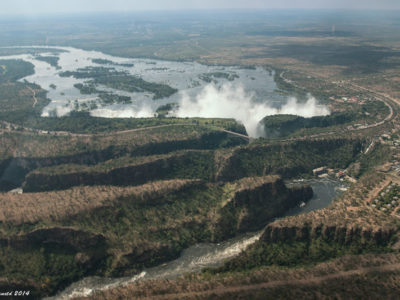
Incredible Things to Do in Victoria Falls, Zambia

Zambia travel tips: What you should know before you visit Zambia
We are proud members of the U.S. Peace Corps community and love to partner with our fellow Peace Corps Volunteers, who often have some of the best insights into the culture and authentic travel experiences available in their host country. We asked Lianne Bronzo, a recent Volunteer in Zambia, to share her expertise on travel in Zambia.
Africa is a massive continent hosting a great deal of diversity in terms of people, cultures, and landscapes. Then within each country is even more diversity and uniqueness. Zambia is no exception.
What is it like to travel in Zambia?
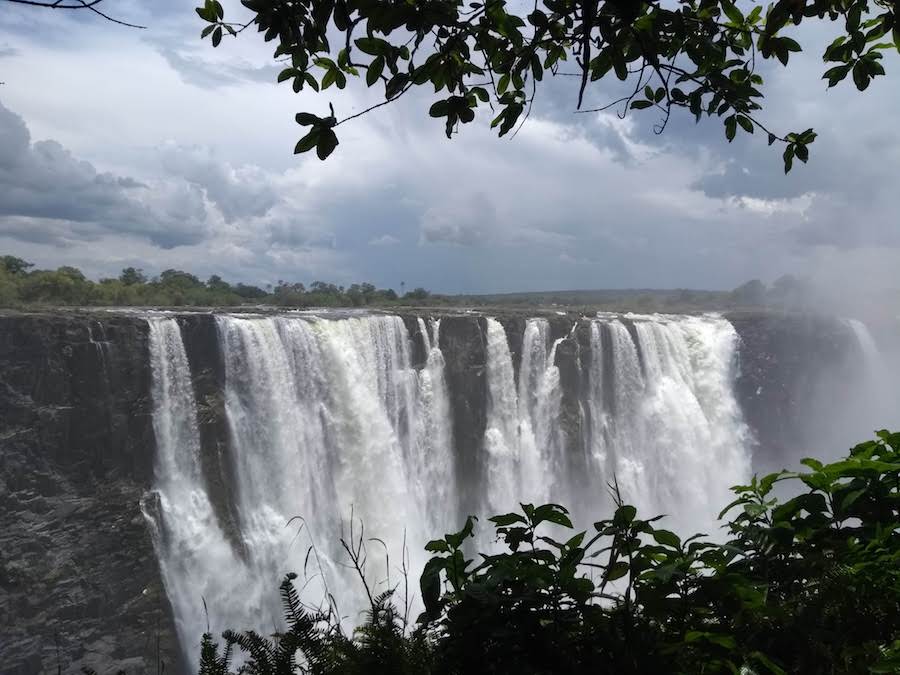
While the most famous landmark is Mosi-o-tunya (the smoke that thunders), most commonly referred to as Victoria Falls , there’s a plethora of pure beauty hidden in pockets spanning the country.
Zambia is about the size of Texas, but traveling between destinations can take much longer due to the road networks and conditions, but that means less construction and more natural landscapes. So even with the logistical challenges, those that choose to venture here will be rewarded with unique scenery and exciting wildlife among little to no tourist crowds.
Although there aren’t any beaches in the landlocked country, Zambia is drowning with rivers, lakes, waterfalls, and even a few natural hot springs.
Perhaps the best part about living in Zambia for the past two years has been getting to know some of the warmest people I’ve truly ever met. People are quick to smile and have taught me so much in terms of hard work, patience, and resilience. I must admit that Zambia is the most difficult place I’ve ever traveled due to the vast distances alone, but it is grossly underrated as a travel destination.
Zambia’s Highlights
Wildlife: Zambia is home to the all of the Big Five, in addition to an abundance of other majestic animals such as wild dogs. Some of the best places for wildlife viewing are South and North Luangwa National Parks , Lower Zambezi National Park , Kasanka National Park (specifically to experience the largest mammal migration in the world!), and Kafue National Park . One may find the safari costs and crowds much smaller than neighboring Tanzania.
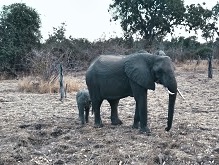
Water: Lake Tanganikya, Lake Bangweulu, and Lake Kariba are some of the large bodies of water suitable for swimming, fishing, boat rides, or just lazing at the beach. The Zambezi River is also a popular spot for water activities.
If you’re itching to chase more than one waterfall, Northern Zambia has got plenty. Kundalila, Chishimba, Kalambo, Kabweluma, and Lumangwe are a few noteworthy waterfalls , but there are plenty more in the watery north. Ngonye Falls is another impressive site with falls spanning 1km in Western Province. Getting to these waterfalls can be tricky as there is little public transport, so hitchhiking, hiring a private taxi, bicycling, or self-driving are the only options. You will be rewarded for these efforts by likely being the only people there to swim in the delightful falls! Most of these places have basic camp sites as well.
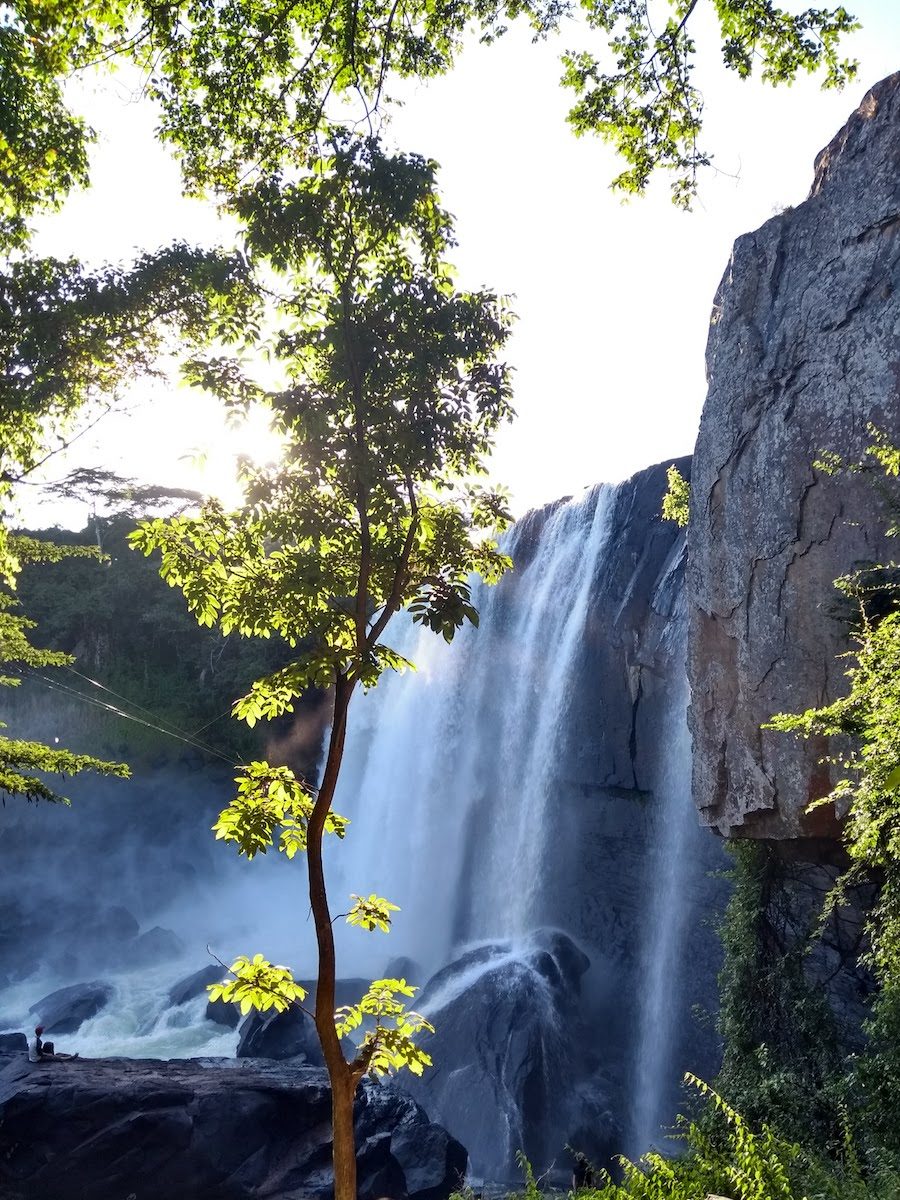
Culture: 73 languages are spoken in Zambia and they all come with their own cultures and traditions. Some tribes have annual festivals such as the Bemba festival (Ukusefya pa Ngwena) and Lozi Kuomboka ceremony. Check out the Zambia Tourism website for details.
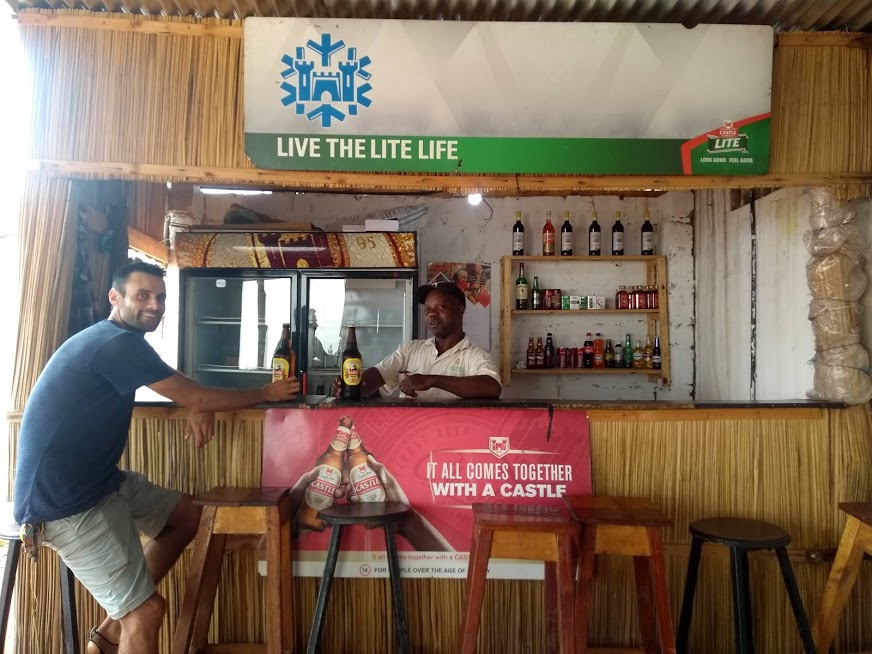
Where to Stay in Zambia
These are some of the best places to stay, recommended by Peace Corps Volunteers, around Zambia:
Where to stay in South Luangwa National Park: Marula Lodge – Affordable accommodations with a friendly staff and discounts for Peace Corps Volunteers!
Where to stay in Lusaka, Zambia: Lusaka Backpackers and Natwanga Backpakers are the most popular places for Peace Corps volunteers.
Where to stay in Livingstone, Zambia: Many of the backpacker places are more or less the same. Cafe Zambezi, Fawlty Towers, Jollyboys Backpackers, and Livingstone Backpackers are the most popular spots.
I recommend Fawlty Towers in Livingstone because they have a nice garden area and pool in the back and offer a free shuttle bus to Victoria Falls.
Where to stay in North Zambia: Lake Chila Lodge is a popular spot for the Mbala volunteers up North. It’s a good stopping point when visiting Lake Tanganikya and Kalombo Falls.
Samfya Marines Beach Lodge is popular amongst volunteers, but may be a bit on the expensive side. It has as private beach.
If you must stop in Nakonde , I recommend Muchinga Exquisite Lodge for a safe and cheap place. I don’t recommend Nakonde at all, but some people stop over en route to Tanzania if traveling by land and not the train.
Practical Zambia Travel Information
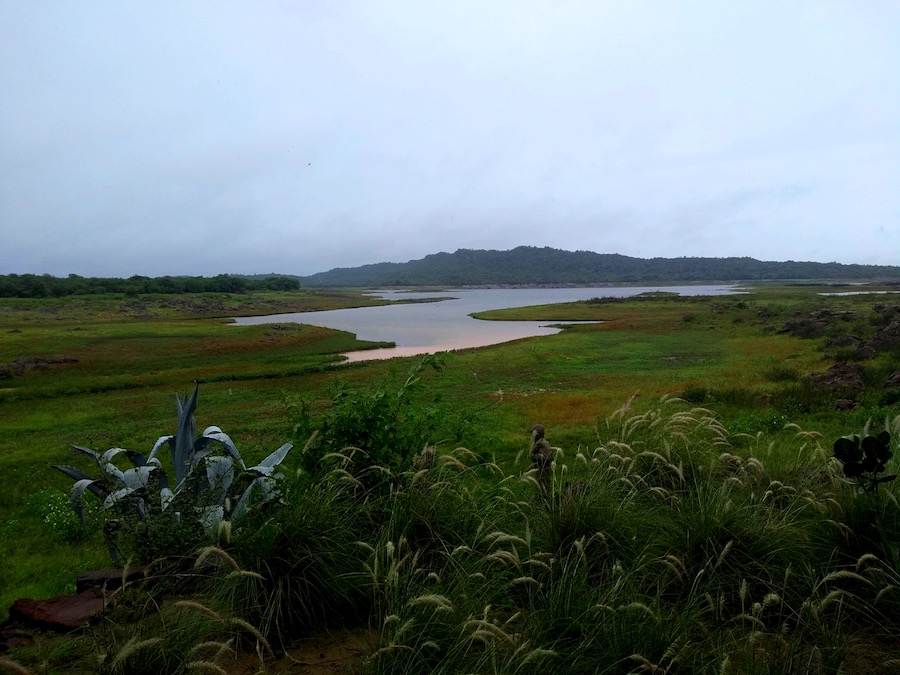
When to visit Zambia
May – July: Cool dry season. You won’t see a drop of rain, but it can get quite chilly at night in Lusaka. August – October: Hot dry season. Fields burn to prepare for planting season to add more to the heat. October is especially brutal, though the dry season is a good time for wildlife viewing. Victoria Falls may not be as powerful toward the end of the dry season. November: First half is dry and then the rains trickle in toward the end of the month, depending on the region (the north is wetter than the south). This is the best time to view the bat migration at Kasanka National Park. December – April: Rainy season. Vibrant green landscapes and mangoes litter the ground, though wildlife is more difficult to spot. Some unpaved roads become impassable during heavy rains.
Costs in Zambia
Like most destinations, budgets can vary wildly. Barebone backpackers can survive on as little as $30 USD per day but the sky is the limit for those seeking luxurious experiences. Most people will find a suitable budget to meet their comfort levels.
Average costs as of March 2020: A bottle of local beer: K10 ($0.66 USD) A filling Zambian meal of nshima (thick maize porridge), fish, and vegetables: K25-50 ($1.60 – $3.20 USD) A western meal: K60-150 ($4 USD – $10 USD) A bed in a dorm room: From K100 ($6.60 USD) A double bed in a very basic lodge: From K150 ($9.95 USD) A comfortable private room in a nicer lodge: From K300 ($19.90 USD) A bus from Livingstone to Lusaka: From K200 ($13.27 USD) but constantly changing due to gas prices
Communication: Cell phones in Zambia
If you have an unlocked phone, it’s easy to get a SIM card for less than a dollar, though you will need to show your passport. From there, you can buy Talk Time to add money for purchasing minutes and data at affordable prices. 4G is available in cities, but the network is spotty otherwise. Airtel and MTN are the two main providers. WiFi isn’t very common.
Getting Around Zambia
Transport will be a large chunk of your budget as well as time spent in the country. But remember that it’s all part of the journey and worth it if you have the time!
Bus: Large “luxury” buses shift people between all major cities with only a few stops, so moderate your fluids intake on long rides! They generally leave on time and it is advisable to purchase tickets at the station the day before. By law, buses are not allowed to operate at night for safety reasons. Gospel music is often played loudly on the bus, so bring some headphones or ear plugs if you are sensitive to loud music.
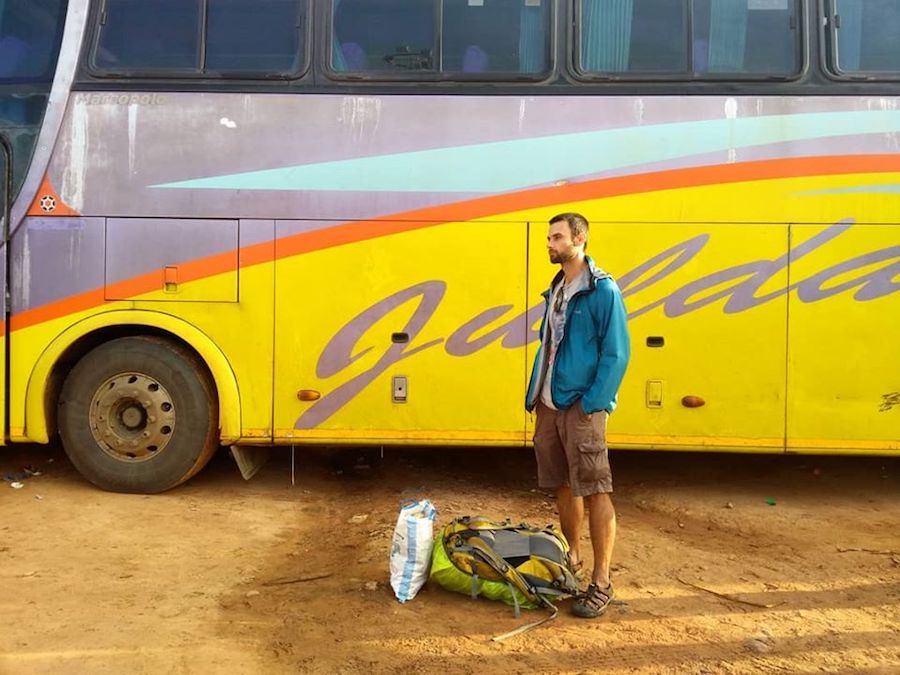
Mini-bus: They only leave when full and make frequent stops along the journey, so this option can be longer and less comfortable than the bus even though the prices are comparable.
Train: There are slow passenger trains from Livingstone to the Copperbelt as well as the TAZARA from Kapiri-mposhi all the way to Dar es Salaam, Tanzania. The trains are notorious for being late, but it is an affordable and safe option for those who have the time and genuinely enjoy train travel.
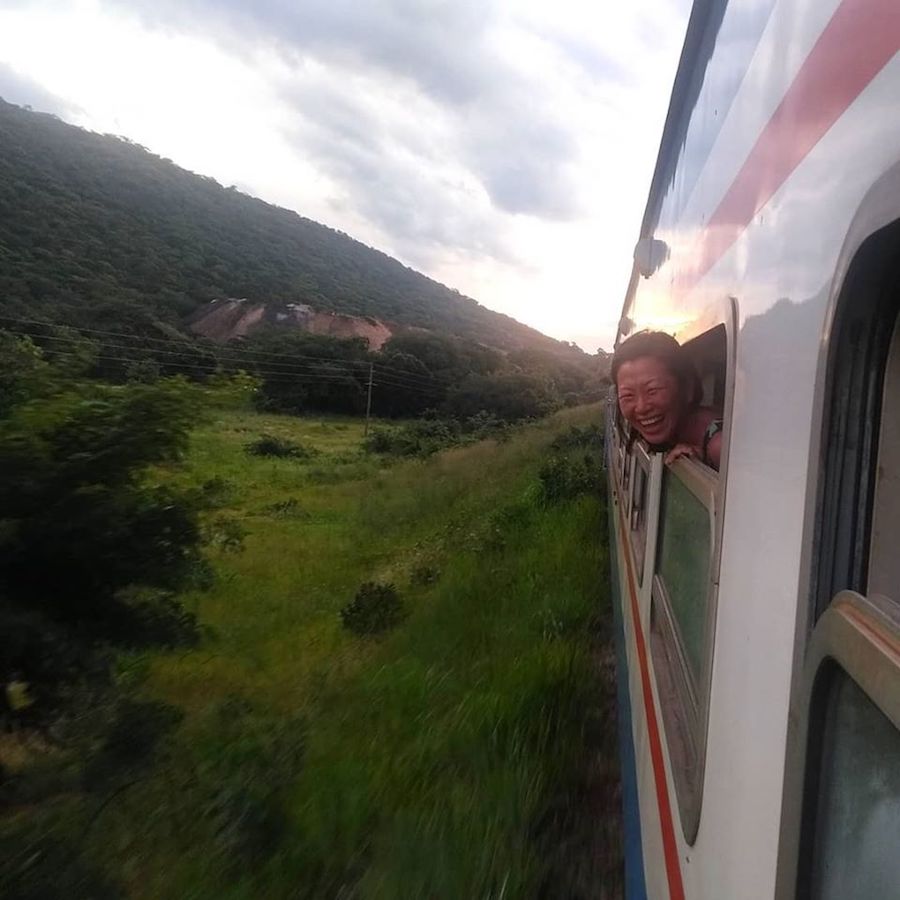
Air: Small planes fly between Lusaka and tourist spots like Livingstone and Mfuwe. It is also possible to charter flights if you’ve got the cash but not the time.
Taxi: Private taxis can be expensive, but cost-effective if split between a group. I recommend using the Ulendo app, which is similar to Uber, when moving within Lusaka.
Self-drive: For freedom and flexibility, rent a car to drive yourself. Some tarmac roads can be laden with potholes and are quite narrow, so it can be intimidating to share the road with semi-trucks. It is not advisable to drive at night. A 4WD is recommended if you plan to veer off the tarmac. Don’t always trust Google maps in terms of travel times – it often will be slower. And remember to drive on the left!
Hitchhiking: I don’t officially recommend hitchhiking, but if you are comfortable doing it and have prior experience, you’ll find it relatively easy and safe hitching in Zambia. Catching lifts is a common form of transportation among locals, especially in areas that lack sufficient public transport. It is standard to pay a fee to the driver, but it is often less than what the bus would cost and significantly more comfortable. Semi-truck drivers are the most likely to give lifts but private vehicles do as well. I’ve met some interesting people while hitchhiking around Zambia. As always, use your best judgment and exercise caution.
Zambia’s Languages
English is one of the official languages and should fare a traveler well in most towns and tourist places in Zambia. However, there are 73 local languages and cultures throughout the country. People generally appreciate it when a foreigner tries to speak the local language, but it can also be insulting to come at somebody using a language that they don’t speak.
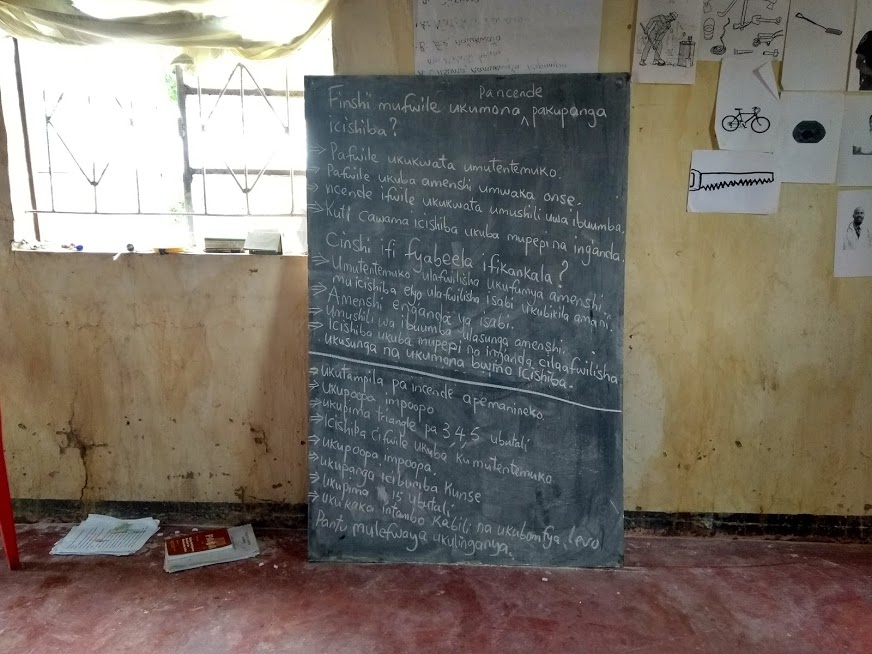
Here’s a general breakdown of the most popular languages in the regions that should be safe to use, but again, there is so much variation even within these provinces.
Lusaka: English, Nyanja. Honestly a little of everything! Southern Province: Tonga Western Province: Lozi Eastern Province: Nyanja Central, Luapula, Muchinga, Northern, and Copperbelt Provinces: Bemba Northwestern Province: Kaonde
Cultural things to know and travel etiquette in Zambia
Cultures vary greatly between tribes, but here are a few general tips that are useful for visitors to know:
– Traditionally, greetings are of utmost importance. When you pass someone in the rural area, acknowledge each other’s presence with a greeting. This isn’t practiced so much in towns, but it’s still important to say hello and how are you before getting right down to business.
– Both men and women should wear long skirts or pants as thighs are sexualized body parts.
– Zambia is a Christian nation, so transport can be trickier on Sundays and some businesses may be closed.
– Eat and shake hands with your right hand only.
– Tipping is not expected but always appreciated.
– If somebody calls you fat, it is a compliment, so try with all of your soul not to feel bad about it. I am a small Asian girl and got called fat on several occasions, though by people I know and not just strangers.
– Be mindful about taking photos of people. First, ask yourself what the purpose of the photo is, if you would take such a photo of a random person in your home country, and what will be done with that photo. Ensure you ask for consent.
Is Zambia safe for travelers?
Zambia is generally peaceful and a very safe place to be. Like anywhere, always exercise caution, especially in towns at nighttime. Try to avoid walking alone at night. Take trusted taxi drivers. Don’t flash around your valuables. You know, basic safety stuff you’d do at home!
It is pretty safe for a woman to travel solo in Zambia, but cat calling and harassment are not uncommon in busy areas. I sometimes feel uncomfortable being squished amongst men in public transport, so opt to sit in the front near the driver if possible. Befriending a woman nearby not only helps alleviate the situation if someone is bothering you, but Zambian women are generally strong and cool to get to know!
Homosexuality is illegal in Zambia unfortunately. LGBT travelers may find it difficult to have to hide their identity. Since I cannot speak to the experiences of LGBT individuals, I asked a friend what his advice would be for queer travelers in Zambia. He advised to avoid public displays of affection (this goes for hetero couples as well). If you want to be extra cautious, disable dating apps. He also mentioned that nose rings may be a signal for homosexuality, so taking it out may be a good idea, particularly if you are male-identifying.
Staying Healthy
I am not a doctor trained to give health advice, but it is a good idea to do your research and perhaps see a travel doctor before coming to the region. Some concerns travelers may encounter are malaria, tuberculosis, Bilharzia, giardia, and traveler’s diarrhea.
Some medications can be found locally and are cheaper here than your home country. Prevention is key! Opt to stay at places that have bed nets, drink clean water, and keep a small medical kit with a thermometer and malaria test kit. Oral rehydration solution packets can also be handy.
*Take 10% off any travel-size bug spray at rangerready.com with code IntentionalTravelers10 >

General Zambia Travel Tips
– Always travel with toilet paper, hand sanitizer, and small change. Sometimes it can be difficult to break 100 kwacha bills.
– Look out for citenge material or traditional fabric. You can get clothes and accessories tailored affordably. Makes for a great souvenir or gift!
– When at produce markets, it is standard to ask for a “top up” if you buy a lot of things. Just say “mbasela?” and the vendor may laugh and throw in an extra banana.
– You must pay for plastic bags at many supermarkets, so that’s another incentive to carry around a reusable bag!
– Download the iOverlander app for information about landmarks and accommodation. It’s helpful even if you are not driving in the region.
– Join the Mzungu group chats to connect with fellow travelers in the region.
– If you haven’t already, educate yourself about the white savior complex and poverty porn and keep these in mind if you are seeking to volunteer or go on “village tours” in the region.
Mwaiseni ku Zambia! Welcome to Zambia.
✈️ Protect your Zambia trip with Travel Insurance – We’ve started using Nomad Insurance by Safety Wing for affordable evacuation, international medical, and trip coverage.
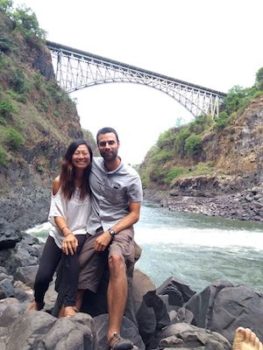
You might also like:
– 6 Places You Must Visit in Malawi – Off the Beaten Path Small Town Digital Nomad Destinations – A Quick Guide to Couchsurfing – 5 Selfish Benefits of Peace Corps
Like this post? Pin it for later or share with friends!
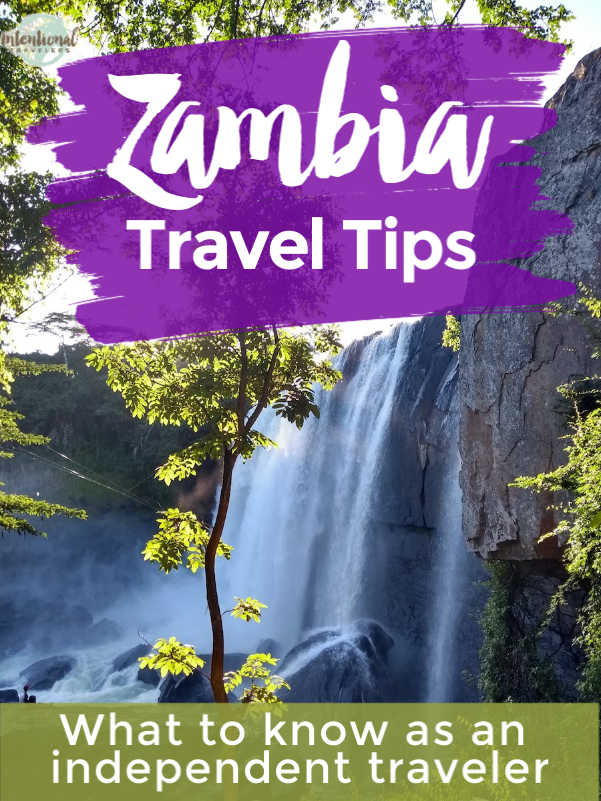
Similar Posts
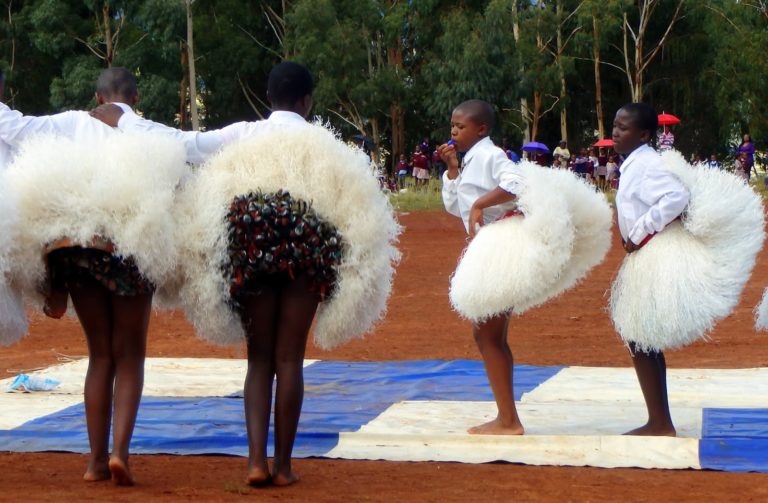
5 Lessons We Can Learn From Basotho Women
When we were Peace Corps Volunteers, our appreciation of cross-cultural exchange really grew. In an effort to promote cross-cultural understanding through our blog, we share posts from our fellow intentional travelers who have interesting stories and important lessons from abroad. Today’s guest post comes from Beth Spencer, a Peace Corps Volunteer in Lesotho, Africa. We…
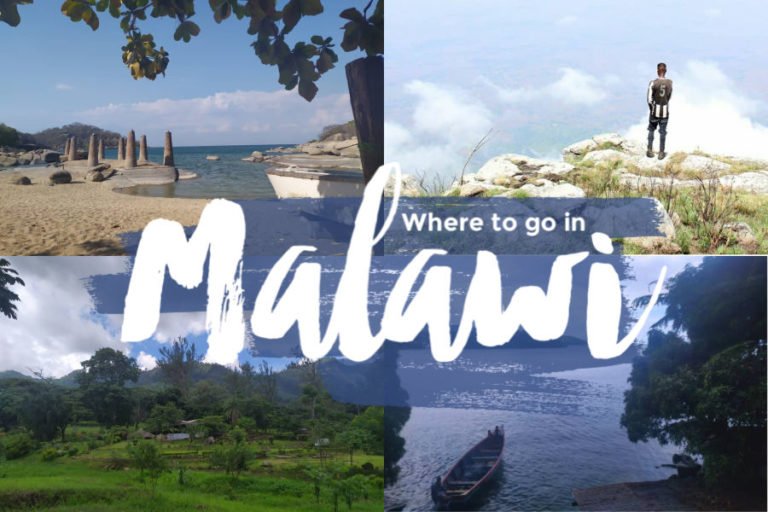
6 Places You Must Visit in Malawi
We are proud members of the U.S. Peace Corps community and love to partner with our fellow Peace Corps Volunteers, who often have some of the best insights into the culture and authentic travel experiences available in their host country. We asked Madisen Hughes, a former Volunteer and current resident in Malawi, to share her…
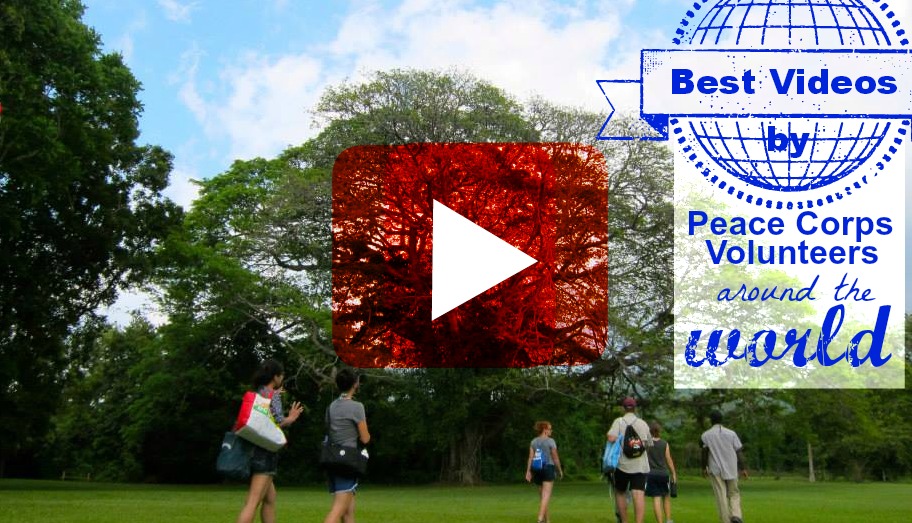
Best Videos by Peace Corps Volunteers Around the World
For decades, dedicated Peace Corps volunteers have ventured to all corners of the globe, bringing their passion, skills, and care to communities in need. Beyond their invaluable on-ground efforts, some volunteers have also captured their experiences in vivid detail, offering us a glimpse into the diverse cultures, challenges, and triumphs they encounter. As Returned Peace…
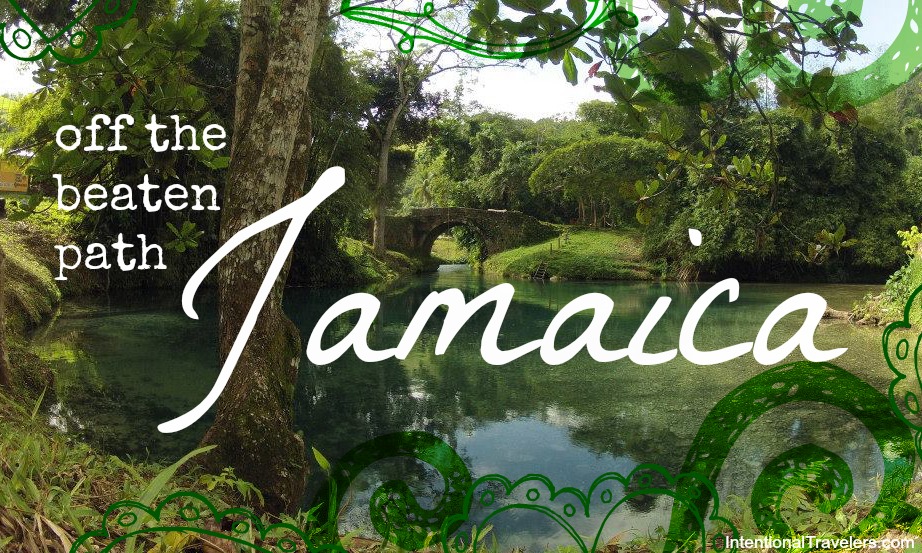
Favorite Places to Visit in Jamaica: Off the Beaten Path
Having lived and served as Peace Corps Volunteers for over two years in Jamaica, we’ve had the opportunity to explore a fair amount of the island. Our experiences ranged from weekend trips on our limited PC budget to the more indulgent vacation days shared with our visiting family and friends. With a strong Volunteer network…
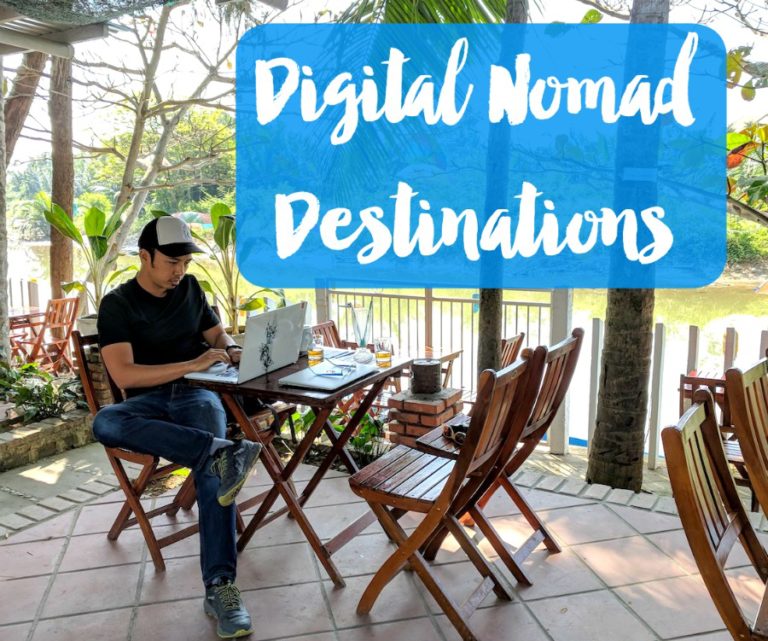
Off-the-beaten-path Small Town Digital Nomad Destinations
If you’re like us, finding the best small town destinations and off-the-beaten-path gems is a big reason why we love working remotely. Since becoming digital nomads in 2014 and trying out various places to live and work abroad, we’ve learned an important lesson: Some of the big “digital nomad hubs” are not really our style….
Zambia is the least place I would consider as a travel destination. However, your post has enlightened me on fun things to do on my visit
ZAMBIA is situated in Central Africa, your headline states east Africa.
Hi and thanks for visiting our blog and taking the time to write. Can you share more specifically where you are seeing that error in our post? I’m not finding it in the title, headings, or anywhere else in our text.
Leave a Reply Cancel reply
Your email address will not be published. Required fields are marked *
This site uses Akismet to reduce spam. Learn how your comment data is processed .
- Travel advice
Zambia travel advice
Explore our complete guide to Zambia with the latest travel advice for travellers and holidaymakers including official updates and local travel tips for Zambia.
- Essential travel guide
- Weather & climate
- Travel health
- Covid live updates
- Travel features
- Top travel deals
- Destinations
Zambia travel guide - essential info
Below is a beginner's guide to Zambia with essential travel facts such as dominant language spoken, typical flight time from the UK and the local currency. You can also check whether visas are required and what plug adapter you need to pack.
Why visit Zambia?
Considering a holiday to the Zambia? Here are some of the very good reasons it makes such a wonderful holiday destination such as for its nature to ensure you get the most out of your 2024/2025 escape.
Zambia tourist information
✝ = Typical flight time from the UK and visa requirements for UK travellers.
Recommended for Zambia
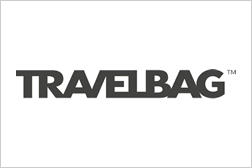
Zambia deals >>
Back to top
Zambia weather
The Zambia weather guide shows long term monthly averages for Lusaka .
Zambia destinations >>
KAYAK: Top UK travel deals of the day

- Save on UK travel with KAYAK's deals of the day
- Find deals for destinations around the world
- Filter by travel deal type, budget & month
View all KAYAK offers
Check the latest travel advice on visiting Zambia from official government sources (in english) from around the world including entry requirements and travel restrictions.
- UK traveller advice for Zambia - UK FCDO
- Irish traveller advice for Zambia - Department of Foreign Affairs, Ireland
- Canadian travel advice for Zambia - Government of Canada
- US travel advisories for Zambia - US Department of State
- Safe travel advisories for Zambia - Ministry of Foreign Affairs, New Zealand
- Smarter traveller advice for Zambia - Department of Foreign Affairs, Australia
Learn more about the current safety and security risks from terrorism, natural disasters and more. Read about the local laws and customs to consider when travelling around Zambia.
Note : UK FCDO - UK Foreign, Commonwealth & Development Office
FCDO travel advice
Destination Any destination France Germany Greece India Italy Portugal Spain Turkey USA Algeria Angola Benin Botswana Burkina Faso Burundi Cameroon Cape Verde Central African Republic Chad Congo-Brazzaville Congo-Kinshasa Djibouti Egypt Equatorial Guinea Eritrea Eswatini Ethiopia Gabon Gambia Ghana Guinea Guinea-Bissau Ivory Coast Kenya Lesotho Liberia Libya Malawi Mali Mauritania Morocco Mozambique Namibia Niger Nigeria Rwanda Sao Tome and Principe Senegal Sierra Leone Somalia South Africa South Sudan St Helena, Ascension and Tristan da Cunha Sudan Tanzania Togo Tunisia Uganda Western Sahara Zambia Zimbabwe Falkland Islands South Georgia and South Sandwich Islands Afghanistan Armenia Azerbaijan Bahrain Bangladesh Bhutan Brunei Cambodia China East Timor Gaza Strip Georgia Hong Kong India Indonesia Iran Iraq Israel Japan Jordan Kazakhstan Kuwait Kyrgyzstan Laos Lebanon Macau Malaysia Maldives Mongolia Myanmar Nepal North Korea Oman Pakistan Philippines Qatar Russia (Central Asia) Russia (Far East) Saudi Arabia Singapore South Korea Sri Lanka Syria Taiwan Tajikistan Thailand Turkmenistan UAE Uzbekistan Vietnam West Bank Yemen Anguilla Antigua Aruba Bahamas Barbados Bonaire British Virgin Islands Cayman Islands Cuba Curacao Dominica Dominican Republic Grenada Guadeloupe Haiti Jamaica Martinique Montserrat Saba Sint Eustatius Sint Maarten St Barthelemy St Kitts and Nevis St Lucia St Martin St Vincent and the Grenadines Trinidad and Tobago Turks and Caicos Islands Belize Costa Rica El Salvador Guatemala Honduras Nicaragua Panama Albania Andorra Austria Belarus Belgium Bosnia and Herzegovina Bulgaria Croatia Cyprus Czech Republic Denmark Estonia Faroe Islands Finland France Germany Gibraltar Greece Hungary Iceland Ireland Italy Jan Mayen Kosovo Latvia Liechtenstein Lithuania Luxembourg Macedonia Malta Moldova Monaco Montenegro Netherlands Norway Poland Portugal Romania Russia San Marino Serbia Slovakia Slovenia Spain Svalbard Sweden Switzerland Turkey Ukraine British Indian Ocean Territory Comoros Madagascar Mauritius Mayotte Reunion Seychelles Bermuda Canada Greenland Mexico St Pierre and Miquelon USA Australia Federated States of Micronesia Fiji French Polynesia Kiribati Marshall Islands Nauru New Caledonia New Zealand Palau Papua New Guinea Pitcairn Island Samoa Solomon Islands Tonga Tuvalu Vanuatu Wallis and Futuna Argentina Bolivia Brazil Chile Colombia Ecuador French Guiana Guyana Paraguay Peru Suriname Uruguay Venezuela
Zambia travel health
Find out more about staying safe when travelling to Zambia with the latest guidance on required vaccinations and recommended medication to take with you.
- Vaccines & medicines for Zambia - CDC
- Health & vaccinations for Zambia - TravelHealthPro, NaTHNac
- How to stay safe & healthy in Zambia - Fit for Travel, Public Health Scotland
Check out the general travel tips for staying safe and healthy in Zambia, risks of preventable diseases and what to pack.
Note : CDC - Centers for Disease Control and Prevention
Zambia covid live updates
Check the latest live updates on Covid-19 in Zambia with the vaccination requirements, current available statistics and up-to-date travel advice from government agencies.
- Coronavirus timeline in Zambia - Our World in Data
Zambia travel features
Do you want to learn more about Zambia? Read our latest features covering travel tips and insider destination guides on where to go and what to do in Zambia.
We don't currently have any travel features on Zambia. Discover more about holiday destinations around the world with this selection of general travel articles.
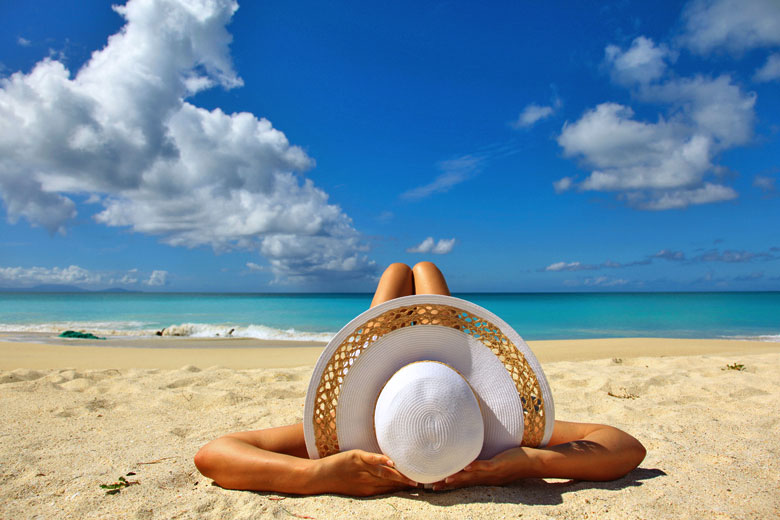
Zambia FAQs
Read our frequently asked questions about travelling to Zambia including the current entry restrictions, covid rules, driving side, electrical plugs used and much more.
Are there entry restrictions to Zambia due to Covid-19?
Zambia is open for tourism from the UK. Negative PCR test results or proof of full Covid-19 vaccination required for arrivals from the UK.
Do I need to quarantine in the UK if I travel from Zambia?
You do not need to quarantine on arrival in the UK from Zambia. The UK no longer requires a passenger locator form, Covid-19 test or proof of vaccination.
What is the flight time to Zambia from the UK?
The flight time to Zambia from the UK is typically 14 hours .
Flights to Zambia

What is the time difference between Zambia and the UK?
The time difference between Zambia and the UK is UK time+2 hours .
What is the main language spoken in Zambia?
The main languages spoken in Zambia are English , Bemba and Nyanja . Learn a language for Zambia with Rosetta Stone * , Busuu * and Rocket Languages * .
What is the currency in Zambia?
The currency in Zambia is the Zambian Kwacha ( ZMV ). Send money to Zambia with World Remit * .
Which plugs are used in Zambia?
Zambia uses electrical plug type C + D + G (230 Volts) .
Which side of the road do they drive on in Zambia?
They drive on the left side of the road in Zambia. Find out more about driving in Zambia with International Drivers Association * .
Transport options for Zambia
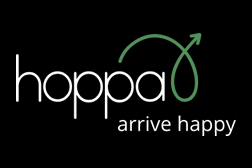
Do you need a visa for Zambia?
Yes, UK passport holders do need a visa to enter Zambia. Check Zambia visa requirements for all passport holders with VisaHQ * and iVisa.com * .
Travel advice by country
Country name All countries - summary Algarve Balearic Islands Barbados Canary Islands Croatia Cyprus Egypt Faroe Islands France Germany Greece Ireland Italy Jamaica Madeira Maldives Malta Portugal Spain Turkey UAE UK USA Algeria Angola Benin Botswana Burkina Faso Burundi Cameroon Cape Verde Central African Republic Chad Congo-Brazzaville Congo-Kinshasa Djibouti Egypt Equatorial Guinea Eritrea Ethiopia Gabon Gambia Ghana Guinea Guinea-Bissau Ivory Coast Kenya Lesotho Liberia Libya Malawi Mali Mauritania Morocco Mozambique Namibia Niger Nigeria Rwanda Sao Tome and Principe Senegal Sierra Leone Somalia South Africa South Sudan Sudan Swaziland Tanzania Togo Tunisia Uganda Western Sahara Zambia Zimbabwe Antarctica French Southern and Antarctic Lands South Georgia and South Sandwich Islands Afghanistan Armenia Azerbaijan Bahrain Bangladesh Bhutan Brunei Cambodia China East Timor Georgia Hong Kong India Indonesia Iran Iraq Israel Japan Jordan Kazakhstan Kuwait Kyrgyzstan Laos Lebanon Macau Malaysia Maldives Mongolia Myanmar Nepal North Korea Oman Pakistan Philippines Qatar Russia (Central Asia) Russia (Far East) Saudi Arabia Singapore South Korea Sri Lanka Syria Taiwan Tajikistan Thailand Turkmenistan UAE Uzbekistan Vietnam Yemen Anguilla Antigua Aruba Bahamas Barbados Bonaire British Virgin Islands Cayman Islands Cuba Curacao Dominica Dominican Republic Grenada Guadeloupe Haiti Jamaica Martinique Montserrat Puerto Rico Saba Sint Eustatius Sint Maarten St Barthelemy St Kitts and Nevis St Lucia St Martin St Vincent and the Grenadines Trinidad and Tobago Turks and Caicos Virgin Islands Belize Costa Rica El Salvador Guatemala Honduras Nicaragua Panama Albania Andorra Austria Belarus Belgium Bosnia and Herzegovina Bulgaria Croatia Cyprus Czech Republic Denmark Estonia Faroe Islands Finland France Germany Gibraltar Greece Guernsey Hungary Iceland Ireland Isle of Man Italy Jan Mayen Jersey Kosovo Latvia Liechtenstein Lithuania Luxembourg Malta Moldova Monaco Montenegro Netherlands North Macedonia Norway Poland Portugal Romania Russia San Marino Serbia Slovakia Slovenia Spain Svalbard Sweden Switzerland Turkey UK Ukraine British Indian Ocean Territory Christmas Island Cocos (Keeling) Islands Comoros Madagascar Mauritius Mayotte Reunion Seychelles Bermuda Canada Greenland Mexico St Pierre and Miquelon USA American Samoa Australia Cook Islands Federated States of Micronesia Fiji French Polynesia Guam Kiribati Marshall Islands Midway Island Nauru New Caledonia New Zealand Niue Norfolk Island Northern Mariana Islands Palau Papua New Guinea Pitcairn Island Samoa Solomon Islands Tokelau Tonga Tuvalu Vanuatu Wake Island Wallis and Futuna Algarve Azores Madeira Argentina Bolivia Brazil Chile Colombia Ecuador Falkland Islands French Guiana Guyana Paraguay Peru Suriname Uruguay Venezuela Balearic Islands Canary Islands England Northern Ireland Scotland Wales Alabama Alaska Arizona Arkansas California Colorado Connecticut D.C. Delaware Florida Georgia Hawaii Idaho Illinois Indiana Iowa Kansas Kentucky Louisiana Maine Maryland Massachusetts Michigan Minnesota Mississippi Missouri Montana Nebraska Nevada New Hampshire New Jersey New Mexico New York North Carolina North Dakota Ohio Oklahoma Oregon Pennsylvania Rhode Island South Carolina South Dakota Tennessee Texas Utah Vermont Virginia Washington West Virginia Wisconsin Wyoming
Be inspired
Get your weekly fix of holiday inspiration from some of the world's best travel writers plus save on your next trip with the latest exclusive offers
We promise not to share your details
Explore holidays in the sun for less
- Beach holidays
- Family holidays
- City breaks
- Summer holidays
- Winter sun holidays
- Holiday offers
- Top travel brands
- Airlines & flights
- Discount hotels
- Airport parking deals
- Jet2holidays
- easyJet holidays
- Love Holidays
- British Airways
More holidays
Airport parking
- Manchester Airport
- Stansted Airport
- Bristol Airport
- Luton Airport
- Birmingham Airport
- Edinburgh Airport
- Gatwick Airport
- Glasgow Airport
- Newcastle Airport
More parking
Airport lounges
- Heathrow Airport
More lounges
- Pinterest (1 share)
Security Alert May 17, 2024
Worldwide caution, update may 10, 2024, information for u.s. citizens in the middle east.
- Travel Advisories |
- Contact Us |
- MyTravelGov |
Find U.S. Embassies & Consulates
Travel.state.gov, congressional liaison, special issuance agency, u.s. passports, international travel, intercountry adoption, international parental child abduction, records and authentications, popular links, travel advisories, mytravelgov, stay connected, legal resources, legal information, info for u.s. law enforcement, replace or certify documents.
Share this page:
Zambia Travel Advisory
Travel advisory july 31, 2023, zambia - level 1: exercise normal precautions.
Reissued with obsolete COVID-19 page links removed.
Exercise normal precautions in Zambia.
Read the country information page for additional information about travel to Zambia.
If you decide to travel to Zambia:
- Enroll in the Smart Traveler Enrollment Program ( STEP ) to receive Alerts and make it easier to locate you in an emergency.
- Follow the Department of State on Facebook and Twitter .
- Follow the U.S. Embassy in Zambia on Facebook and Twitter .
- Review the Country Security Report for Zambia.
- Prepare a contingency plan for emergency situations. Review the Traveler’s Checklist .
- Visit the CDC page for the latest Travel Health Information related to your travel.
Travel Advisory Levels
Assistance for u.s. citizens, search for travel advisories, external link.
You are about to leave travel.state.gov for an external website that is not maintained by the U.S. Department of State.
Links to external websites are provided as a convenience and should not be construed as an endorsement by the U.S. Department of State of the views or products contained therein. If you wish to remain on travel.state.gov, click the "cancel" message.
You are about to visit:
- &BEYOND LODGES
- South Africa
- Flying solo
- With my partner
- With my family
- Adventurous
- Responsible Travel
- Private Travel
- Slow Travel
- TRAVEL TRADE PORTAL
- MANAGE YOUR TRAVEL BOARD
What do I need to know about Zambia
Important tips when travelling to zambia, travel advice.
Find all the must-know travel requirements and destination information on Zambia before you embark on your adventure.
Banks and foreign exchange bureaus are available at all international airports and main towns. Most hotels and lodges accept Visa and MasterCard. General banking hours in main towns are: Monday – Friday 08h30 – 15h30
Zambia is an extremely safe destination to travel in.
Photography
Please be sure to bring sufficient memory cards and batteries as these are not readily available in Southern Africa. Please be sensitive when photographing people, it is courteous to ask permission before snapping away.
The use of Unmanned Aerial Vehicles (Drones) is not allowed in any of the conservation areas we manage until such time as their impact on wildlife and anti-poaching initiatives can be assessed. This rule will apply throughout Africa, as our partners in various countries and regions have adopted a similar stance.
Passport & Visa Requirements
Please consult with your travel agent on the neccessary documentation required to visit Zambia. Passports are required by all foreign visitors and must be valid for 6 months after the intended length of stay. Please ensure that you have at least 2 consecutive blank visa pages (not endorsement pages) in your passport. Our recommendation is 3 or even 4 blank pages if you are travelling through more than one country. If there are insufficient pages entry could be denied. It is imperative to check your visa requirements with the relevant embassies/consulates as it may vary according to your nationality. Where visas can be obtained at the port of entry, these are payable in US dollars cash in most destinations; we recommend small dominations as officials are not in the position to give change. Visa payments at Livingstone, Lusaka and Ndola Airports’ can be made via VISA, MasterCard, Maestro and American Express. Should there be any network issues that affect the systems, guests will be asked to draw the cash at the nearest ATM. It is recommended to obtain visas prior to arrival as there is a likelihood of long queues at all airports.
What the Experts Say
- Thrilling whitewater rafting on the Zambezi River
- Elephant-back safaris near the Victoria Falls
- See three of Africa’s big lakes – Tanganyika, Kariba and Bangweulu
PLAN YOUR JOURNEY
Talk to a Travel Specialist and tailormake your journey
More about Zambia
Use the filters below to browse our selection of hand-picked travel ideas in this iconic destination, i dream of travel that leaves our world a better place.
You’re just 5 easy (and fun) steps away from creating your ideal Travel Dream Board.
Step 1: Start with where
Step 2: Clarify what kind of traveller you are
Step 3: Tick off those grand bucket list experiences that will fire your imagination
Step 4: Log in to create and add to your Dream Board
Step 5: Share & start dreaming
Leaving our world a better place for years
Discover the impact legacy that your travel with &beyond is driving. just as the un’s sustainable development goals have been a touchstone for our vision 2020 group-operation sustainability audits, so they continue to guide and underpin our ambitiously scaled vision 2030 goals., we're sorry but this site doesn't work properly without javascript enabled., please enable it to continue., privacy overview.
- Company History
- Mission Statement
- Philippines
- South Africa
- Afghanistan
- American Samoa
- Antigua and Barbuda
- British Virgin Islands
- Burkina Faso
- Canary Islands
- Cayman Islands
- Central African Republic
- Christmas Island
- Cocos (Keeling) Islands
- Cook Islands
- Cote d'Ivoire
- Democratic Republic of the Congo
- Dominican Republic
- Easter Island
- El Salvador
- Equatorial Guinea
- Falkland Islands
- Faroe Islands
- French Guiana
- French Polynesia
- Guinea-Bissau
- Liechtenstein
- Madeira Islands
- Marshall Islands
- Netherlands
- New Caledonia
- New Zealand
- Norfolk Island
- North Korea
- North Macedonia
- Northern Mariana Islands
- Palestinian Territories
- Papua New Guinea
- Pitcairn Islands
- Puerto Rico
- Republic of the Congo
- Saint Barthelemy
- Saint Helena
- Saint Kitts and Nevis
- Saint Lucia
- Saint Martin
- Saint Pierre-et-Miquelon
- Saint Vincent and the Grenadines
- Sao Tome and Principe
- Saudi Arabia
- Sierra Leone
- Sint Eustatius
- Solomon Islands
- South Georgia and the South Sandwich Islands
- South Korea
- South Sudan
- Switzerland
- Trinidad and Tobago
- Turkmenistan
- Turks and Caicos Islands
- U.S. Virgin Islands
- United Arab Emirates
- United Kingdom
- United States
- Wake Island
- Western Sahara
- Travel Vaccines
- Travel Health Consultations
- Travellers’ Diarrhea Kits
- Dengue Fever Prevention
- Malaria Prevention
- Chikungunya Prevention
- Zika Prevention
- Ebola Virus
- Yellow Fever
- Hepatitis A
- Japanese Encephalitis
- Hepatitis B
- Tickborne Encephalitis (TBE)
- Tetanus-Diphtheria-Pertussis
- Measles-Mumps-Rubella
- Influenza (Flu)
- Blood Tests
- Vitamin Injections
- Physician Referral Program
- London Bridge Clinic
- London – Euston Travel Clinic

Travel Vaccines and Advice for Zambia

Located in Southern Africa, Zambia is a gorgeous country that provides travellers with a glimpse at beautiful wilderness and wildlife.
Though the country is landlocked, there are three rivers flowing through Zambia. One of the most popular landmarks is Victoria Falls, which is one of the World’s Seven Natural Wonders and a UNESCO World Heritage Site. There are also safaris for travellers to visit, without the large crowds that often come with safaris in Kenya or South Africa.
In the cities, there are also bustling markets, delicious restaurants, and a lively nightlife.
Do I Need Vaccines for Zambia?
Yes, some vaccines are recommended or required for Zambia. The National Travel Health Network and Centre and WHO recommend the following vaccinations for Zambia: hepatitis A , hepatitis B , typhoid , cholera , yellow fever , rabies , polio and tetanus .
See the bullets below to learn more about some of these key immunisations:
- Hepatitis A – Food & Water – Recommended for most travellers to the region, especially if unvaccinated.
- Hepatitis B – Blood & Body Fluids – Recommended for travellers to most regions.
- Tetanus – Wounds or Breaks in Skin – Recommended for travellers to most regions, especially if not previously vaccinated.
- Typhoid – Food & Water – Recommended for travellers to most regions.
- Cholera – Food & Water – Recommended for travel to most regions.
- Yellow Fever – Mosquito – Required if travelling from a region with yellow fever. Recommended for all travellers over 9 months of age, except travelling to the North West and Western Provinces.
- Rabies – Saliva of Infected Animals – High risk country. Vaccine recommended for long-stay travellers and those who may come in contact with animals.
- Polio – Food & Water – Considered a routine vaccination for most travel itineraries. Single adult booster recommended.
See the tables below for more information:
Malaria is a serious threat in Zambia. Antimalarial medication is recommended for all travellers to the region. Dengue and chikungunya are also present and can be prevented through proper use of mosquito repellents and nettings.
Rabies poses some risk to travellers of various types. Consult with a travel health specialist to learn if this vaccine is right for your trip.
Visit our vaccinations page to learn more. Travel safely with Passport Health and schedule your appointment today by calling or book online now .
Do I Need a Visa or Passport for Zambia?
A visa is needed to enter Zambia. Be sure to check your visa documents, as 90 days is standard but many travellers will be authorized for less. Passports must have at least six months validity. Proof of yellow fever vaccination may be required if you are travelling from a region where yellow fever is present.
Sources: Embassy of Zambia and GOV.UK
What is the Climate Like in Zambia?
Zambia is a tropical country, meaning it is warm and receives a fair amount of rain. The dry season runs from May to October, meaning there is little rain and low humidity. From November to April is the wet season. During this time, you’ll experience mostly afternoon rains and high humidity.
Areas situated in lower-lying valleys, as opposed to the elevated areas in central and southern Zambia, are much hotter.
How Safe is Zambia?
Travel to areas bordering the Democratic Republic of Congo and Angola should be limited due to border conflicts and undetected land mines.
Major cities are safe during the day. But, there have been violent attacks reported. Theft or pick-pocketing is common. Travellers should be cautious whilst in-country and should stay in groups when possible.
Visiting Victoria Falls
Victoria Falls is one of the most popular destinations in Zambia. Over one hundred million cubic meters of water fall over the edge of each minute during the rainy season.
The adventurous can bungee jump off the Victoria Falls bridge, zip line across the Batoka Gorge, white water raft below the fall, experience tandem kayaking or take a beautiful helicopter flight to see the river and the land around it.
What Should I Pack for Zambia?
While an amazing country, a trip to Zambia does need some extra packing:
- Sun Cream – Zambia is very warm and travellers will likely be outside exploring the water or safaris.
- Swimsuit – Most visitors will want to visit at least one of three rivers in the country, making a kit fit for water a must.
- Money for Taxes – When leaving the country, travellers will need to pay departure taxes and security charges.
Embassy of the United Kingdom in Zambia
If you are in Zambia and have an emergency (for example, been attacked, arrested or someone has died) contact the nearest consular services. Contact the embassy before arrival if you have additional questions on entry requirements, safety concerns or are in need of assistance.
British High Commission Lusaka 5210 Independence Avenue, P.O. Box 50050 15101 Ridgeway Lusaka 10101 Zambia Telephone: +260 211 423 200 Emergency Phone: +260 211 423 200 Fax: +260 211 423 278 Email: [email protected]
Ready to start your next journey? Ring us up at or book online now !
On This Page: Do I Need Vaccines for Zambia? Do I Need a Visa or Passport for Zambia? What is the Climate Like in Zambia? How Safe is Zambia? Visiting Victoria Falls What Should I Pack To Zambia? Embassy of the United Kingdom in Zambia

- Privacy Policy
- Automatic Data Collection Statement

Change location
- Call us today until 8pm
- 01993 838 925 01993 838 505 or
- REQUEST A QUOTE
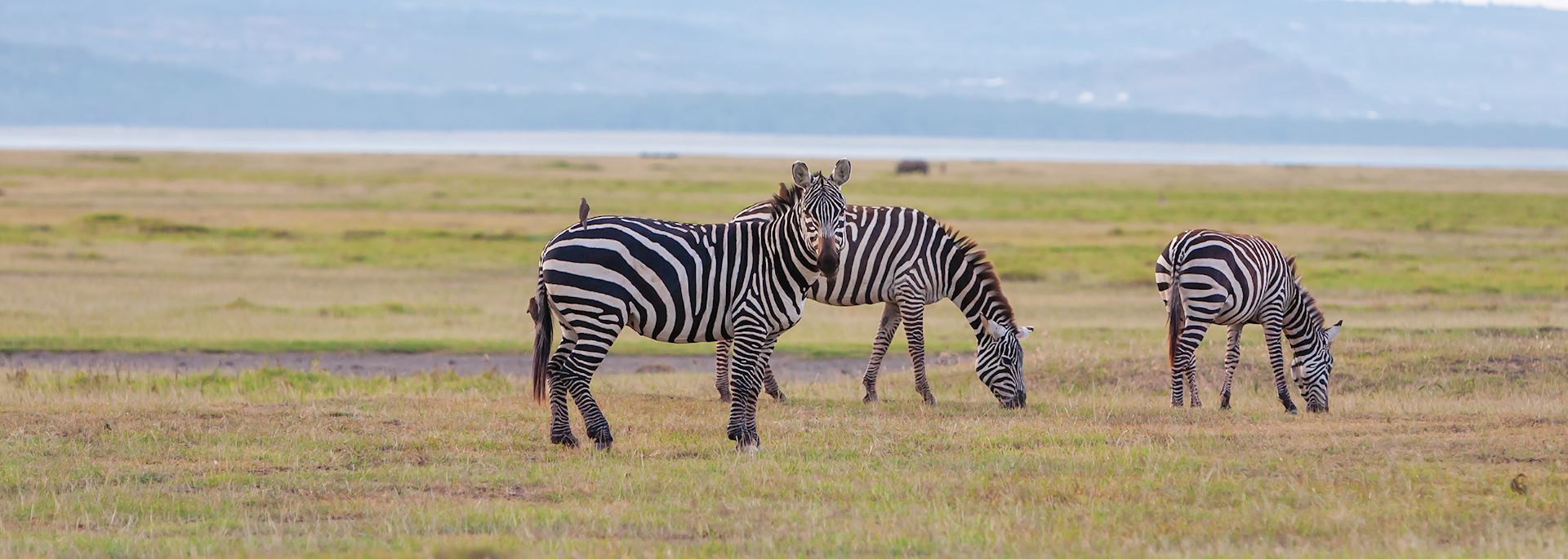
Individual Zambia holidays shaped around your passions
The wild heart of Africa, Zambia is a green oasis of national parks fed by rivers and wetlands that attract a huge variety of animals. Elephant, lion, wild dog and hyena are commonly spotted, and leopard cool off from the sun on the shady branches of trees. Before or after your safari in Zambia you can visit Victoria Falls , half of which lies within the country’s boundaries. Our specialists will use their own safari experiences in Zambia to plan your holiday, whether you want to focus on searching for the Big Five or look for more unusual wildlife.
Added to its game drives, Zambia is known as the home of the walking safari , and its guides are among the highest qualified in Africa. They’ll show you how to track animals, identify birds from their calls and discover the hidden world of insects as you walk through the bush.
- Make an enquiry
- Request a brochure
Suggested tours for Zambia
These tours give you a starting point for what your holiday to Zambia could entail. Treat them as inspiration, as each trip is created uniquely for you.

Zambia's wildlife & Victoria Falls
11 days from £7,860pp
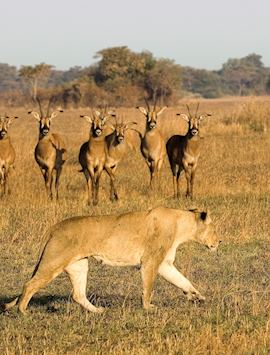
Secrets of Kafue National Park
14 days from £7,995pp
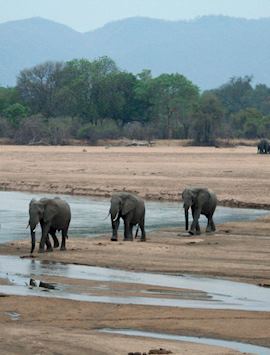
Victoria Falls, Luangwa & Lower Zambezi safari
11 days from £8,250pp
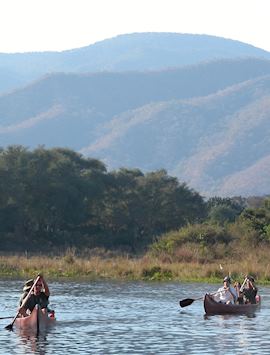
Luxurious Luangwa & Lower Zambezi tour
11 days from £12,100pp
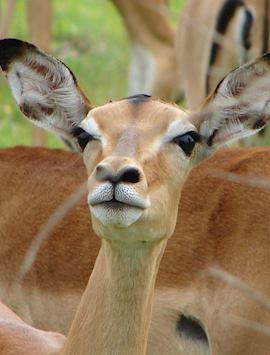
Ultimate Zambia safari
15 days from £10,100pp
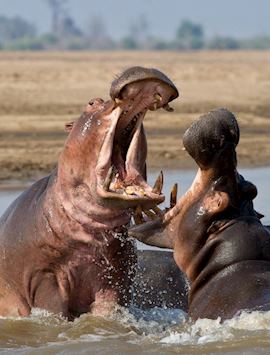
South Luangwa safari
10 days from £6,050pp
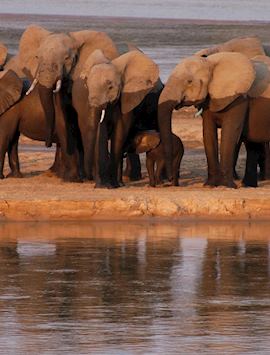
Wild Zambia on foot
13 days from £6,665pp
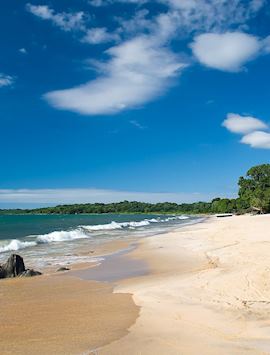
Luxury Luangwa & Lake Malawi tour
13 days from £8,405pp
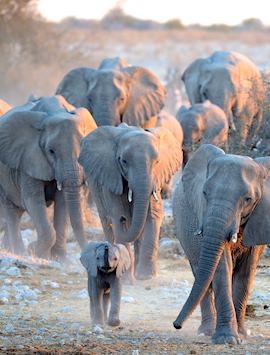
Northern Namibia self-drive safari to Victoria Falls
17 days from £6,265pp
Suggested activities for Zambia
Whatever your interests, our specialists will build activities into your trip that connect to how you want to experience Zambia.
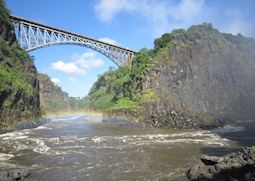
Livingstone Island Excursion
You are taken by boat to the island on the edge of Victoria Falls and taken on a brief history tour before swimming across a channel, crossing a rocky outcrop and jumping into a rock pool.
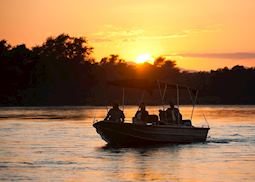
Sunset Cruise on the Zambezi
The cruises are shaded and gently make their way upstream toward the National Park, usually accompanied by a brief talk about the river and its wildlife by your skipper.
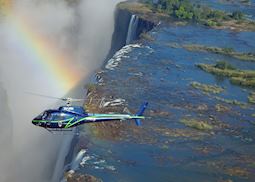
Victoria Falls Helicopter Flight
Flying lower than a conventional aircraft, you will fly a complete circuit over the Falls in both directions, giving you spectacular views of the Falls.
More choice for your safari
- Inspiration across all our African destinations
- Trip suggestions based on your interests
- Advice on where to safari, when
- Meet our team of safari experts
Best time to visit
Our specialists advise on the best months to visit Zambia, including information about climate, events and festivals.
Request our brochure
Covering all seven continents, The World Your Way shows you how you can see the world with us. It features trip ideas from our specialists alongside hand-picked stays and experiences, and introduces our approach to creating meaningful travel experiences.
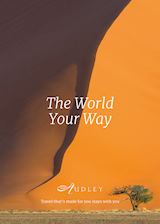
Useful information for planning your holiday in Zambia
The official language of Zambia is English, although more than 72 different languages and dialects are spoken in the country.
The currency of Zambia is the Zambian kwacha (Zw). US dollars are also widely accepted. You’ll find ATMs at the international airports and in larger cities. Major credit cards, such as Visa and MasterCard are accepted at larger hotels, shops and restaurants, but American Express is not. A surcharge of approximately 5% is common when paying by card.
When in Zambia you should try ifisashi (a mix of ground peanuts, tomatoes, onions, and green vegetables), chikanda (a vegetarian loaf), or michopo (roasted meat). You’ll find nshima (a maize, millet, or cassava porridge rolled into balls and eaten with stew) almost everywhere, and near the lakes, kapenta (a small sardine-like fish) and buka buka (Nile perch) dishes are popular.
If you’re feeling braver, ifinkubala (fried caterpillars) are considered a local delicacy. In mid afternoon, vitumbuwa (sweet fritters) are the traditional snack, while Mosi, the local beer, and munkoyo, a non-alcoholic drink made from fermented maize meal, are the most popular drinks.
Tipping 10% in a more upmarket restaurant in Zambia is standard, though it’s not expected at local food stalls. On safari, you should tip your guide at the end of your stay, and there’s usually a communal tipping box to give a tip to camp or lodge staff.
For the latest travel advice for Zambia, including entry requirements, health information, and the safety and security situation, please refer to the Foreign, Commonwealth & Development Office website .
In Zambia you can get close to nature on walking safaris in quiet parks, take tranquil boats trips on the Zambezi, and experience the sheer power and force of nature at Victoria Falls. A highlight of a trip is visiting quieter parks where wildlife sightings are often yours to enjoy alone.
Walking safaris were pioneered here and these are led by expert guides, giving you a whole new perspective on life in the bush. You can also take traditional 4x4 safaris, night drives, and boat trips to see hippo and crocodiles lurking in the waters, while lion, cheetah, buffalo, and elephant roam the plains.
Zambia is also home to one half of Victoria Falls. You can take a helicopter ride over the thundering falls, jump into a rock pool , or take a sunset cruise on the Zambezi to spot wildlife as you sip a cocktail on board.
In Zambia you can stay in intimate bush camps, luxurious safari lodges, and riverside hotels where you’ll wake to the sound of hippo grunting in the water and the rumbling calls of elephant. Most lodges and camps overlook waterholes or rivers where wildlife can wander past your room at any time of day.
While on safari, you could choose to stay in tented rooms in the heart of the bush, opt for a private, lodge-style retreat, or enjoy an unusual stay in characterful treehouse chalets. You’ll also find a great choice of places to stay at Victoria Falls including an indulgent river lodge overlooking the Zambezi and grand landmark hotels. Or, head to a private estate in the Great Rift Valley to stay in a historic manor house. To get some ideas, browse our collection of places to stay in Zambia .
In Zambia most visitors go to North and South Luangwa national parks, Kafue National Park, and Lower Zambezi National Park. These are the main wildlife areas and offer the best chance of spotting a wide variety of animals.
Each park has its own character and visiting more than one region gives an excellent overview of what Zambia has to offer. Herds of elephant and buffalo as well as basking crocodiles and hippo can be seen in South Luangwa National Park , impala, waterbuck, and zebra are preyed on by lion, leopard, and wild dog in Lower Zambezi National Park , while off-the-beaten-track Kafue National Park promises exploration and discovery in a region that’s little visited by others.
After time spent on safari, you could finish your trip with a visit to Victoria Falls to relax in a riverside hotel while you explore the Zambezi River by boat and visit this natural wonder.
You’re likely to see lion, elephant, zebra, hippo, and warthogs, and have a possibility of encountering leopard, wild dog, and spotted hyena, on safari in Zambia. The diversity of wildlife in Zambia’s national parks is highly impressive and large predators roam the plains in search of grazing cape buffalo, bushbuck, lechwe and kudu, while hippo wallow in rivers, and baboons and vervet monkeys chatter in the trees.
Herds of elephant congregate at waterholes and ramble through the bush, and if you’re lucky, you’ll get to see spotted hyena and packs of wild dog. In South Luangwa National Park, the large lion prides are a highlight, and elusive leopard are regularly spotted. Zambia’s wilderness areas are also home to more than 700 bird species, many of which are rare or endemic.
It takes around 13 hours to fly from the UK to Zambia.
The time zone in Zambia is UTC+2 hours. Daylight Savings Time is not observed in Zambia.
Flying between parks is the best way of getting around Zambia as the distances are large and the roads poor.
Your doctor can provide you with vaccine advice for Zambia, but you should also ensure you’re up to date with the recommended vaccinations for your home country. You can also check the suggested vaccinations on the Travel Health Pro website .
If you’ve been to (even if just in transit) a country with yellow fever in the 30 days prior to your arrival in Zambia, you’ll need a yellow fever vaccination certificate or exemption certificate. Speak to your doctor before booking your trip as yellow fever vaccination is not always advised if you’re over 60.
Malaria is a risk throughout Zambia. Please see your doctor for advice about which antimalarial medication you should take.
Your best defence against malaria is to avoid mosquito bites. Wear loose, long-sleeved clothing, long legs, or skirts, and put an insect repellent with 50% DEET on exposed skin. If your room is not screened use the mosquito net provided, and if you begin to feel unwell and develop a high fever or other symptoms either during or after you return home, seek prompt medical advice, and make sure to mention your travel history.
Check that your passport is valid for at least six months from the date of your arrival in Zambia and has two consecutive blank pages.
Zambia in pictures
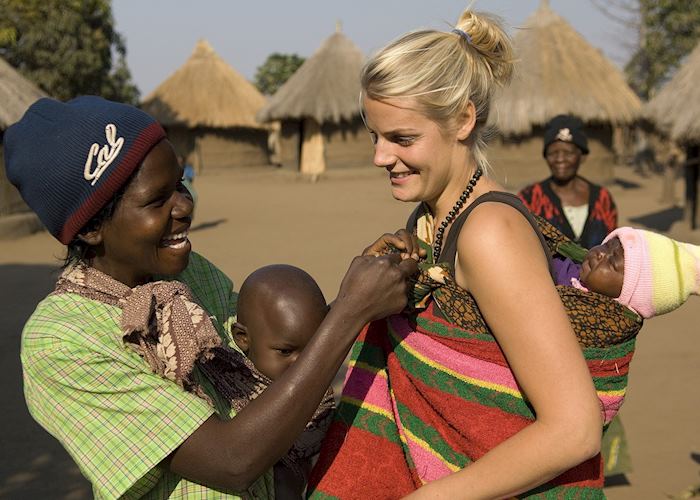
Our expert guides to travelling in Zambia
Written by our specialists from the viewpoint of their own travels, these guides will help you decide on the shape of your own trip to Zambia. Aiming to inspire and inform, we share our recommendations for how to appreciate Zambia at its best.
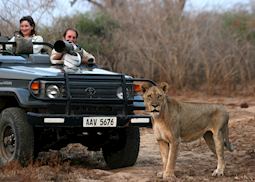
A typical day on an African safari
A typical day on safari essentially revolves around the need to see the wildlife at its most active. It usually follows a similar routine with slight variations between destinations and seasons.
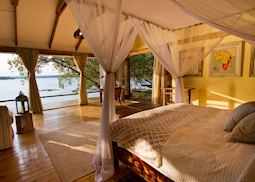
Luxury safaris in Zambia
Zambia's spectacular national parks, abundant wildlife and luxury lodges offer both first time and return visitors an unrivalled safari experience. Audley's Southern Africa safari specialist Russell explains how to make the most of your time.
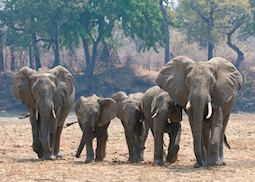
Family safaris in Zambia
If you are considering taking your family on safari, Zambia has a lot to offer every member of your tribe. Many camps have private houses with space for little legs to tire themselves out, flexible dining options and child-minding facilities.
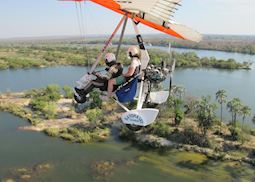
Green Season in Zambia
The Green Season in Zambia takes place in the Luangwa Valley between November and May. A more cost-effective time to travel, it's during this period you'll see newborn animals in abundance and a landscape awash with colour thanks to the heavy rains that descend.
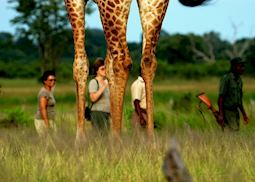
Walking safaris in Zambia
A walking safari in Zambia allows you the opportunity to tread the same dusty plains as the animals Africa is so well-known for. Here, you can observe game from a different perspective under the watchful eye of first-class guides, in a variety of different national parks.
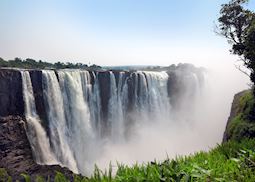
Visiting Victoria Falls
A visit to Victoria Falls can be incorporated into a tailor-made trip to Zambia. A true spectacle that enchanted David Livingstone, this natural wonder is one such highlight that our country specialists will not want you to miss when exploring this breathtaking country.
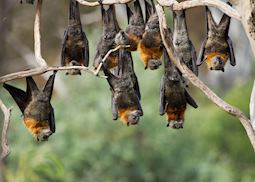
See the bat migration in Zambia
The bat migration takes place in Zambia between October and December in Kasanka National Park, and is the world's largest mammal migration. If you would like to see the bat migration you can include it in a bigger safari itinerary thanks to the park's proximity to the Luangwa Valley.
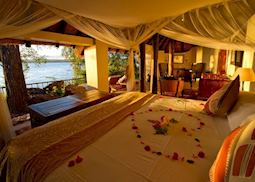
Honeymoons in Zambia
Zambia is home to a wonderful selection of lodges that offer fantastic game viewing and relaxation in equal measure. If you would like to plan your honeymoon in Zambia, our specialists can tailor a trip to your preferences and help you build the honeymoon of a lifetime.
Discover more about Zambia on our blog
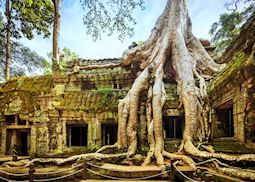
Our pick: the best multi-country trips
Other popular destinations.
Still looking for ideas? If Zambia has captured your interest, we think you might also like these destinations.
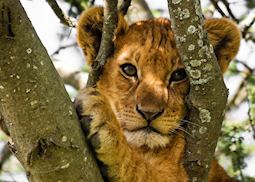
You are using an outdated browser. Upgrade your browser today or install Google Chrome Frame to better experience this site.
Zambia Traveler View
Travel health notices, vaccines and medicines, non-vaccine-preventable diseases, stay healthy and safe.
- Packing List
After Your Trip
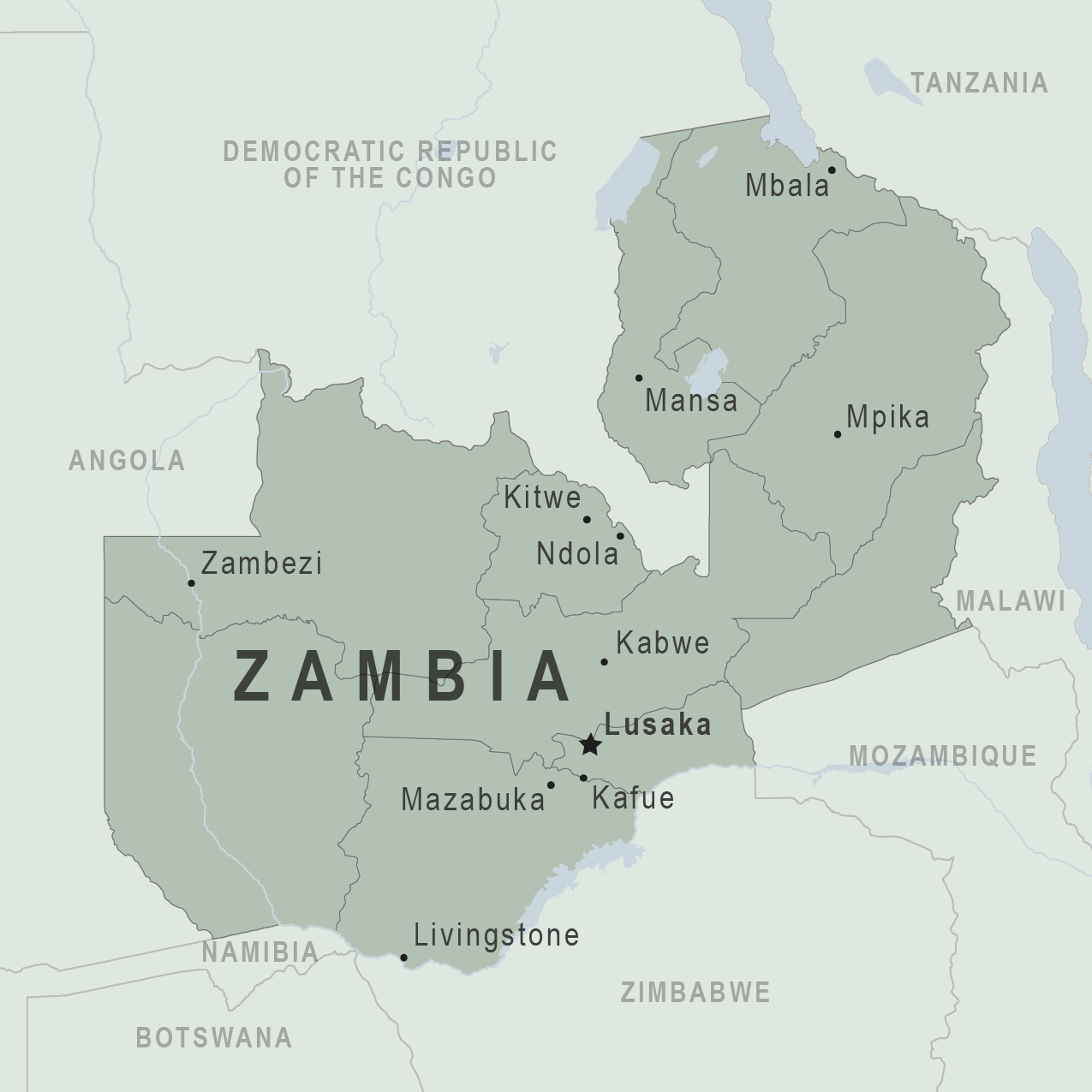
Be aware of current health issues in Zambia. Learn how to protect yourself.
Level 2 Practice Enhanced Precautions
- Global Polio May 23, 2024 Some international destinations have circulating poliovirus. Before any international travel, make sure you are up to date on your polio vaccines. Destination List: Afghanistan, Algeria, Angola, Benin, Botswana, Burkina Faso, Burundi, Cameroon, Central African Republic, Chad, Côte d'Ivoire (Ivory Coast), Democratic Republic of the Congo, Egypt, Guinea, Indonesia, Kenya, Liberia, Madagascar, Malawi, Mali, Mauritania, Mozambique, Niger, Nigeria, Pakistan, Republic of the Congo, Senegal, Sierra Leone, Somalia, Sudan, Tanzania, including Zanzibar, Yemen, Zambia, Zimbabwe
Level 1 Practice Usual Precautions
- Updated Global Measles May 28, 2024 Many international destinations are reporting increased numbers of cases of measles. Destination List: Afghanistan, Angola, Armenia, Austria, Azerbaijan, Belarus, Benin, Burkina Faso, Burundi, Cameroon, Central African Republic, Chad, Côte d'Ivoire (Ivory Coast), Democratic Republic of the Congo, Djibouti, Equatorial Guinea, Ethiopia, Gabon, Ghana, India, Indonesia, Kazakhstan, Kyrgyzstan, Lebanon, Liberia, Libya, Malaysia, Mauritania, Nepal, Niger, Nigeria, Pakistan, Philippines, Qatar, Republic of South Sudan, Republic of the Congo, Romania, Russia, Senegal, Somalia, Sri Lanka, Sudan, Syria, Tajikistan, Togo, Turkey, United Arab Emirates, Uzbekistan, Yemen, Zambia
⇧ Top
Check the vaccines and medicines list and visit your doctor at least a month before your trip to get vaccines or medicines you may need. If you or your doctor need help finding a location that provides certain vaccines or medicines, visit the Find a Clinic page.
Routine vaccines
Recommendations.
Make sure you are up-to-date on all routine vaccines before every trip. Some of these vaccines include
- Chickenpox (Varicella)
- Diphtheria-Tetanus-Pertussis
- Flu (influenza)
- Measles-Mumps-Rubella (MMR)
Immunization schedules
All eligible travelers should be up to date with their COVID-19 vaccines. Please see Your COVID-19 Vaccination for more information.
COVID-19 vaccine
Active cholera transmission is widespread in Zambia. Cholera is rare in travelers. Certain factors may increase the risk of getting cholera or having severe disease ( more information ). Avoiding unsafe food and water and washing your hands can also help prevent cholera.
Vaccination may be considered for children and adults who are traveling to areas of active cholera transmission.
Cholera - CDC Yellow Book
Hepatitis A
Recommended for unvaccinated travelers one year old or older going to Zambia.
Infants 6 to 11 months old should also be vaccinated against Hepatitis A. The dose does not count toward the routine 2-dose series.
Travelers allergic to a vaccine component or who are younger than 6 months should receive a single dose of immune globulin, which provides effective protection for up to 2 months depending on dosage given.
Unvaccinated travelers who are over 40 years old, immunocompromised, or have chronic medical conditions planning to depart to a risk area in less than 2 weeks should get the initial dose of vaccine and at the same appointment receive immune globulin.
Hepatitis A - CDC Yellow Book
Dosing info - Hep A
Hepatitis B
Recommended for unvaccinated travelers younger than 60 years old traveling to Zambia. Unvaccinated travelers 60 years and older may get vaccinated before traveling to Zambia.
Hepatitis B - CDC Yellow Book
Dosing info - Hep B
CDC recommends that travelers going to Zambia take prescription medicine to prevent malaria. Depending on the medicine you take, you will need to start taking this medicine multiple days before your trip, as well as during and after your trip. Talk to your doctor about which malaria medication you should take.
Find country-specific information about malaria.
Malaria - CDC Yellow Book
Considerations when choosing a drug for malaria prophylaxis (CDC Yellow Book)
Malaria information for Zambia.
Cases of measles are on the rise worldwide. Travelers are at risk of measles if they have not been fully vaccinated at least two weeks prior to departure, or have not had measles in the past, and travel internationally to areas where measles is spreading.
All international travelers should be fully vaccinated against measles with the measles-mumps-rubella (MMR) vaccine, including an early dose for infants 6–11 months, according to CDC’s measles vaccination recommendations for international travel .
Measles (Rubeola) - CDC Yellow Book
In Zambia poliovirus has been identified in the past year.
Travelers to Zambia are at increased risk of exposure to poliovirus.
Vaccine recommendations : Adults traveling to Zambia who received a complete polio vaccination series as children may receive a single lifetime booster dose of inactivated polio vaccine; travelers who are unvaccinated or not fully vaccinated should receive a complete polio vaccination series before travel. Children who are not fully vaccinated will be considered for an accelerated vaccination schedule .
Polio - CDC Yellow Book
Polio: For Travelers
Rabid dogs are commonly found in Zambia. If you are bitten or scratched by a dog or other mammal while in Zambia, there may be limited or no rabies treatment available.
Consider rabies vaccination before your trip if your activities mean you will be around dogs or wildlife.
Travelers more likely to encounter rabid animals include
- Campers, adventure travelers, or cave explorers (spelunkers)
- Veterinarians, animal handlers, field biologists, or laboratory workers handling animal specimens
- Visitors to rural areas
Since children are more likely to be bitten or scratched by a dog or other animals, consider rabies vaccination for children traveling to Zambia.
Rabies - CDC Yellow Book
Recommended for most travelers, especially those staying with friends or relatives or visiting smaller cities or rural areas.
Typhoid - CDC Yellow Book
Dosing info - Typhoid
Yellow Fever
Required for travelers ≥1 year of age arriving from countries with risk for YF virus transmission; this includes >12-hour airport transits or layovers in countries with risk for YF virus transmission. 1
Generally not recommended for travel to North-Western Province or Western Province. Not recommended for travel to any areas not listed above.
Yellow Fever - CDC Yellow Book
- Avoid contaminated water
Leptospirosis
How most people get sick (most common modes of transmission)
- Touching urine or other body fluids from an animal infected with leptospirosis
- Swimming or wading in urine-contaminated fresh water, or contact with urine-contaminated mud
- Drinking water or eating food contaminated with animal urine
- Avoid contaminated water and soil
Clinical Guidance
Schistosomiasis
- Wading, swimming, bathing, or washing in contaminated freshwater streams, rivers, ponds, lakes, or untreated pools.
Avoid bug bites
African sleeping sickness (african trypanosomiasis).
- Tsetse fly bite
- Avoid Bug Bites
African Trypanosomiasis
African Tick-Bite Fever
African Tick-bite fever
Chikungunya
- Mosquito bite
- Mosquito bite
- Avoid animals
Rift Valley Fever
- Touching blood, body fluids, or tissue of infected livestock
Rift Valley fever

Airborne & droplet
- Breathing in air or accidentally eating food contaminated with the urine, droppings, or saliva of infected rodents
- Bite from an infected rodent
- Less commonly, being around someone sick with hantavirus (only occurs with Andes virus)
- Avoid rodents and areas where they live
- Avoid sick people
Tuberculosis (TB)
- Breathe in TB bacteria that is in the air from an infected and contagious person coughing, speaking, or singing.
Learn actions you can take to stay healthy and safe on your trip. Vaccines cannot protect you from many diseases in Zambia, so your behaviors are important.
Eat and drink safely
Food and water standards around the world vary based on the destination. Standards may also differ within a country and risk may change depending on activity type (e.g., hiking versus business trip). You can learn more about safe food and drink choices when traveling by accessing the resources below.
- Choose Safe Food and Drinks When Traveling
- Water Treatment Options When Hiking, Camping or Traveling
- Global Water, Sanitation and Hygiene | Healthy Water
- Avoid Contaminated Water During Travel
You can also visit the Department of State Country Information Pages for additional information about food and water safety.
Prevent bug bites
Bugs (like mosquitoes, ticks, and fleas) can spread a number of diseases in Zambia. Many of these diseases cannot be prevented with a vaccine or medicine. You can reduce your risk by taking steps to prevent bug bites.
What can I do to prevent bug bites?
- Cover exposed skin by wearing long-sleeved shirts, long pants, and hats.
- Use an appropriate insect repellent (see below).
- Use permethrin-treated clothing and gear (such as boots, pants, socks, and tents). Do not use permethrin directly on skin.
- Stay and sleep in air-conditioned or screened rooms.
- Use a bed net if the area where you are sleeping is exposed to the outdoors.
What type of insect repellent should I use?
- FOR PROTECTION AGAINST TICKS AND MOSQUITOES: Use a repellent that contains 20% or more DEET for protection that lasts up to several hours.
- Picaridin (also known as KBR 3023, Bayrepel, and icaridin)
- Oil of lemon eucalyptus (OLE) or para-menthane-diol (PMD)
- 2-undecanone
- Always use insect repellent as directed.
What should I do if I am bitten by bugs?
- Avoid scratching bug bites, and apply hydrocortisone cream or calamine lotion to reduce the itching.
- Check your entire body for ticks after outdoor activity. Be sure to remove ticks properly.
What can I do to avoid bed bugs?
Although bed bugs do not carry disease, they are an annoyance. See our information page about avoiding bug bites for some easy tips to avoid them. For more information on bed bugs, see Bed Bugs .
For more detailed information on avoiding bug bites, see Avoid Bug Bites .
Stay safe outdoors
If your travel plans in Zambia include outdoor activities, take these steps to stay safe and healthy during your trip.
- Stay alert to changing weather conditions and adjust your plans if conditions become unsafe.
- Prepare for activities by wearing the right clothes and packing protective items, such as bug spray, sunscreen, and a basic first aid kit.
- Consider learning basic first aid and CPR before travel. Bring a travel health kit with items appropriate for your activities.
- If you are outside for many hours in heat, eat salty snacks and drink water to stay hydrated and replace salt lost through sweating.
- Protect yourself from UV radiation : use sunscreen with an SPF of at least 15, wear protective clothing, and seek shade during the hottest time of day (10 a.m.–4 p.m.).
- Be especially careful during summer months and at high elevation. Because sunlight reflects off snow, sand, and water, sun exposure may be increased during activities like skiing, swimming, and sailing.
- Very cold temperatures can be dangerous. Dress in layers and cover heads, hands, and feet properly if you are visiting a cold location.
Stay safe around water
- Swim only in designated swimming areas. Obey lifeguards and warning flags on beaches.
- Practice safe boating—follow all boating safety laws, do not drink alcohol if driving a boat, and always wear a life jacket.
- Do not dive into shallow water.
- Do not swim in freshwater in developing areas or where sanitation is poor.
- Avoid swallowing water when swimming. Untreated water can carry germs that make you sick.
- To prevent infections, wear shoes on beaches where there may be animal waste.
Schistosomiasis, a parasitic infection that can be spread in fresh water, is found in Zambia. Avoid swimming in fresh, unchlorinated water, such as lakes, ponds, or rivers.
Keep away from animals
Most animals avoid people, but they may attack if they feel threatened, are protecting their young or territory, or if they are injured or ill. Animal bites and scratches can lead to serious diseases such as rabies.
Follow these tips to protect yourself:
- Do not touch or feed any animals you do not know.
- Do not allow animals to lick open wounds, and do not get animal saliva in your eyes or mouth.
- Avoid rodents and their urine and feces.
- Traveling pets should be supervised closely and not allowed to come in contact with local animals.
- If you wake in a room with a bat, seek medical care immediately. Bat bites may be hard to see.
All animals can pose a threat, but be extra careful around dogs, bats, monkeys, sea animals such as jellyfish, and snakes. If you are bitten or scratched by an animal, immediately:
- Wash the wound with soap and clean water.
- Go to a doctor right away.
- Tell your doctor about your injury when you get back to the United States.
Consider buying medical evacuation insurance. Rabies is a deadly disease that must be treated quickly, and treatment may not be available in some countries.
Reduce your exposure to germs
Follow these tips to avoid getting sick or spreading illness to others while traveling:
- Wash your hands often, especially before eating.
- If soap and water aren’t available, clean hands with hand sanitizer (containing at least 60% alcohol).
- Don’t touch your eyes, nose, or mouth. If you need to touch your face, make sure your hands are clean.
- Cover your mouth and nose with a tissue or your sleeve (not your hands) when coughing or sneezing.
- Try to avoid contact with people who are sick.
- If you are sick, stay home or in your hotel room, unless you need medical care.
Avoid sharing body fluids
Diseases can be spread through body fluids, such as saliva, blood, vomit, and semen.
Protect yourself:
- Use latex condoms correctly.
- Do not inject drugs.
- Limit alcohol consumption. People take more risks when intoxicated.
- Do not share needles or any devices that can break the skin. That includes needles for tattoos, piercings, and acupuncture.
- If you receive medical or dental care, make sure the equipment is disinfected or sanitized.
Know how to get medical care while traveling
Plan for how you will get health care during your trip, should the need arise:
- Carry a list of local doctors and hospitals at your destination.
- Review your health insurance plan to determine what medical services it would cover during your trip. Consider purchasing travel health and medical evacuation insurance.
- Carry a card that identifies, in the local language, your blood type, chronic conditions or serious allergies, and the generic names of any medications you take.
- Some prescription drugs may be illegal in other countries. Call Zambia’s embassy to verify that all of your prescription(s) are legal to bring with you.
- Bring all the medicines (including over-the-counter medicines) you think you might need during your trip, including extra in case of travel delays. Ask your doctor to help you get prescriptions filled early if you need to.
Many foreign hospitals and clinics are accredited by the Joint Commission International. A list of accredited facilities is available at their website ( www.jointcommissioninternational.org ).
In some countries, medicine (prescription and over-the-counter) may be substandard or counterfeit. Bring the medicines you will need from the United States to avoid having to buy them at your destination.
Malaria is a risk in Zambia. Fill your malaria prescription before you leave and take enough with you for the entire length of your trip. Follow your doctor’s instructions for taking the pills; some need to be started before you leave.
Select safe transportation
Motor vehicle crashes are the #1 killer of healthy US citizens in foreign countries.
In many places cars, buses, large trucks, rickshaws, bikes, people on foot, and even animals share the same lanes of traffic, increasing the risk for crashes.
Be smart when you are traveling on foot.
- Use sidewalks and marked crosswalks.
- Pay attention to the traffic around you, especially in crowded areas.
- Remember, people on foot do not always have the right of way in other countries.
Riding/Driving
Choose a safe vehicle.
- Choose official taxis or public transportation, such as trains and buses.
- Ride only in cars that have seatbelts.
- Avoid overcrowded, overloaded, top-heavy buses and minivans.
- Avoid riding on motorcycles or motorbikes, especially motorbike taxis. (Many crashes are caused by inexperienced motorbike drivers.)
- Choose newer vehicles—they may have more safety features, such as airbags, and be more reliable.
- Choose larger vehicles, which may provide more protection in crashes.
Think about the driver.
- Do not drive after drinking alcohol or ride with someone who has been drinking.
- Consider hiring a licensed, trained driver familiar with the area.
- Arrange payment before departing.
Follow basic safety tips.
- Wear a seatbelt at all times.
- Sit in the back seat of cars and taxis.
- When on motorbikes or bicycles, always wear a helmet. (Bring a helmet from home, if needed.)
- Avoid driving at night; street lighting in certain parts of Zambia may be poor.
- Do not use a cell phone or text while driving (illegal in many countries).
- Travel during daylight hours only, especially in rural areas.
- If you choose to drive a vehicle in Zambia, learn the local traffic laws and have the proper paperwork.
- Get any driving permits and insurance you may need. Get an International Driving Permit (IDP). Carry the IDP and a US-issued driver's license at all times.
- Check with your auto insurance policy's international coverage, and get more coverage if needed. Make sure you have liability insurance.
- Avoid using local, unscheduled aircraft.
- If possible, fly on larger planes (more than 30 seats); larger airplanes are more likely to have regular safety inspections.
- Try to schedule flights during daylight hours and in good weather.
Medical Evacuation Insurance
If you are seriously injured, emergency care may not be available or may not meet US standards. Trauma care centers are uncommon outside urban areas. Having medical evacuation insurance can be helpful for these reasons.
Helpful Resources
Road Safety Overseas (Information from the US Department of State): Includes tips on driving in other countries, International Driving Permits, auto insurance, and other resources.
The Association for International Road Travel has country-specific Road Travel Reports available for most countries for a minimal fee.
Traffic flows on the left side of the road in Zambia.
- Always pay close attention to the flow of traffic, especially when crossing the street.
- LOOK RIGHT for approaching traffic.
Maintain personal security
Use the same common sense traveling overseas that you would at home, and always stay alert and aware of your surroundings.
Before you leave
- Research your destination(s), including local laws, customs, and culture.
- Monitor travel advisories and alerts and read travel tips from the US Department of State.
- Enroll in the Smart Traveler Enrollment Program (STEP) .
- Leave a copy of your itinerary, contact information, credit cards, and passport with someone at home.
- Pack as light as possible, and leave at home any item you could not replace.
While at your destination(s)
- Carry contact information for the nearest US embassy or consulate .
- Carry a photocopy of your passport and entry stamp; leave the actual passport securely in your hotel.
- Follow all local laws and social customs.
- Do not wear expensive clothing or jewelry.
- Always keep hotel doors locked, and store valuables in secure areas.
- If possible, choose hotel rooms between the 2nd and 6th floors.
Healthy Travel Packing List
Use the Healthy Travel Packing List for Zambia for a list of health-related items to consider packing for your trip. Talk to your doctor about which items are most important for you.
Why does CDC recommend packing these health-related items?
It’s best to be prepared to prevent and treat common illnesses and injuries. Some supplies and medicines may be difficult to find at your destination, may have different names, or may have different ingredients than what you normally use.
If you are not feeling well after your trip, you may need to see a doctor. If you need help finding a travel medicine specialist, see Find a Clinic . Be sure to tell your doctor about your travel, including where you went and what you did on your trip. Also tell your doctor if you were bitten or scratched by an animal while traveling.
If your doctor prescribed antimalarial medicine for your trip, keep taking the rest of your pills after you return home. If you stop taking your medicine too soon, you could still get sick.
Malaria is always a serious disease and may be a deadly illness. If you become ill with a fever either while traveling in a malaria-risk area or after you return home (for up to 1 year), you should seek immediate medical attention and should tell the doctor about your travel history.
For more information on what to do if you are sick after your trip, see Getting Sick after Travel .
Map Disclaimer - The boundaries and names shown and the designations used on maps do not imply the expression of any opinion whatsoever on the part of the Centers for Disease Control and Prevention concerning the legal status of any country, territory, city or area or of its authorities, or concerning the delimitation of its frontiers or boundaries. Approximate border lines for which there may not yet be full agreement are generally marked.
Other Destinations
If you need help finding travel information:
Message & data rates may apply. CDC Privacy Policy
File Formats Help:
- Adobe PDF file
- Microsoft PowerPoint file
- Microsoft Word file
- Microsoft Excel file
- Audio/Video file
- Apple Quicktime file
- RealPlayer file
- Zip Archive file
Exit Notification / Disclaimer Policy
- The Centers for Disease Control and Prevention (CDC) cannot attest to the accuracy of a non-federal website.
- Linking to a non-federal website does not constitute an endorsement by CDC or any of its employees of the sponsors or the information and products presented on the website.
- You will be subject to the destination website's privacy policy when you follow the link.
- CDC is not responsible for Section 508 compliance (accessibility) on other federal or private website.
- Skip to main content
- Skip to "About this site"
Language selection
Search travel.gc.ca.
Help us to improve our website. Take our survey !
COVID-19: travel health notice for all travellers
Zambia travel advice
Latest updates: Editorial change
Last updated: May 23, 2024 08:00 ET
On this page
Safety and security, entry and exit requirements, laws and culture, natural disasters and climate, zambia - take normal security precautions.
Take normal security precautions in in Zambia.
Areas bordering Angola, the Democratic Republic of Congo and Mozambique - Exercise a high degree of caution
Exercise a high degree of caution in areas bordering Angola, Democratic Republic of Congo (DRC) and Mozambique due to the risk of landmines throughout these areas and due to crime in the areas bordering the DRC.
Back to top
Areas bordering Angola, the Democratic Republic of Congo, Mozambique
Despite Zambia being declared a landmine-free country in 2009, there may still be landmines and unexploded ordinance in areas bordering Angola, Democratic Republic of Congo (DRC) and Mozambique. Avoid driving off the main roads in these areas.
Given the porous nature of the Zambia–DRC border, instability in the DRC has resulted in carjackings and armed assaults on the Zambian side of the border.
Petty Crime
Petty crime, such as pickpocketing and purse snatching, occurs. Theft is frequent in and around:
- bus and railway stations
- nightclubs and some shopping areas in Lusaka
- Copperbelt towns
- other main cities and tourist centres
Vehicle break-ins are common as well.
Ensure that your personal belongings, including your passport and other travel documents, are secure at all times.
Violent Crime
Serious crimes such as armed muggings, home invasions and sexual assault occur, particularly after dark. The use of “date rape” drugs at bars and restaurants occurs in Lusaka. Thieves sometimes follow people after they withdraw money from ATMs.
- Avoid walking alone after dark
- Avoid showing signs of affluence
- Avoid using ATMs at night and, if possible, have someone accompany you to watch the area during your transaction
- Remain alert to your surroundings and maintain a high level of personal security awareness
- If you suspect you are being followed, go directly to the closest police station or public area
Carjackings are a concern, particularly in:
- urban areas
- on the roads to and from Lusaka
- on the roads in Copperbelt
Theft often occurs at traffic choke points by thieves reaching through unlocked doors, open windows or unsecured cargo.
Keep car doors locked and windows closed at all times.
Demonstrations
Demonstrations take place regularly. Even peaceful demonstrations can turn violent at any time. They can also lead to disruptions to traffic and public transportation.
- Avoid areas where demonstrations and large gatherings are taking place
- Follow the instructions of local authorities
- Monitor local media for information on ongoing demonstrations
Mass gatherings (large-scale events)
Water shortages and power outages
Water shortages and power outages occur regularly.
Local authorities frequently impose nationwide water rationing measures and periodic scheduled and unscheduled power outages. These measures could lead to a reduction of essential services.
- Plan accordingly
- Keep a supply of water, food and fuel on hand
Identification
Local authorities may request to see your passport or visa at any time.
- Carry a certified photocopy of your passport and visa at all times
- Keep a digital copy of your ID and travel documents
Road safety
Traffic accidents occur frequently throughout the country, especially on Lusaka’s Great East Road.
Driving can be dangerous due to:
- poorly maintained vehicles
- dangerous driving habits
- stray animals pose risks
There is no nation-wide emergency service for stranded drivers.
- Carry a cellular phone when travelling outside of main cities
- Avoid overland travel to rural areas after dark
Roadblocks
Police roadblocks are common throughout the country. Police officers can request to see identity documents.
Public transportation
Exercise caution when using public transportation, especially buses, which are often overloaded.
Taxi fares are expensive and should be paid in local currency. Do not share taxis with strangers.
Rail service is limited.
Wild animals can pose risks.
- Observe all park or nature reserve regulations and instructions given by tour guides
- Avoid swimming in lakes and rivers due to the presence of crocodiles
Tourist facilities
Tourist facilities are limited outside well-known game parks.
We do not make assessments on the compliance of foreign domestic airlines with international safety standards.
Information about foreign domestic airlines
Every country or territory decides who can enter or exit through its borders. The Government of Canada cannot intervene on your behalf if you do not meet your destination’s entry or exit requirements.
We have obtained the information on this page from the Zambian authorities. It can, however, change at any time.
Verify this information with the Foreign Representatives in Canada .
Entry requirements vary depending on the type of passport you use for travel.
Before you travel, check with your transportation company about passport requirements. Its rules on passport validity may be more stringent than the country’s entry rules.
Regular Canadian passport
Your passport must be valid for at least 6 months beyond the date you expect to leave Zambia and should have at least 3 blank pages.
Passport for official travel
Different entry rules may apply.
Official travel
Passport with “X” gender identifier
While the Government of Canada issues passports with an “X” gender identifier, it cannot guarantee your entry or transit through other countries. You might face entry restrictions in countries that do not recognize the “X” gender identifier. Before you leave, check with the closest foreign representative for your destination.
Other travel documents
Different entry rules may apply when travelling with a temporary passport or an emergency travel document. Before you leave, check with the closest foreign representative for your destination.
Useful links
- Foreign Representatives in Canada
- Canadian passports
Tourist visa: not required for stays up to 90 days per calendar year Business visa: not required for stays up to 30 days per calendar year Student visa: not required for stays up to 30 days per calendar year Volunteer visa: not required for stays up to 30 days per calendar year
If you intend to stay in Zambia longer than your authorized stay, you must apply for the appropriate permit at a Zambia immigration office.
You must carry the original or a certified copy of your passport and immigration permit at all times. Certified copies may be obtained from the immigration office that issued the permit or any local police station.
You may be subject to heavy fines, arrest, imprisonment or deportation if you overstay your immigration permit.
Children and travel
Learn more about travelling with children .
Yellow fever
Learn about potential entry requirements related to yellow fever (vaccines section).
Relevant Travel Health Notices
- Global Measles Notice - 13 March, 2024
- COVID-19 and International Travel - 13 March, 2024
- Polio: Advice for travellers - 6 May, 2024
This section contains information on possible health risks and restrictions regularly found or ongoing in the destination. Follow this advice to lower your risk of becoming ill while travelling. Not all risks are listed below.
Consult a health care professional or visit a travel health clinic preferably 6 weeks before you travel to get personalized health advice and recommendations.
Routine vaccines
Be sure that your routine vaccinations , as per your province or territory , are up-to-date before travelling, regardless of your destination.
Some of these vaccinations include measles-mumps-rubella (MMR), diphtheria, tetanus, pertussis, polio, varicella (chickenpox), influenza and others.
Pre-travel vaccines and medications
You may be at risk for preventable diseases while travelling in this destination. Talk to a travel health professional about which medications or vaccines may be right for you, based on your destination and itinerary.
There is a risk of hepatitis A in this destination. It is a disease of the liver. People can get hepatitis A if they ingest contaminated food or water, eat foods prepared by an infectious person, or if they have close physical contact (such as oral-anal sex) with an infectious person, although casual contact among people does not spread the virus.
Practise safe food and water precautions and wash your hands often. Vaccination is recommended for all travellers to areas where hepatitis A is present.
Yellow fever is a disease caused by a flavivirus from the bite of an infected mosquito.
Travellers get vaccinated either because it is required to enter a country or because it is recommended for their protection.
- There is low potential for yellow fever exposure in this country.
Country Entry Requirement*
- Proof of vaccination is required if you are coming from or have transited through an airport of a country where yellow fever occurs.
Recommendation
- Vaccination may be recommended depending on your itinerary.
- Contact a designated Yellow Fever Vaccination Centre well in advance of your trip to arrange for vaccination.
- Discuss travel plans, activities, and destinations with a health care professional.
- Protect yourself from mosquito bites .
About Yellow Fever
Yellow Fever Vaccination Centres in Canada * It is important to note that country entry requirements may not reflect your risk of yellow fever at your destination. It is recommended that you contact the nearest diplomatic or consular office of the destination(s) you will be visiting to verify any additional entry requirements.
Measles is a highly contagious viral disease. It can spread quickly from person to person by direct contact and through droplets in the air.
Anyone who is not protected against measles is at risk of being infected with it when travelling internationally.
Regardless of where you are going, talk to a health care professional before travelling to make sure you are fully protected against measles.
Hepatitis B is a risk in every destination. It is a viral liver disease that is easily transmitted from one person to another through exposure to blood and body fluids containing the hepatitis B virus. Travellers who may be exposed to blood or other bodily fluids (e.g., through sexual contact, medical treatment, sharing needles, tattooing, acupuncture or occupational exposure) are at higher risk of getting hepatitis B.
Hepatitis B vaccination is recommended for all travellers. Prevent hepatitis B infection by practicing safe sex, only using new and sterile drug equipment, and only getting tattoos and piercings in settings that follow public health regulations and standards.
The best way to protect yourself from seasonal influenza (flu) is to get vaccinated every year. Get the flu shot at least 2 weeks before travelling.
The flu occurs worldwide.
- In the Northern Hemisphere, the flu season usually runs from November to April.
- In the Southern Hemisphere, the flu season usually runs between April and October.
- In the tropics, there is flu activity year round.
The flu vaccine available in one hemisphere may only offer partial protection against the flu in the other hemisphere.
The flu virus spreads from person to person when they cough or sneeze or by touching objects and surfaces that have been contaminated with the virus. Clean your hands often and wear a mask if you have a fever or respiratory symptoms.
Coronavirus disease (COVID-19) is an infectious viral disease. It can spread from person to person by direct contact and through droplets in the air.
It is recommended that all eligible travellers complete a COVID-19 vaccine series along with any additional recommended doses in Canada before travelling. Evidence shows that vaccines are very effective at preventing severe illness, hospitalization and death from COVID-19. While vaccination provides better protection against serious illness, you may still be at risk of infection from the virus that causes COVID-19. Anyone who has not completed a vaccine series is at increased risk of being infected with the virus that causes COVID-19 and is at greater risk for severe disease when travelling internationally.
Before travelling, verify your destination’s COVID-19 vaccination entry/exit requirements. Regardless of where you are going, talk to a health care professional before travelling to make sure you are adequately protected against COVID-19.
Malaria is a serious and sometimes fatal disease that is caused by parasites spread through the bites of mosquitoes.
Malaria is a risk to travellers to this destination. Antimalarial medication is recommended for most travellers to this destination and should be taken as recommended. Consult a health care professional or visit a travel health clinic before travelling to discuss your options. It is recommended to do this 6 weeks before travel, however, it is still a good idea any time before leaving. Protect yourself from mosquito bites at all times:
- Cover your skin and use an approved insect repellent on uncovered skin.
- Exclude mosquitoes from your living area with screening and/or closed, well-sealed doors and windows.
- Use insecticide-treated bed nets if mosquitoes cannot be excluded from your living area.
- Wear permethrin-treated clothing.
If you develop symptoms similar to malaria when you are travelling or up to a year after you return home, see a health care professional immediately. Tell them where you have been travelling or living.
In this destination, rabies is commonly carried by dogs and some wildlife, including bats. Rabies is a deadly disease that spreads to humans primarily through bites or scratches from an infected animal. While travelling, take precautions , including keeping your distance from animals (including free-roaming dogs), and closely supervising children.
If you are bitten or scratched by a dog or other animal while travelling, immediately wash the wound with soap and clean water and see a health care professional. In this destination, rabies treatment may be limited or may not be available, therefore you may need to return to Canada for treatment.
Before travel, discuss rabies vaccination with a health care professional. It may be recommended for travellers who are at high risk of exposure (e.g., occupational risk such as veterinarians and wildlife workers, children, adventure travellers and spelunkers, and others in close contact with animals).
Polio (poliomyelitis) is an infectious disease that can be prevented by vaccination. It is caused by poliovirus type 1, 2 or 3. Circulating vaccine-derived poliovirus 2 (cVDPV2) is present in this country. Polio is spread from person to person and through contaminated food and water. Infection with the polio virus can cause paralysis and death in individuals of any age who are not immune.
Recommendations:
- Be sure that your polio vaccinations are up to date before travelling. Polio is part of the routine vaccine schedule for children in Canada.
- One booster dose of the polio vaccine is recommended as an adult .
Safe food and water precautions
Many illnesses can be caused by eating food or drinking beverages contaminated by bacteria, parasites, toxins, or viruses, or by swimming or bathing in contaminated water.
- Learn more about food and water precautions to take to avoid getting sick by visiting our eat and drink safely abroad page. Remember: Boil it, cook it, peel it, or leave it!
- Avoid getting water into your eyes, mouth or nose when swimming or participating in activities in freshwater (streams, canals, lakes), particularly after flooding or heavy rain. Water may look clean but could still be polluted or contaminated.
- Avoid inhaling or swallowing water while bathing, showering, or swimming in pools or hot tubs.
Cholera is a risk in parts of this country. Most travellers are at very low risk.
To protect against cholera, all travellers should practise safe food and water precautions .
Travellers at higher risk of getting cholera include those:
- visiting, working or living in areas with limited access to safe food, water and proper sanitation
- visiting areas where outbreaks are occurring
Vaccination may be recommended for high-risk travellers, and should be discussed with a health care professional.
Travellers' diarrhea is the most common illness affecting travellers. It is spread from eating or drinking contaminated food or water.
Risk of developing travellers' diarrhea increases when travelling in regions with poor standards of hygiene and sanitation. Practise safe food and water precautions.
The most important treatment for travellers' diarrhea is rehydration (drinking lots of fluids). Carry oral rehydration salts when travelling.
Typhoid is a bacterial infection spread by contaminated food or water. Risk is higher among children, travellers going to rural areas, travellers visiting friends and relatives or those travelling for a long period of time.
Travellers visiting regions with a risk of typhoid, especially those exposed to places with poor sanitation, should speak to a health care professional about vaccination.
There is a risk of schistosomiasis in this destination. Schistosomiasis is a parasitic disease caused by tiny worms (blood flukes) which can be found in freshwater (lakes, rivers, ponds, and wetlands). The worms can break the skin, and their eggs can cause stomach pain, diarrhea, flu-like symptoms, or urinary problems. Schistosomiasis mostly affects underdeveloped and r ural communities, particularly agricultural and fishing communities.
Most travellers are at low risk. Travellers should avoid contact with untreated freshwater such as lakes, rivers, and ponds (e.g., swimming, bathing, wading, ingesting). There is no vaccine or medication available to prevent infection.
Insect bite prevention
Many diseases are spread by the bites of infected insects such as mosquitoes, ticks, fleas or flies. When travelling to areas where infected insects may be present:
- Use insect repellent (bug spray) on exposed skin
- Cover up with light-coloured, loose clothes made of tightly woven materials such as nylon or polyester
- Minimize exposure to insects
- Use mosquito netting when sleeping outdoors or in buildings that are not fully enclosed
To learn more about how you can reduce your risk of infection and disease caused by bites, both at home and abroad, visit our insect bite prevention page.
Find out what types of insects are present where you’re travelling, when they’re most active, and the symptoms of the diseases they spread.
There is a risk of chikungunya in this country. The risk may vary between regions of a country. Chikungunya is a virus spread through the bite of an infected mosquito. Chikungunya can cause a viral disease that typically causes fever and pain in the joints. In some cases, the joint pain can be severe and last for months or years.
Protect yourself from mosquito bites at all times. There is no vaccine available for chikungunya.
- In this country, risk of dengue is sporadic. It is a viral disease spread to humans by mosquito bites.
- Dengue can cause flu-like symptoms. In some cases, it can lead to severe dengue, which can be fatal.
- The level of risk of dengue changes seasonally, and varies from year to year. The level of risk also varies between regions in a country and can depend on the elevation in the region.
- Mosquitoes carrying dengue typically bite during the daytime, particularly around sunrise and sunset.
- Protect yourself from mosquito bites . There is no vaccine or medication that protects against dengue fever.
Lymphatic filariasis , also known as elephantiasis, is caused by filariae (tiny worms) spread to humans through the bite of an infected mosquito. It can cause a range of illnesses. Risk is generally low for most travellers. Protect yourself from mosquito bites. There is no vaccine available for lymphatic filariasis although drug treatments exist.
Rift Valley fever is a viral disease that can cause severe flu-like symptoms. In some cases, it can be fatal. It is spread to humans through contact with infected animal blood or tissues, from the bite of an infected mosquito, or eating or drinking unpasteurized dairy. Risk is generally low for most travellers. Protect yourself from insect bites and avoid animals, particularly livestock, and unpasteurized dairy. There is no vaccine available for Rift Valley fever.
African trypanosomiasis (sleeping sickness) is caused by a parasite spread through the bite of a tsetse fly. Tsetse flies usually bite during the day and the bites are usually painful. If untreated, the disease is eventually fatal. Risk is generally low for most travellers. Protect yourself from bites especially in game parks and rural areas. Avoid wearing bright or dark-coloured clothing as these colours attract tsetse flies. There is no vaccine available for this disease.
Animal precautions
Some infections, such as rabies and influenza, can be shared between humans and animals. Certain types of activities may increase your chance of contact with animals, such as travelling in rural or forested areas, camping, hiking, and visiting wet markets (places where live animals are slaughtered and sold) or caves.
Travellers are cautioned to avoid contact with animals, including dogs, livestock (pigs, cows), monkeys, snakes, rodents, birds, and bats, and to avoid eating undercooked wild game.
Closely supervise children, as they are more likely to come in contact with animals.
Anthrax is a serious infectious disease caused by bacteria. People can get sick with anthrax if they come into contact with infected animals or contaminated animal products. Anthrax can cause severe illness in both humans and animals. Travellers to areas where anthrax is common or where an outbreak is occurring in animals can get sick with anthrax if:
- they have contact with infected animal carcasses or eat meat from animals that were sick when slaughtered
- they handle animal parts, such as hides, wool or hair, or products made from those animal parts, such as animal hide drums.
If you are visiting these areas, do not eat raw or undercooked meat and avoid contact with livestock, wildlife, animal products, and animal carcasses.
Person-to-person infections
Stay home if you’re sick and practise proper cough and sneeze etiquette , which includes coughing or sneezing into a tissue or the bend of your arm, not your hand. Reduce your risk of colds, the flu and other illnesses by:
- washing your hands often
- avoiding or limiting the amount of time spent in closed spaces, crowded places, or at large-scale events (concerts, sporting events, rallies)
- avoiding close physical contact with people who may be showing symptoms of illness
Sexually transmitted infections (STIs) , HIV , and mpox are spread through blood and bodily fluids; use condoms, practise safe sex, and limit your number of sexual partners. Check with your local public health authority pre-travel to determine your eligibility for mpox vaccine.
Tuberculosis is an infection caused by bacteria and usually affects the lungs.
For most travellers the risk of tuberculosis is low.
Travellers who may be at high risk while travelling in regions with risk of tuberculosis should discuss pre- and post-travel options with a health care professional.
High-risk travellers include those visiting or working in prisons, refugee camps, homeless shelters, or hospitals, or travellers visiting friends and relatives.
HIV (Human Immunodeficiency Virus) is a virus that attacks and impairs the immune system, resulting in a chronic, progressive illness known as AIDS (Acquired Immunodeficiency Syndrome).
High risk activities include anything which puts you in contact with blood or body fluids, such as unprotected sex and exposure to unsterilized needles for medications or other substances (for example, steroids and drugs), tattooing, body-piercing or acupuncture.
Medical services and facilities
Public medical services and facilities are substandard. Government hospitals and clinics often lack staff and supplies. Private clinics are adequate, but evacuation may be required for major medical emergencies.
Make sure you get travel insurance that includes coverage for medical evacuation and hospital stays.
Travel health and safety
Keep in Mind...
The decision to travel is the sole responsibility of the traveller. The traveller is also responsible for his or her own personal safety.
Be prepared. Do not expect medical services to be the same as in Canada. Pack a travel health kit , especially if you will be travelling away from major city centres.
You must abide by local laws.
Learn about what you should do and how we can help if you are arrested or detained abroad .
Penalties for possession, use or trafficking of illegal drugs are severe. Convicted offenders can expect long jail sentences and/or deportation.
Drugs, alcohol and travel
Medications
Don’t carry non-prescription medication containing diphenhydramine, such as Benadryl, as this ingredient is on the Zambian list of controlled substances. Travellers have been charged with drug trafficking and have been incarcerated.
Prescription medicine should always be carried in the original container along with a copy of the prescription; ensure that both the generic and trade names of the drug are included. A doctor’s note describing why you are taking the medication is also recommended. Failure to do so could result in arrest and imprisonment.
2SLGBTQI+ travellers
Zambian law prohibits sexual acts between individuals of the same sex. Those convicted can face up to life imprisonment.
2SLGBTQI+ travellers should carefully consider the risks of travelling to Zambia.
Travel and your sexual orientation, gender identity, gender expression and sex characteristics
Dual citizenship
As of 2016, Zambia legally recognizes dual citizenship. However, this policy has been slow to take effect in practice.
If local authorities consider you a citizen of Zambia, they may refuse to grant you access to Canadian consular services. This will prevent us from providing you with those services.
You should always travel using your valid Canadian passport and present yourself as Canadian to foreign authorities at all times to minimize this risk. You may also need to carry and present a Zambian passport for legal reasons, for example to enter and exit the country. Citizenship is determined solely by national laws, and the decision to recognize dual citizenship rests completely with the country in which you are located when seeking consular assistance.
General information for travellers with dual citizenship
Imports and exports
Local authorities strictly enforce laws regulating the import and export of minerals.
A permit is required from the Ministry of Mines and Minerals Development for importing or exporting various items, including:
- precious metals such as gold, silver and platinum
- base metals
- industrial minerals
Ministry of Mines and Minerals Development - Government of Zambia
International Child Abduction
The Hague Convention on the Civil Aspects of International Child Abduction is an international treaty. It can help parents with the return of children who have been removed to or retained in certain countries in violation of custody rights. It does not apply between Canada and Zambia.
If your child was wrongfully taken to, or is being held in Zambia by an abducting parent:
- act as quickly as you can
- consult a lawyer in Canada and in Zambia to explore all the legal options for the return of your child
- report the situation to the nearest Canadian government office abroad or to the Vulnerable Children’s Consular Unit at Global Affairs Canada by calling the Emergency Watch and Response Centre
If your child was removed from a country other than Canada, consult a lawyer to determine if The Hague Convention applies.
Be aware that Canadian consular officials cannot interfere in private legal matters or in another country’s judicial affairs.
- International Child Abduction: A Guidebook for Left-Behind Parents
- Travelling with children
- Canadian embassies and consulates by destination
- Emergency Watch and Response Centre
Pornography
The possession of pornographic material is illegal in Zambia. Offenders may be jailed and/or deported.
Photography
Photography of military installations is prohibited. Ask permission before photographing individuals.
You should carry an international driving permit.
Traffic drives on the left.
Vehicles must be equipped with two metallic emergency triangles, and white reflector stickers in front and red reflector stickers in back. Failure to comply may result in heavy fines.
Turning left at a red light is prohibited.
Penalties for drunk driving are severe.
International Driving Permit
The currency is the Zambian kwacha (ZMW).
Major credit cards are accepted in larger supermarkets, restaurants, stores and hotels in large urban centres.
You should carry cash in U.S. dollars, U.K. pounds or South African rand.
Rainy season
The rainy season extends from December to April. Seasonal flooding can hamper overland travel and reduce the provision of essential services. Rural roads may become impassable and bridges damaged.
- Monitor local media for the latest updates, including those on road conditions
- Stay away from flooded areas
- Monitor weather reports
- Follow the instructions of local authorities, including evacuation orders
Local services
There is no centralized number to reach emergency services outside of Lusaka. If you are in Lusaka dial:
- police: 991
- medical assistance: 991 or 995
- firefighters: 993
For all other areas, research and carry contact information for local police and medical facilities.
Consular assistance
For emergency consular assistance, call the Office of the High Commission of Canada in Zambia, in Lusaka, and follow the instructions. At any time, you may also contact the Emergency Watch and Response Centre in Ottawa.
The decision to travel is your choice and you are responsible for your personal safety abroad. We take the safety and security of Canadians abroad very seriously and provide credible and timely information in our Travel Advice to enable you to make well-informed decisions regarding your travel abroad.
The content on this page is provided for information only. While we make every effort to give you correct information, it is provided on an "as is" basis without warranty of any kind, expressed or implied. The Government of Canada does not assume responsibility and will not be liable for any damages in connection to the information provided.
If you need consular assistance while abroad, we will make every effort to help you. However, there may be constraints that will limit the ability of the Government of Canada to provide services.
Learn more about consular services .
Risk Levels
take normal security precautions.
Take similar precautions to those you would take in Canada.
Exercise a high degree of caution
There are certain safety and security concerns or the situation could change quickly. Be very cautious at all times, monitor local media and follow the instructions of local authorities.
IMPORTANT: The two levels below are official Government of Canada Travel Advisories and are issued when the safety and security of Canadians travelling or living in the country or region may be at risk.
Avoid non-essential travel
Your safety and security could be at risk. You should think about your need to travel to this country, territory or region based on family or business requirements, knowledge of or familiarity with the region, and other factors. If you are already there, think about whether you really need to be there. If you do not need to be there, you should think about leaving.
Avoid all travel
You should not travel to this country, territory or region. Your personal safety and security are at great risk. If you are already there, you should think about leaving if it is safe to do so.

Search Smartraveller

Latest update
Exercise normal safety precautions in Zambia.
Higher levels apply in some areas.
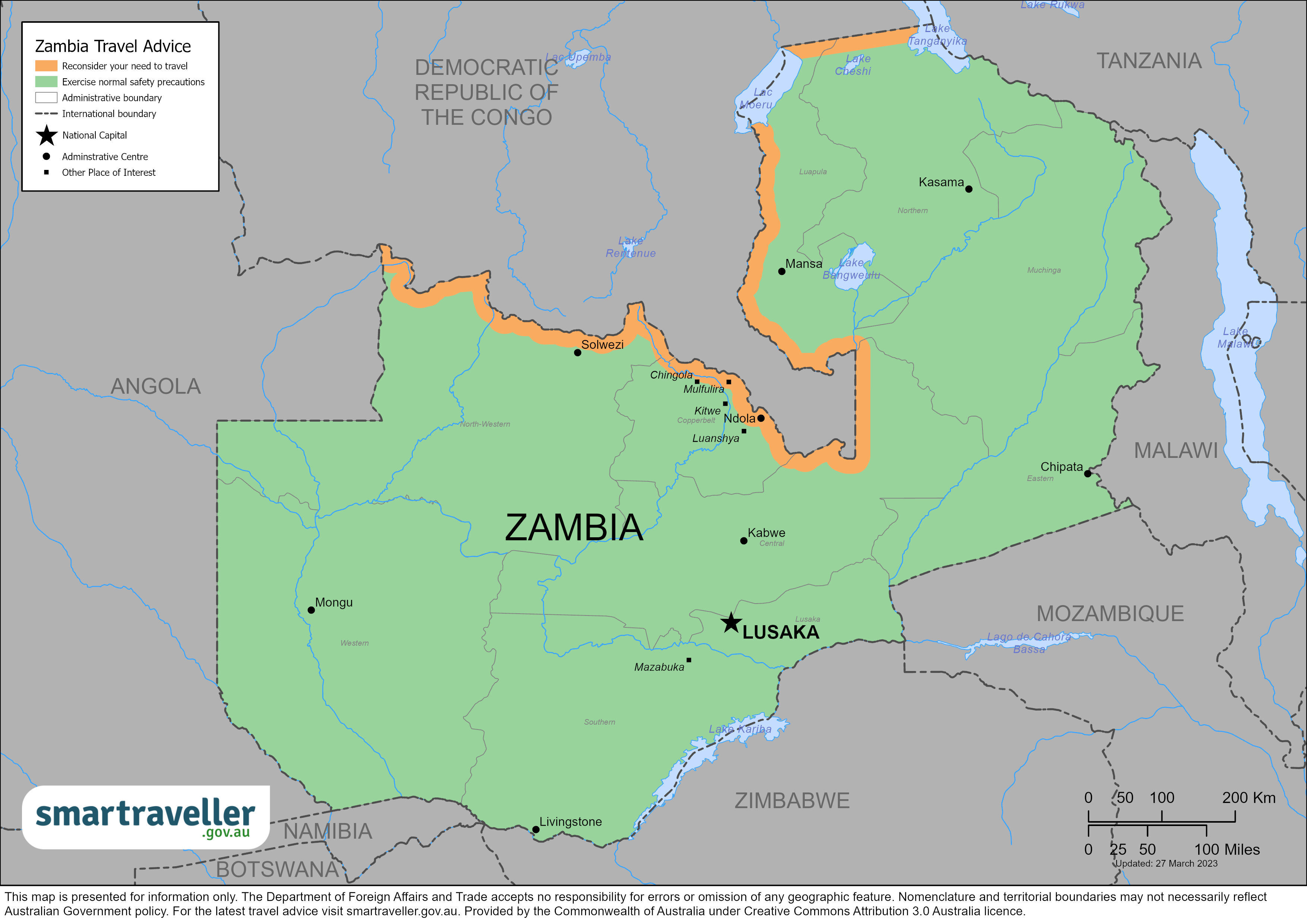
Zambia (PDF 317.92 KB)
Africa (PDF 1.68 MB)
Local emergency contacts
Fire and rescue services, medical emergencies.
Call 999 or go to the hospital.
Call 999 or go to the local police station.
Advice levels
Reconsider your need to travel to border areas with the Democratic Republic of the Congo.
Reconsider your need to travel to border areas with the Democratic Republic of the Congo due to the threat of armed criminal gangs.
- Opportunistic petty crime, including pickpocketing, bag snatching, and vehicle break-ins, is common. Security risks increase after dark, especially in tourist areas and city centres. Stay alert to your surroundings. Avoid walking alone or travelling after dark. Keep vehicle doors locked, windows up and valuables out of sight, even when moving.
- Spontaneous demonstrations are common, and even peaceful demonstrations can turn violent. Avoid all protests, political rallies and large public gatherings.
- Date-rape drugs have been used in bars and restaurants in Lusaka. Always keep a close eye on your food and drinks. If you're not sure it's safe, leave it.
- Thieves sometimes follow people after they withdraw money from ATMs. Avoid using ATMs at night, and be vigilant of your surroundings as you withdraw money.
Full travel advice: Safety
- Medications containing diphenhydramine, such as Benadryl, are illegal in Zambia.
- The rate of HIV/AIDS infection in Zambia is high. Take steps to reduce your risk of exposure to the virus. If you're the victim of a violent crime, see a doctor immediately.
- Malaria and other insect-borne diseases occur. Cholera and other infectious diseases are common. There are currently outbreaks of cholera and anthrax. Boil all drinking water or drink bottled water in rural areas. Avoid contact with animals and do not eat raw or uncooked meat. Don't swim in freshwater. Use insect repellent.
- The standard of medical facilities in Zambia is poor and medical supplies are limited. Make sure you know your blood type. Carry a medical kit.
Full travel advice: Health
- You are subject to all local laws and penalties.
- Zambian authorities don't always contact the Australian Embassy in Harare when they detain or arrest Australians. If you're detained, ask to contact an Australian Embassy consular official in Harare.
- Police and border officials can ask to see your passport and immigration stamp or visa at any time. They could detain or arrest you if you don't have them.
- Consensual sexual activity between individuals of the same sex is illegal in Zambia. If convicted, you could face long terms of imprisonment.
Full travel advice: Local laws
- Australians don't require a visa to enter Zambia.
- Ordinary visitors and tourists can enter for a 90-day visit in any period of 12 months from the day of first entry into Zambia, while business visitors can enter for 30 days in any period of 12 months.
- Entry and exit conditions can change at short notice. Further information on visas can be found at For Visitors – Zambia Department of Immigration (zambiaimmigration.gov.zm) , or you can contact the nearest high commission/embassy or consulate of Zambia for the latest details.
- You need a valid yellow fever vaccination certificate if you're arriving from a country with widespread yellow fever. If you're travelling from an Ebola-affected area, you may be subject to a medical check at the Zambian border.
Full travel advice: Travel
Local contacts
- The Consular Services Charter tells you what the Australian Government can and can't do to help when you're overseas.
- Australia doesn't have an embassy or consulate in Zambia. For consular help, contact the Australian Embassy in Harare .
- To stay up to date with local information, follow the Embassy’s social media accounts.
Full travel advice: Local contacts
Full advice
Crime persists throughout Zambia, including:
- armed robbery
- petty crime
- home break-ins
Security risks increase after dark, especially in tourist areas and city centres.
Pickpockets and bag snatchers target tourists.
Thieves also target travellers in:
- luxury 4WD vehicles
- bus and railway stations
- shopping areas
There have been violent robberies, some involving fatalities, in Lusaka and on the roads in the Copperbelt region.
To protect yourself from crime:
- stay alert to your surroundings
- avoid walking alone or travelling after dark
- keep vehicle doors locked, windows up and valuables out of sight, even when moving
- avoid changing money in busy public areas
Sexual crime
Date-rape drugs have been used in bars and restaurants in Lusaka.
To help protect yourself:
- always keep a close eye on your food and drinks
- never accept food, drink, chewing gum or cigarettes from strangers
- if you're not sure if it's safe, leave it
If you're the victim of a violent crime, including rape , see a doctor immediately. HIV/AIDS is common.
Business fraud scams are common in Zambia. People have been cheated after being persuaded to travel to Zambia on business.
To avoid a potential scam:
- be alert if you're approached by someone in Zambia who you don't know
- don't send money to anyone until you've made proper checks
If you're the victim of a scam, get legal help.
Don't travel to Zambia to get your money back.
Credit card fraud
Credit card fraud occurs.
To protect yourself from fraud:
- always keep sight of your card when paying for goods or services
- make sure credit cards are swiped no more than necessary
- check that carbon copies are destroyed
Cyber security
You may be at risk of cyber-based threats during overseas travel to any country. Digital identity theft is a growing concern. Your devices and personal data can be compromised, especially if you're connecting to Wi-Fi, using or connecting to shared or public computers, or to Bluetooth.
Social media can also be risky in destinations where there are social or political tensions or laws that may seem unreasonable by Australian standards. Travellers have been arrested for things they have said on social media. Don't comment on local or political events on your social media.
More information:
- Cyber security when travelling overseas
Civil unrest and political tension
Spontaneous demonstrations are common. Public protests and events that draw large groups of people can turn violent.
To protect yourself during a period of unrest:
- monitor the media for possible unrest
- avoid demonstrations, political rallies and large public gatherings
More information:
Demonstrations and civil unrest
Terrorism is a threat worldwide, including in Zambia.
Adventure activities and tours
Local transport and tour operators don't always follow safety and maintenance standards, including adventure activities like rafting at Victoria Falls.
If you plan to do an adventure activity :
- check if your travel insurance policy covers it
- ask about and insist on minimum safety requirements
- always use available safety gear, such as life jackets or seatbelts
If proper safety equipment isn't available, use another provider.
Wildlife safety
Getting too close to wildlife can be dangerous.
Swimming in lakes and rivers is unsafe because wildlife could attack you.
To protect yourself from wildlife:
- respect wildlife laws
- keep a safe and legal distance when looking at wildlife
- don't swim in lakes or rivers
- only use well-known and professional guides or tour operators
- follow park rules and the advice of wardens
Climate and natural disasters
Zambia experiences severe weather , including flooding.
The rainy season is from November to April. Roads may become impassable because of flooding.
To protect yourself if flooding occurs:
- keep your passport in a safe, waterproof place
- closely monitor local media and other sources, such as the Global Disaster Alert and Coordination System
- keep in touch with friends and family
- be ready to change your plans
- try to find higher ground if you can safely
Travel insurance
Get comprehensive travel insurance before you leave.
Your policy needs to cover all overseas medical costs, including medical evacuation. The Australian Government won't pay for these costs.
If you can't afford travel insurance, you can't afford to travel. This applies to everyone, no matter how healthy and fit you are.
If you're not insured, you may have to pay thousands of dollars up-front for medical care.
- what activities and care your policy covers
- that your insurance covers you for the whole time you'll be away
Physical and mental health
Consider your physical and mental health before you travel, especially if you have an existing medical condition.
See your doctor or travel clinic to:
- have a basic health check-up
- ask if your travel plans may affect your health
- plan any vaccinations you need
Do this at least eight weeks before you leave.
If you have immediate concerns for your welfare or the welfare of another Australian, call the 24-hour Consular Emergency Centre on +61 2 6261 3305 or contact your nearest Australian Embassy, High Commission or Consulate to discuss counselling hotlines and services available in your location.
The Australian Embassy in Harare provides consular services to Australians in Zambia.
- General health advice
- Healthy holiday tips (Healthdirect Australia)
Medications
Not all medication available over the counter or by prescription in Australia is available in other countries. Some may even be considered illegal or a controlled substance, even if prescribed by an Australian doctor.
Medications containing diphenhydramine, such as Benadryl, are regulated in Zambia.
If you plan to bring medication, check if it's legal in Zambia. Take enough legal medication for your trip.
If your medication is illegal in Zambia, ask your doctor in Australia about alternatives.
Always carry a copy of your prescription and a dated letter from your doctor saying:
- what the medication is
- your required dosage
- that it's for personal use
You could be arrested and jailed if you don't carry your prescription.
- Zambian Drug Enforcement Commission
Health risks
The rate of HIV/AIDS (World Health Organization) infection in Zambia is high.
Take precautions if engaging in activities that expose you to the virus.
Insect-borne diseases
There is a high risk of malaria throughout the year across Zambia. Consider medication to prevent malaria. Consult your doctor about which medication to take and for how long.
Other insect-borne diseases, including those listed by the World Health Organization:
- chikungunya
- African sleeping sickness
To protect yourself from disease:
- use insect repellent at all times
- wear long, loose, light-coloured clothing
- make sure your accommodation is mosquito-proof
Speak to a doctor if you develop a fever, muscle pain, a rash or severe headache.
Other health risks
Waterborne, foodborne and other infectious diseases are common, including these listed by the World Health Organization:
- tuberculosis
- viral haemorrhagic fevers
Serious outbreaks sometimes occur.
To protect yourself from illness:
- drink boiled water or bottled water with sealed lids in rural areas
- avoid ice cubes in rural areas
- avoid raw and undercooked food, such as salads
- avoid contact with animals
- don't swim in freshwater
If you're bitten or scratched by an animal, get medical help immediately.
- Get medical advice if you have a fever or diarrhoea.
There is currently an outbreak of anthrax in Zambia, affecting both rural and urban provinces. Avoid dead animals or carcasses. Purchase meat from reputable sources, and do not eat raw or undercooked meat. Avoid animal products that could have been sourced from animals that may have died of natural causes. If you suspect that you may have come into contact with anthrax, seek urgent medical advice.
Medical care
Medical facilities.
The standard of medical facilities in Zambia is poor, especially in rural areas.
Medical supplies are limited. Some prescription medicines may not be available.
Know your blood type. Carry a sterile medical kit, including needles and dressings.
Most doctors and hospitals require up-front cash payment.
If you become seriously ill or injured, you may need to be evacuated to a place with better facilities, such as South Africa, Europe or the United States. Medical evacuation can be very expensive.
You're subject to all local laws and penalties, including those that may appear harsh by Australian standards. Research local laws before travelling.
If you're arrested or jailed, the Australian Government will do what it can to help you under our Consular Services Charter . But we can't get you out of trouble or out of jail.
Zambian authorities don't always contact the Australian Embassy in Harare when they detain or arrest an Australian citizen.
If you're detained, you have the right to contact an Australian Embassy consular official in Harare.
- Arrested or jailed overseas
Possession of small quantities of an illegal substance can constitute drug trafficking in Zambia. Penalties for drug-related crimes are severe. They include long prison sentences and heavy fines.
- Carrying or using drugs
Police and border officials can ask to see your passport and immigration stamp or visa at any time. They could detain or arrest you if you don't have them.
Always carry your passport and visa or immigration permit. You can get certified copies from the issuing office.
In Zambia, it's illegal to:
- have pornographic material
- take photos of military areas, buildings or personnel
- buy or trade in endangered wildlife products, such as tortoise shells, ivory and rhino horn, or any products made of these materials without a licence
Consensual sexual activity between individuals of the same sex is illegal in Zambia. If convicted, you could be sentenced to long terms of imprisonment.
- Advice for LGBTI travellers
- Wildlife trade (Department of the Environment and Energy)
Australian laws
Some Australian criminal laws still apply when you're overseas. If you break these laws, you may face prosecution in Australia.
Staying within the law and respecting customs
Dual nationality
Officially, Zambia recognises dual nationals. In practice, authorities may not recognise a second nationality.
Dual nationals can't yet apply to have their other nationality recognised in Zambia.
Local authorities may consider you a Zambian national if you're both an Australian and Zambian national. This limits the consular services we can give if you're arrested or detained. Enter and exit on the same passport.
- Dual nationals
Visas and border measures
Every country or territory decides who can enter or leave through its borders. For specific information about the evidence you'll need to enter a foreign destination, check with the nearest embassy, consulate or immigration department of the destination you're entering.
Visa conditions
Australian passport holders do not require a visa to enter Zambia. Ordinary visitors and tourists can enter for 90 days in any period of 12 months from the day of first entry into Zambia.
Business visitors can enter for 30 days in any period of 12 months. Business visitors may be required to present a letter of invitation from the sponsoring organisation.
If arriving by air, you must have a valid return air ticket. If you're arriving by land or water, you must have enough funds for your stay and departure from Zambia.
A KAZA UNVISA is valid for travel between Zambia and Zimbabwe and day trips to Botswana through the Kaungula border. You can get a KAZA UNVISA if you enter via:
- Lusaka or Livingstone international airports
- Livingstone land border with Zimbabwe
- Kazungula land border with Botswana
You can also apply for a KAZA UNVISA online. It costs US$50 and is valid for 30 days.
Entry and exit conditions can change at short notice. Information on entry and visa requirements can be found at For Visitors – Zambia Department of Immigration (zambiaimmigration.gov.zm) , or contact the nearest high commission embassy or consulate of Zambia for details about visas, currency, customs and quarantine rules.
Permits and departure levy
To work in Zambia, including as a volunteer, you'll need an employment permit. For more details, please see the Zambian Department of Immigration .
To live in Zambia, you'll need a residence permit. For more details, see the Zambian Department of Immigration .
If you don't comply with these or other immigration rules, authorities may detain you.
Some Zambian immigration agents may issue fake documents. Make proper checks before and after using a local agent to get a visa or permit.
If you fly within or out of Zambia, you must pay the National Airports Corporation levy. The levy isn't often included in airline tickets. You'll have to pay the levy in US dollars or Zambian Kwacha.
- Zambian Department of Immigration
Other formalities
Yellow fever vaccination.
You'll need a valid yellow fever vaccination certificate if you're arriving from a country where there's widespread yellow fever.
- Countries with a risk of yellow fever
Ebola virus
If you're travelling from an Ebola-affected area, you may be subject to a medical check at the Zambian border.
Zambian authorities have refused entry to people arriving from Ebola-affected countries. If there's another outbreak, authorities may ban people arriving from affected areas.
To enter Zambia, you must have 6 months validity on your passport and have at least 3 blank pages. If you don't, you may be denied entry.
Some foreign governments and airlines apply the rule inconsistently. Travellers can receive conflicting advice from different sources.
You can end up stranded if your passport is not valid for more than 6 months.
The Australian Government does not set these rules. Check your passport's expiry date before you travel. If you're not sure it'll be valid long enough, consider getting a new passport .
Lost or stolen passport
Your passport is a valuable document. It's attractive to people who may try to use your identity to commit crimes.
Some people may try to trick you into giving them your passport. Always keep it in a safe place.
If your passport is lost or stolen, tell the Australian Government as soon as possible:
- In Australia, contact the Australian Passport Information Service .
- If you're overseas, contact the nearest Australian embassy or consulate .
Travel via South Africa
If you're travelling through South Africa, you'll need a full Australian passport. South Africa does not accept temporary travel documents.
- Travel advice for South Africa
Passport with 'X' gender identifier
Although Australian passports comply with international standards for sex and gender, we can't guarantee that a passport showing 'X' in the sex field will be accepted for entry or transit by another country. Contact the nearest embassy, high commission or consulate of your destination before you arrive at the border to confirm if authorities will accept passports with 'X' gender markers.
- LGBTI travellers
The local currency is the Zambia Kwacha (ZMW).
Declare any ZMW and foreign currency over USD5000 when you arrive and depart. This covers all forms of currency, not only cash.
You must use ZMW to pay in Zambia. It's against the law to quote or pay in foreign currency for local goods or services. If you do, you could be fined or jailed for 10 years.
Use well-known banks or currency exchange companies to change or withdraw money. Fake USD100 and ZMW notes are common.
Zambian banks and foreign exchange agents won't accept US banknotes issued before 2000.
Zambia revalued its currency in 2013. Old notes are not accepted. Make sure you receive correct and legal notes.
Only ATMs in Lusaka accept international cards.
Some hotels, restaurants and shops in major urban centres accept credit cards. Many companies charge a fee to use a credit card.
Credit card fraud occurs in Zambia. See Safety
Local travel
Local restrictions.
Land borders may be closed to non-essential traffic with little or no notice.
Border areas
There may be landmines and other explosives near Zambia's borders with:
- Democratic Republic of Congo (DRC)
These may not be marked.
Off-road travel in these areas is dangerous.
If you travel to these border areas despite the risks, ask local authorities about the safest routes.
Driving permit
To drive in Zambia, you need both:
- a valid Australian driver's licence
- an International Driving Permit (IDP)
You must get your IDP before leaving Australia.
Road travel
You're more likely to be killed in a motor vehicle accident in Zambia than in Australia.
Hazards include:
- poor driving habits
- pedestrians and animals on roads
- poorly maintained vehicles and roads
- not enough lighting
Traffic accidents often happen along the Great East Road in Lusaka.
Cars in Zambia must carry two metallic emergency triangles with white reflective stickers on the front. Red reflective stickers must appear on the back.
Drivers must carry identity documents.
You must get a temporary import permit if you want to take a vehicle into Zambia.
You'll also need to buy third-party insurance at the border. If you're not the vehicle owner, you must have a letter from the owner saying you can use the vehicle in Zambia.
Police roadblocks are common.
If you plan to drive:
- check you have enough insurance cover
- get to know local traffic laws and practices
- if you hire a vehicle, make sure it has emergency triangles
- avoid driving after dark in rural areas
Always carry your ID, such as your driver's licence, when driving.
- Driving or riding
Motorcycles
Ask your travel insurer if your policy covers you using a motorbike or similar vehicle. Your policy may not cover you for accidents in these vehicles.
Always wear a helmet.
Only use registered taxis and limousines, preferably arranged through your hotel.
Public transport
There's no reliable public transport in Zambia.
Avoid long-distance buses. They are poorly maintained and often overloaded.
Boat travel
Travelling on riverboats is dangerous. They can be overloaded and lack necessary lifesaving gear.
Always wear a life jacket, even if others don't.
- Travelling by boat
DFAT doesn't provide information on the safety of individual commercial airlines or flight paths.
Check Zambia's air safety profile with the Aviation Safety Network.
Emergencies
Depending on what you need, contact your:
- family and friends
- travel agent
- insurance provider
Police response, particularly outside major cities, may be slow due to lack of resources.
Always get a police report when you report a crime.
Your insurer should have a 24-hour emergency number.
Consular contacts
Read the Consular Services Charter for what the Australian Government can and can't do to help you overseas.
Australia has an Honorary Consulate in Lusaka, Zambia. It can provide limited consular help.
Australian Honorary Consulate, Lusaka
Dr Tiza Chipungu May and Company, Glass House, 759 Independence Avenue, Roundabout 50975 Lusaka, Zambia
Phone: (+260) 779 108 449 Email: [email protected]
The Australian Embassy in Harare, Zimbabwe, can also provide consular assistance to Australians in Zambia.
Australian Embassy, Harare
1 Green Close Borrowdale Harare, Zimbabwe
Phone: +263 24 2853 235 55 or +263 24 2852 4716 Fax: +263 24 2870 566
Website: zimbabwe.embassy.gov.au Email: [email protected]
Facebook: Australian Embassy, Zimbabwe X (Twitter): @AusEmbZim
Check the Embassy website for details about opening hours and any temporary closures.
24-hour Consular Emergency Centre
In a consular emergency, if you can't contact an embassy, call the 24-hour Consular Emergency Centre on:
- +61 2 6261 3305 from overseas
- 1300 555 135 in Australia

Travelling to Zambia?
Sign up to get the latest travel advice updates..
Be the first to know official government advice when travelling.

MFUWE LODGE

Copenhagen City Tours – 4 Hours

Copenhagen to Helsinki – 7 Days

Amsterdam and Lake IJssel Cycle

Miniatur Wunderland & Historic Port of Hamburg

The Splendour of Saint Petersburg and Moscow

Tour of Caucasus Mountains – Self Guided

9-Day Beijing – Guilin and Shanghai Tour
Ukwenda ku chalo, are you ready to explore the world.
Join our travel club and embark on a journey of discovery, cultural immersion, and incredible experiences. At the Travel Enthusiasts Club, we're more than just a club; we're a community of passionate travelers who share a love for exploring our beautiful planet.
- Member Discounts
- Priority Booking
- Partial Payments
- 5% off local hotels
- 10% off internal hotels
- 5 % off selected restaurants

Travel Tips and Advice

- July 1, 2022
How to travel with paper map
A wonderful serenity has taken possession of my entire soul, like these sweet mornings of spring which I enjoy with…

Pack wisely before traveling
When packing for a vacation the most important things to keep in mind are the length of your trip, the weather, and…

Introducing this amazing tour
You will receive what your body needs on the outside and inside to feel refreshed, energized, and looking your best…
Subscribe to our newsletter
List choice Ovatheme
- Privacy & Policy
- Terms of use
- Travel Blog & Tips
- Shop 24, Eastpark Mall, Lusaka Zambia.
- +260 97 7818943
- [email protected]
- © 2023 Ukwenda Travel & Tours. All Rights Reserved.
- Zambia Tourism
- Zambia Hotels
- Bed and Breakfast Zambia
- Zambia Holiday Rentals
- Flights to Zambia
- Zambia Restaurants
- Zambia Attractions
- Zambia Travel Forum
- Zambia Photos
- All Zambia Hotels
- Zambia Hotel Deals
- Last Minute Hotels in Zambia
- Things to Do
- Restaurants
- Holiday Rentals
- Travel Stories
- Add a Place
- Travel Forum
- Travellers' Choice
- Help Centre
African safari advice - Zambia Forum
- Africa
- Zambia
African safari advice
- United Kingdom Forums
- United States Forums
- Europe Forums
- Canada Forums
- Asia Forums
- Central America Forums
- Africa Forums
- Caribbean Forums
- Mexico Forums
- South Pacific Forums
- South America Forums
- Middle East Forums
- Honeymoons and Romance
- Business Travel
- Train Travel
- Traveling With Disabilities
- Tripadvisor Support
- Solo Travel
- Bargain Travel
- Timeshares / Holiday Rentals
- Africa forums
- Zambia forum

Everyone on this forum is so knowledgeable on African safaris so please can someone help me with my itinerary as I’m sure it could do with some refining.
We aim to stay in as many luxury accommodations as possible availability and budget permitting. So please can you recommend accommodations for us also.
Myself and my wife will be flying into Kenya this September 2024 from the States probably in Kenya Airways. We’ll stay in Nairobi for a night (please can you recommend a nice hotel) and then make our way to the Mara Reserve to see the Migration for two nights (please recommend a luxury rented camp). From the Mara we’ll make our way to Diani Beach for some rest and relaxation for two or three nights (please can you recommend a high end hotel). Is there a better beach in Kenya we can go to that’s not difficult to get to from the Mara?
From there we will move to Uganda and Gorilla trek. We have friends in Uganda that can help us with this portion of the trip and will organize the accommodation and trekking permits.
From Uganda we move on to Zambia and this is where we really need help. We are only going to be in Zambia a very short time so if you were going to choose one National Park in Zambia in September/early October where would you choose and why? I’ve heard the KNP (Basunga Plains) are great this time of year and also know LZNP is marvelous but I’m open to other suggestions? Also please can you reccomend some luxury tented accommodations in the National park you recommend? We then want to go to Victoria falls. My wife stayed at the Royal Livingston 20 years ago and loved it because you could see the falls in all their splendor from the hotel, is the Royal Livingston still the place to go or are their comparable alternatives? From Zambia we move to Madagascar but again we have friends to help us there.
I know this Africa trip is all very last minute and we may not get the accommodation we desire but we’re gonna take our chances.
Thankyou for taking the time to read my post and any feedback and advice is profoundly appreciated.
3 replies to this topic

"We are only going to be in Zambia a very short time so if you were going to choose one National Park in Zambia in September/early October where would you choose and why? I’ve heard the KNP (Basunga Plains) are great this time of year and also know LZNP is marvelous but I’m open to other suggestions? Also please can you reccomend some luxury tented accommodations in the National park you recommend? "
I'd probably suggest Lower Zambezi as a good contrast to your safari in the Mara, from a scenery perspective but also for the river activities. I also see other parks (Kafue, South Luangwa) as needing longer to do them justice.
I'd suggest Old Mondoro as a camp. If you have enough for 5 days, you could combine with Chiawa, the sister camp- they do a "best of both worlds" special for 5 nights.
These are popular camps, especially Old Mondoro which only has 5 rooms, so you may well not find space at this time of year.
Thankyou so much once again for your time in answering my post Stokey.

all your questions should be addressed by travel agents. it is probably more effective you get a few quotes then come back here with follow up questions to compare and contrast. there are gazillion options out there
for a first visit to zambia. south luangwa or lower zambezi is better .
for kenya, stay in private conservancy, and then spend a day in national park (200 usd per person per day , park entry fee by the time you visit ) . honestly with such a short trip, I dont even know if it makes sense to go into national park which is where many of the migrations occur. you should aim for early sep or july/ aug
- Reputable local tour operators 07:06
- Choice of national parks 27 May 2024
- African safari advice 27 May 2024
- Bangweulu Flight 26 May 2024
- Chipata to Mchinji Border and vv 25 May 2024
- Best rhino walk operator 21 May 2024
- Zambia Photography Trip 21 May 2024
- Mfuwe airport closure canceled 19 May 2024
- Helicopter tour - how far in advance to book? 18 May 2024
- Lower Zambezi accommodation options 18 May 2024
- Livingstone Activities? Suggestions? 17 May 2024
- Are there taxis at Zim/Zam border crossing? 17 May 2024
- Zambia - best options for photography 14 May 2024
- Zambia - Reaching the National Parks without a hired car 13 May 2024
- Getting from Lusaka to Livingstone by bus/coach 4 replies
- Visa on arrival procedure 4 replies
- Buses / coach from Lusaka to Livingstone 7 replies
- Proflight flight safety 17 replies
- Zambia safari on a budget ?? 2 replies
- 4x4 hire in Lusaka/Zambia 20 replies
- From Livingstone to Lilongwe 7 replies
- Kapiri Mposhi to Lusaka by bus 3 replies
- Car Hire Zambia to Tanzania 14 replies
- Bus travel and stops between Livingstone/Lusaka and Mfuwe 2 replies
Zambia Hotels and Places to Stay
- Zambia Tourism
- Zambia Hotels
- Zambia Bed and Breakfast
- Zambia Vacation Rentals
- Flights to Zambia
- Zambia Restaurants
- Things to Do in Zambia
- Zambia Travel Forum
- Zambia Photos
- All Zambia Hotels
- Zambia Hotel Deals
- Last Minute Hotels in Zambia
- Things to Do
- Restaurants
- Vacation Rentals
- Travel Stories
- Rental Cars
- Add a Place
- Travel Forum
- Travelers' Choice
- Help Center
Reputable local tour operators - Zambia Forum
- Africa
- Zambia
Reputable local tour operators
- United States Forums
- Europe Forums
- Canada Forums
- Asia Forums
- Central America Forums
- Africa Forums
- Caribbean Forums
- Mexico Forums
- South Pacific Forums
- South America Forums
- Middle East Forums
- Honeymoons and Romance
- Business Travel
- Train Travel
- Traveling With Disabilities
- Tripadvisor Support
- Solo Travel
- Bargain Travel
- Timeshares / Vacation Rentals
- Africa forums
- Zambia forum

23 replies to this topic

I'd look at People and Places in Zambia.
Why do you want a local tour operator specifically?
I use Expert Africa in the UK, they send a lot of guests to Zambia, and deal directly with the camps (not via a ground handler) so I've always been very happy with their pricing.
Thankyou so much for your reply. To be honest i just assumed an overseas tour operator would charge more than a local one tour operator, is this not right then?
My wife and I are visiting four or five countries in Africa on this trip and I just wanted to save as much money as I could.
Do you think it would be prudent just to have one tour operator handle all the travel and accommodation if so who would you recommend?
I’d really appreciate any feedback.
Have a lovely weekend
"an overseas tour operator would charge more than a local one tour operator, is this not right then?"
It's not really that simple. For high end fly in camps where no ground services are required, it will be down to a combination of volume of business (operators who send the most business probably get the best rates) and overheads/profit margins. The latter is where local operators might have the edge, but for the former, it's probably overseas operators. But you want to avoid anyone who uses an intermediary "ground handler", which some overseas operators do if they don't know Zambia well enough. For example, Zambian Ground Handlers does bookings for many overseas operators.
This is just for fly in type camps- somewhere like Tanzania, for a driving based safari where ground services are required (ie vehicles and locally employed guides) a local TO will almost certainly be cheaper.
WIthout knowing what else you plan, it's hard to comment on whether one TO would be good for all.

probably easier if you name the countries you plan to visit
another few locals
voyagers zambia
use [email protected] instead of website email, they replied me after i completed my trip saying my inquiry went into spam
ntanda ventures
[email protected]. their website also list camp specials
i agree with what stokeygirl says. the one potential advantage i can see, that overseas agents may not be as abreast on, is SADC or SADC-like rates for last minute booking. or perhaps they know, but they wont offer unless nudged heh
Thanks for you developed reply Stokey and I appreciate your time in helping me.
I agree you can’t give me a considered opinion without knowing the facts.
Let me give you a general idea of our trip and see if you have any thoughts?
Then comes Zambia my plan is three nights in KNP (Businga Plains) and the same in LZNP and then two nights in Victoria Falls.
So what is the best way for me to book this trip? Have one tour operator plan the whole trip, book accommodation, transfers as well as airfare trips within Africa etc or get separate tour operators in Kenya, Zimbabwe and Zambia?
Thanks once again for all your efforts.
Thankyou for your kind response MRC much appreciated. I’m going to Kenya, Uganda, Zambia and Zimbabwe
This seems like a rather rushed itinerary to me- too much jumping around for short stops. You will spend a lot of time in transit.
Given that this would have to be quite carefully orchestrated, I'd probably try and get one TO to do the whole thing.
My usual TO for Zambia, Expert Africa, don't do Uganda, but I've used Extrarordinary Africa (Alex posts here) for Uganda and I'm sure she could do the rest as well.
Thankyou Stokey much obliged
Stokey one more thing please. We live in the USA should we use a Tour operator based in the USA or can we still use Expert Africa? Have you got any USA based tour operators for us to consider? Thankyou.
Hank, I'm in the US and used ExpertAfrica for a recent trip to Zimbabwe and communications were easy both by email and phone. I'm dealing with them again for 2025.
- Reputable local tour operators 2:06 am
- Choice of national parks May 27, 2024
- African safari advice May 27, 2024
- Bangweulu Flight May 26, 2024
- Chipata to Mchinji Border and vv May 25, 2024
- Best rhino walk operator May 21, 2024
- Zambia Photography Trip May 21, 2024
- Mfuwe airport closure canceled May 19, 2024
- Helicopter tour - how far in advance to book? May 18, 2024
- Lower Zambezi accommodation options May 18, 2024
- Livingstone Activities? Suggestions? May 17, 2024
- Are there taxis at Zim/Zam border crossing? May 17, 2024
- Zambia - best options for photography May 14, 2024
- Zambia - Reaching the National Parks without a hired car May 13, 2024
- Buses / coach from Lusaka to Livingstone 7 replies
- Visa on arrival procedure 4 replies
- From Livingstone to Okavango Delta 3 replies
- 4x4 hire in Lusaka/Zambia 20 replies
- Transportation from Chipata to Lusaka? 3 replies
- From Livingstone to Lilongwe 7 replies
- Bus travel and stops between Livingstone/Lusaka and Mfuwe 2 replies
- ProFlight luggage allowance 26 replies
- Be careful of fraudlent tour operator 21 replies
- Kapiri Mposhi to Lusaka by bus 3 replies
Zambia Hotels and Places to Stay
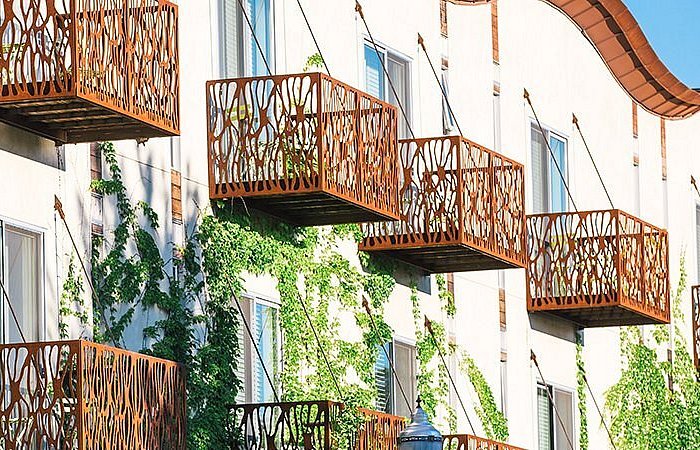
Accessibility Links

Which countries are on the UK amber list for travel?
Holiday favourites france, spain and greece are on the amber list. here’s everything you need to know.

O n September 17, it was announced that the traffic-light system would be scrapped in favour of a simple red and “rest of world” list, which would merge the green and amber categories from October 4. For the latest information on travel restrictions, see the red list restrictions here and the rest of world list here.
When the government announced that travel could restart under a “traffic light” system in the spring, it seemed a sensible enough plan — at first. A scant few months later and we’ve had increasingly arcane travel restrictions such as the much-derided amber-plus list — which shackled sole member, France, for 16 infuriating days before being consigned to history — and rumours of an amber watchlist to match its green cousin.
The system is simple — in principle. All countries and territories in the world are sorted into three tiers, depending on the risk of reimportation of Covid-19.
The green list is easy to define: countries are viewed as posing the lowest risk when it comes to catching the virus. Members include Australia , New Zealand , Gibraltar and Malta . The newest members, following the August 26 update, include Denmark and Canada. Same for the red list. The nations on this high-risk list are considered so dangerous, either with sky-high infection rates or the presence of “variants of concern”, that all returnees to the UK must hole up in a quarantine hotel for 11 nights. Most of South America and southern Africa sits on this register.
The amber list, then. It basically encompasses every nation that doesn’t slot into the green or red lists, and could be sensibly labelled as being of moderate risk to visitors. Most of Europe, including holiday heavyweights Spain , France and Portugal is on the amber list, as well as the US. The good news for holidaymakers is that double-jabbed Britons can visit amber territories without having to quarantine on arrival back in the UK — following green-list rules. The bad news? Not every nation has rolled out the welcome mat for Britons.
Advertisement
The lists are reshuffled every three weeks. Following the August 26 announcement, the next update will be around September 16, although there is chatter that the system could be scrapped entirely in favour of a simple stop/go list before the October 1 ‘checkpoint’ .
Main photo: windmills on the Greek island of Mykonos (Alamy)

What does the amber list mean?
The middle category, sandwiched between the “safe” green list, which requires no quarantine regardless of vaccination status, and the high-risk red list is the default bucket for most of the world. The amber label denotes that a country poses a medium risk of Covid reimportation to UK arrivals.
The rules for arrivals from amber destinations depend on whether you’ve been fully jabbed. UK arrivals who have received a full course of vaccination (at least 14 days beforehand) in either the UK or the EU can swerve quarantine when returning from a country on the amber list and just take a pre-departure test and a Day 2 PCR, whereas the unjabbed must quarantine for ten days at home and take two post-arrival PCR tests .

Which countries are on the amber list?
Every country is automatically on the amber list unless rated safe enough to make the green grade, or risky enough to warrant 11 nights of hotel quarantine at the traveller’s expense.
Here’s the full list:
Akrotiri and Dhekelia Albania Algeria Andorra Armenia Aruba Azerbaijan The Bahamas Bahrain Belarus Belgium Belize Benin Bhutan Bonaire, Sint Eustatius and Saba Bosnia and Herzegovina British Virgin Islands Burkina Faso Cambodia Cameroon Central African Republic Chad China Comoros Congo Cook Islands, Tokelau and Niue Côte d’Ivoire Curaçao Cyprus Czech Republic Denmark Djibouti El Salvador Equatorial Guinea Estonia Fiji France French Polynesia Gabon The Gambia Ghana Greece Greenland Guadeloupe Guatemala Guinea Guinea-Bissau Honduras Hungary India Indonesia Iran Iraq Italy Jamaica Japan Jordan Kazakhstan Kiribati Kosovo Kuwait Kyrgyzstan Laos Lebanon Liberia Libya Liechtenstein Lithuania Luxembourg Macao Madagascar Malaysia Mali Marshall Islands Martinique Mauritania Mauritius Micronesia Moldova Monaco Morocco Nauru Netherlands New Caledonia Nicaragua Niger Nigeria North Korea North Macedonia The Occupied Palestinian Territories Palau Papua New Guinea Poland Portugal (including the Azores ) Qatar Russia Samoa San Marino São Tomé and Príncipe Saudi Arabia Senegal Serbia Solomon Islands South Korea South Sudan Spain (including Canary Islands and Balearic Islands) St Kitts and Nevis St Lucia St Maarten St Martin and St Barthélemy St Pierre and Miquelon St Vincent and the Grenadines Sweden Switzerland Syria Tajikistan Timor-Leste Togo Tonga Turkmenistan Tuvalu UAE Ukraine USA Uzbekistan Vanuatu Vietnam Wallis and Futuna Western Sahara Yemen

What is the difference between the green and amber list?
Amber destinations are considered riskier from a Covid re-importation standpoint than the territories and countries on the slender green list. They will typically have higher infection rates and a slower vaccination roll-out, although this isn’t always the case.
There is a stage between green and amber called the green watchlist, which denotes territories at risk of turning amber. Countries on this list include Croatia, Israel and much of the Caribbean.
When it comes to entry rules, however, the testing and self-isolation requirements are identical for green and amber nations for fully vaccinated travellers.

What tests do I need when I return from an amber-list country?
Every arrival into the UK must take a pre-departure test (this can be a cheaper rapid antigen test), which will be checked by the airline in the destination country — this applies regardless of the colour grading of the destination country.
Amber arrivals, if fully vaccinated, will follow green-list rules. This means they need to take a PCR test within two days of arrival into the UK — but must be organised beforehand, as the order number of the test needs to be provided on the Passenger Locator Form.
Unjabbed amber arrivals need to do the above, plus: quarantine at home for ten days and take another test on day eight. In England, they can take a “Test to Release”, which will shorten the self-isolation period to five days if they test negative.
More details on how to get a PCR test and how much it costs

Which countries are best for an amber-list holiday?
Figuring out a country’s colour coding is just one part of the puzzle, as the light system applies only to arrivals in the UK. Other countries have their own risk systems for Covid, and travellers will need to understand the rules for entry, whether that’s about proof of vaccination, testing or filling in any health forms required. Increasingly, countries are requiring proof of full vaccination from travellers for entry.
The holiday heavy-hitters of Spain, France, Portugal, Greece , Cyprus and Italy — all graded amber — are open to British visitors, but with varying requirements. Travellers might have to take a PCR test before travel.
Spain, for example, is welcoming fully vaccinated Brits entry without a test (and the unvaccinated need to present a negative test); while Portugal insists on a full course of vaccination from UK arrivals, plus an additional negative Covid test taken within a certain timeframe.
Greece and its islands remain open to Britons, either fully jabbed and unjabbed with a negative test; the same is true of Cyprus.
The best thing to do is scrutinise Foreign Office advice pages before planning a trip, understanding what documentation is required and within what timeframe, as the advice changes frequently.
More details about travel restrictions as well as trip ideas to Europe and further afield

What happens if the country I’ve travelled to moves from the amber list to the red?
The next step down from the amber list is the red grade: countries on this list are considered highly risky for Covid, and all arrivals — even if they just pass through in transit — must go into 11 nights of hotel quarantine, at a cost of £2,285 per single adult and £1,380 per additional adult.
There is usually at least 72 hours’ notice given before a country changes colour, which gives travellers a chance to make their way back to the UK. In the past, airlines have been understanding of the situation and offered travellers free flight changes.
Travel insurance is unlikely to cover any changes to the government’s light system. For more details, see our piece on travel insurance .
Sign up for the Times Travel Newsletter here .
UK Edition Change
- UK Politics
- News Videos
- Paris 2024 Olympics
- Rugby Union
- Sport Videos
- John Rentoul
- Mary Dejevsky
- Andrew Grice
- Sean O’Grady
- Photography
- Theatre & Dance
- Culture Videos
- Fitness & Wellbeing
- Food & Drink
- Health & Families
- Royal Family
- Electric Vehicles
- Car Insurance Deals
- Lifestyle Videos
- UK Hotel Reviews
- News & Advice
- Simon Calder
- Australia & New Zealand
- South America
- C. America & Caribbean
- Middle East
- Politics Explained
- News Analysis
- Today’s Edition
- Home & Garden
- Broadband deals
- Fashion & Beauty
- Travel & Outdoors
- Sports & Fitness
- Sustainable Living
- Climate Videos
- Solar Panels
- Behind The Headlines
- On The Ground
- Decomplicated
- You Ask The Questions
- Binge Watch
- Travel Smart
- Watch on your TV
- Crosswords & Puzzles
- Most Commented
- Newsletters
- Ask Me Anything
- Virtual Events
- Betting Sites
- Online Casinos
- Wine Offers
Thank you for registering
Please refresh the page or navigate to another page on the site to be automatically logged in Please refresh your browser to be logged in
Extreme weather. A lack of lifesaving vaccines. Africa's cholera crisis is worse than ever
Extreme weather events have hit parts of africa relentlessly in the last three years, with tropical storms, floods and drought causing crises of hunger and displacement, article bookmarked.
Find your bookmarks in your Independent Premium section, under my profile

For free real time breaking news alerts sent straight to your inbox sign up to our breaking news emails
Sign up to our free breaking news emails, thanks for signing up to the breaking news email.
Extreme weather events have hit parts of Africa relentlessly in the last three years, with tropical storms, floods and drought causing crises of hunger and displacement. They leave another deadly threat behind them: some of the continent's worst outbreaks of cholera.
In southern and East Africa , more than 6,000 people have died and nearly 350,000 cases have been reported since a series of cholera outbreaks began in late 2021.
Malawi and Zambia have had their worst outbreaks on record. Zimbabwe has had multiple waves. Mozambique, Kenya, Ethiopia and Somalia also have been badly affected.
All have experienced floods or drought — in some cases, both — and health authorities, scientists and aid agencies say the unprecedented surge of the water-borne bacterial infection in Africa is the newest example of how extreme weather is playing a role in driving disease outbreaks.
“The outbreaks are getting much larger because the extreme climate events are getting much more common," said Tulio de Oliveira, a South Africa-based scientist who studies diseases in the developing world.
De Oliveira, who led a team that identified new coronavirus variants during the COVID-19 pandemic, said southern Africa's latest outbreaks can be traced to the cyclones and floods that hit Malawi in late 2021 and early 2022, carrying the cholera bacteria to areas it doesn't normally reach.
Zimbabwe and Zambia have seen cases rise as they wrestle with severe droughts and people rely on less safe sources of water in their desperation like boreholes, shallow wells and rivers, which can all be contaminated. Days after the deadly flooding in Kenya and other parts of East Africa this month, cholera cases appeared.
The World Health Organization calls cholera a disease of poverty, as it thrives where there is poor sanitation and a lack of clean water. Africa has had eight times as many deaths this year as the Middle East, the second-most affected region.
Historically vulnerable, Africa is even more at risk as it faces the worst impacts of climate change as well as the effect of the El Niño weather phenomenon, health experts say.
In what's become a perfect storm, there's also a global shortage of cholera vaccines, which are needed only in poorer countries.
“It doesn’t affect countries with resources,” said Dr. Daniela Garone, the international medical coordinator for Doctors Without Borders , also known by its French acronym MSF. “So, it doesn’t bring the resources.”
Billions of dollars have been invested into other diseases that predominantly affect the world's most vulnerable, like polio and tuberculosis, largely because those diseases are highly contagious and could cause outbreaks even in rich countries. But that's not the case with cholera, where epidemics remain contained.
WHO said this month there is a “critical shortage” of oral cholera vaccines in the global stockpile. Since the start of 2023, 15 countries — the desperate few — have requested a total of 82 million doses to deal with deadly outbreaks while only 46 million doses were available.
There are just 3.2 million doses left, below the target of having at least 5 million in reserve. While there are currently cholera epidemics in the Middle East, the Americas and Southeast Asia, Africa is by far the worst-affected region.
Vaccines alliance GAVI and UNICEF said last month that the approval of a new cholera vaccine would boost stocks. But the result of the shortage has already been measured in deaths.
Lilanda, a township on the edge of the Zambian capital of Lusaka, is a typical cholera hot spot. Stagnant pools of water dot the dirt roads. Clean water is like gold dust. Here, over two awful days in January, Mildred Banda saw her 1-year-old son die from cholera and rushed to save the life of her teenage daughter.
Cholera shouldn't be killing anyone. The disease is easily treated and easily prevented — and the vaccines are relatively simple to produce.
That didn't help Banda's son, Ndanji.
When he fell sick with diarrhea, he was treated with an oral rehydration solution at a clinic and released. He slipped back into dehydration that night at home. Banda feels terrible guilt.
“I should have noticed earlier that my son was not feeling well,” she said, sitting in her tiny concrete house. “I should have acted faster and taken him back to the clinic. I should have taken him back to save his life.”
Because of the vaccine shortage, Zambia couldn’t undertake a preventative vaccination campaign after neighboring Malawi's outbreak. That should have been a warning call, said de Oliveira. Zambia only made an emergency request when its cases started mounting.
The doses that might have saved Ndanji started arriving in mid-January. He died on Jan. 6.
In Zimbabwe, a drought worsened by El Niño has seen cholera take hold in distant rural areas as well as its traditional hot spots of crowded urban neighborhoods.
Abi Kebra Belaye, MSF representative for Zimbabwe, said the southern African nation normally has around 17 hard-hit areas, mostly urban. This year, cholera spread to 62 districts as the struggle to find water heightened the risk.
“This part of Africa is paying the highest price of climate change,” Kebra Belaye said.
Augustine Chonyera, who hails from a cholera-prone part of the capital, Harare, was shocked when he recently visited the sparsely populated rural district of Buhera.
He said he heard grim tales of the impact of the disease: a family losing five members, a husband and wife dying within hours of each other and local businesses using delivery trucks to take the sick to a clinic several kilometers (miles) away.
“It seems now the people in rural areas are in more danger than us. I still wonder how it happened,” Chonyera said.
He said he returned home as soon as he could — after giving a large bottle of treated water he had brought with him to an elderly woman.
Mutsaka reported from Harare, Zimbabwe. Imray reported from Cape Town, South Africa.
The Associated Press receives financial support for global health and development coverage in Africa from the Bill & Melinda Gates Foundation Trust. The AP is solely responsible for all content. Find AP’s standards for working with philanthropies, a list of supporters and funded coverage areas at AP.org.
Subscribe to Independent Premium to bookmark this article
Want to bookmark your favourite articles and stories to read or reference later? Start your Independent Premium subscription today.
New to The Independent?
Or if you would prefer:
Want an ad-free experience?
Hi {{indy.fullName}}
- My Independent Premium
- Account details
- Help centre
Post-COVID, China Is Back in Africa and Doubling Down on Minerals

FILE PHOTO: President of China Xi Jinping and South African President Cyril Ramaphosa attend the China-Africa Leaders' Roundtable Dialogue on the last day of the BRICS Summit, in Johannesburg, South Africa, August 24, 2023. REUTERS/Alet Pretorius/Pool/File Photo
By Rachel Savage and Duncan Miriri
JOHANNESBURG/NAIROBI (Reuters) - China's flagship economic cooperation program is bouncing back after a lull during the global pandemic, with Africa a primary focus, according to a Reuters analysis of lending, investment and trade data.
Chinese leaders have been citing the billions of dollars committed to new construction projects and record two-way trade as evidence of their commitment to assist with the continent's modernisation and foster "win-win" cooperation.
But the data reveals a more complex relationship, one that is still largely extractive and has so far failed to live up to some of Beijing's rhetoric about the Belt and Road Initiative, President Xi Jinping's strategy to build an infrastructure network connecting China to the world.
While new Chinese investment in Africa increased 114% last year, according to the Griffith Asia Institute at Australia's Griffith University, it was heavily focused on minerals essential to the global energy transition and China's plans to revive its own flagging economy.
Those minerals and oil also dominated trade. As efforts falter to boost other imports from Africa, including agricultural products and manufactured goods, the continent's trade deficit with China has ballooned.
Chinese sovereign lending, once the main source of financing for Africa's infrastructure, is at its lowest level in two decades. And public-private partnerships (PPPs), which China has touted as its new preferred investment vehicle globally, have yet to gain traction in Africa.
The result is a more one-sided relationship than China says it wants, one that is dominated by imports of Africa's raw materials and that some analysts argue contains echoes of colonial-era Europe's economic relations with the continent.
"This is something late-19th century Britain would recognise," said Eric Olander, co-founder of the China-Global South Project website and podcast.
China rejects such assertions.
"Africa has the right, capacity and wisdom to develop its external relations and choose its partners," China's foreign ministry wrote in response to Reuters' questions.
"China's practical support for Africa's path of modernisation in accordance with its own characteristics has been welcomed by an increasing number of African countries."
A PIVOT WITH POTENTIAL?
China's engagement in Africa, a focus of the Belt and Road Initiative (BRI), grew rapidly in the two decades before the COVID-19 pandemic. Chinese companies built ports, hydropower plants and railways across the continent, financed mainly through sovereign loans. Annual lending commitments peaked at $28.4 billion in 2016, according to the Global China Initiative at Boston University.
But many projects proved unprofitable. As some governments struggled to repay loans, China cut lending. COVID-19 then pushed it to turn inward, and Chinese construction projects in Africa fell.
A rebound in sovereign lending is not expected.
Policymakers in Beijing have instead been pushing Chinese companies to take equity stakes and operate infrastructure they build for foreign governments. The aim, China analysts say, is to help companies win higher-value contracts and, by giving them skin in the game, ensure the projects are economically viable.
Lending to Special Purpose Vehicles (SPVs), perhaps the most common means of PPP infrastructure investment, has been growing as a proportion of China's overseas loans, according to figures shared exclusively with Reuters by AidData, a research centre at U.S. university William & Mary.
The $668-million Nairobi Expressway, a public-private partnership built and run by the state-owned China Road and Bridge Corporation (CRBC), could be proof of concept for the model in Africa. Since it opened in August 2022, the toll road has been allowing commuters to speed above the Kenyan capital's notorious traffic snarls, beating revenue and usage targets.
Daily average use in March was already 57,000 vehicles, exceeding a 2049 target of around 55,000 set by CRBC in a 2019 presentation on the project's economic viability seen by Reuters.
But few companies are following CRBC's example in Africa. While globally some 45% of Chinese non-emergency lending was to SPVs from 2018 to 2021, the most recent year for which AidData figures are available, the figure was only 27% for Africa.
Analysts point to a number of likely reasons, including a lack of legal frameworks for PPPs in many African countries and the view among some Chinese companies - many of them relative newcomers to PPPs - that African markets are risky.
China's foreign ministry did not directly address a request for comment on the lower SPV figures for Africa. But it said the government encourages Chinese companies to "actively develop new modes of cooperation" such as PPPs to bring more private investment to Africa.
GROWING ENGAGEMENT
The Griffith Asia Institute put China's total engagement in Africa - a combination of construction contracts and investment commitments - at $21.7 billion last year, making it the largest regional recipient.
Data from the American Enterprise Institute, a Washington-based think tank, showed investments hitting nearly $11 billion in 2023, the highest level since it began tracking Chinese economic activity in Africa in 2005.
Some $7.8 billion of that went to mining, like Botswana's Khoemacau copper mine, which China's MMG Ltd bought for $1.9 billion, and cobalt and lithium mines in countries including Namibia, Zambia and Zimbabwe.
The hunt for critical minerals is driving infrastructure construction as well. In January, for example, Chinese companies pledged up to $7 billion in infrastructure investment under a revision of their copper and cobalt joint venture agreement with Democratic Republic of Congo.
Western and Gulf powers are also racing to lead the world's energy transition, with the United States and European governments backing the Lobito Corridor, a rail link to bring metals from Zambia and Congo to Africa's Atlantic coast.
African leaders have struggled, however, to raise financing for some other priority projects.
Despite the success of the Nairobi Expressway, for example, work on several Kenyan roads stalled when the government ran out of money to pay the Chinese construction firms.
During a visit to Beijing last October, President William Ruto asked for a $1 billion loan to complete the projects.
A Chinese foreign ministry spokesman, Wang Wenbin, said discussions about the request were ongoing. Kenya's finance ministry did not respond to a request for comment.
The final phase of a railway line intended to traverse Kenya from its main port to the border with Uganda has been in similar limbo since Chinese financing dried up in 2019. Uganda cancelled the contract for its portion of the line in 2022, after Chinese backers pulled out.
When asked about the decline in lending for African infrastructure, Chinese officials point to a pivot to trade and investment, arguing that BRI-generated trade boosts Africa's wealth and development.
Two-way trade reached a record $282 billion last year, according to Chinese customs data. But at the same time, the value of Africa's exports to China fell 7%, mainly due to a decline in oil prices, and its trade deficit widened 46%.
Chinese officials have sought to assuage the concerns of some African leaders.
At a summit in Johannesburg last August, Xi said Beijing would launch initiatives to support the continent's manufacturing and agricultural modernisation - sectors African policymakers consider key to closing trade gaps, diversifying their economies and creating jobs.
China has also pledged to increase agricultural imports from Africa.
Such efforts, for now, are coming up short.
With one of Africa's largest trade deficits to China, Kenya has been pushing to increase access to the world's second-largest consumer market, recently gaining it for avocados and seafood. But cumbersome health and hygiene regulations mean Chinese consumers remain out of reach for many producers.
"The Chinese market is a new one," said Ernest Muthomi, CEO of the Avocado Society of Kenya. "It was a challenge because you have to install the equipment for fumigation."
Of 20 billion shillings ($150.94 million) worth of avocados exported last year, just 10% went to China.
Overall, Kenyan exports to China fell over 15% to $228 million, Chinese customs data showed, as a decline in titanium production led to a drop in shipments of the metal - a key export to China.
But Chinese manufactured goods kept coming.
That's not sustainable, said Francis Mangeni, an advisor at the Secretariat of the African Continental Free Trade Area.
Unless African nations can add value to their exports through increased processing and manufacturing, he said, "we are just exporting raw minerals to fuel their economy."
($1 = 132.5000 Kenyan shillings)
(Reporting by Rachel Savage in Johannesburg and Duncan Miriri in Nairobi; Additional reporting by Elias Biryabarema in Kampala, Joe Cash in Beijing, Nyasha Chingono in Harare, Chris Mfula in Lusaka and Felix Njini in Johannesburg; Editing by Joe Bavier and Alexandra Zavis)
Copyright 2024 Thomson Reuters .
Tags: Africa , international trade , mining , infrastructure
The Best Financial Tools for You
Credit Cards

Personal Loans

Comparative assessments and other editorial opinions are those of U.S. News and have not been previously reviewed, approved or endorsed by any other entities, such as banks, credit card issuers or travel companies. The content on this page is accurate as of the posting date; however, some of our partner offers may have expired.

Subscribe to our daily newsletter to get investing advice, rankings and stock market news.
See a newsletter example .
You May Also Like
Best vanguard funds for beginners.
Tony Dong May 28, 2024

10 of the Best Stocks to Buy for 2024
John Divine May 28, 2024

9 Best Cheap Stocks to Buy Under $10
Wayne Duggan May 28, 2024

8 Stocks Warren Buffett Bought & Sold
Jeff Reeves May 28, 2024

Top-Rated ETFs to Buy Now
Marc Guberti May 28, 2024

7 Best Long-Term Stocks to Buy
Glenn Fydenkevez May 24, 2024

What Is Par Value for Stocks and Bonds?
Coryanne Hicks May 24, 2024

11 Top Sector ETFs to Buy
Jeff Reeves May 24, 2024

Stock Market Holidays in 2024
Daniel J. Lee May 24, 2024

George Soros' 6 Top Stock Picks
Brian O'Connell May 23, 2024

5 Best Undervalued Blue-Chip Stocks
Glenn Fydenkevez May 23, 2024

15 Best Dividend Stocks to Buy for 2024
Ian Bezek May 23, 2024

7 Best Semiconductor ETFs to Buy in 2024
Tony Dong May 23, 2024
Best Investments for 2024
Kate Stalter May 23, 2024

7 Best Cryptocurrency Exchanges
Jeff Reeves May 22, 2024

6 Best Biotech Stocks to Buy for 2024
Wayne Duggan May 22, 2024

Bill Gates Portfolio: 7 Best Stocks
Brian O'Connell May 22, 2024

Top Fidelity Funds for Retirement
Tony Dong May 22, 2024

7 Stocks That Outperform in a Recession

8 Best High-Yield REITs to Buy
Tony Dong May 21, 2024

Leanne Kiernan: ‘There’s always going to be people trying to bring you down, if you let them’
The liverpool and republic of ireland striker looks forward to the euro 2025 qualifiers against sweden ... and the birth of a baby cow.
Leanne Kiernan in action for Ireland against Zambia last June. Photograph: Evan Treacy/Inpho
“I’ll show you a photo,” says Leanne Kiernan as she whips out her phone and clicks on her Instagram account. She holds the image up proudly, like she’s showing off her first born. Except it’s a cow called Rosie. “Aw,” her audience coos, unconvincingly. Kiernan beams. “She’s due in July,” she says. And she is so excited about this, Eileen Gleeson might fret over her availability for that month’s Euro 2025 qualifiers against England and France. It would, surely, be the first time the FAI had to state “cow in labour” as a reason for a player missing international duty.
View this post on Instagram A post shared by ʟᴇᴀɴɴᴇ ᴋɪᴇʀɴᴀɴ (@leannekiernan_)
Kiernan is in fine form, and not just because of the impending pitter patter of bovine feet. She finished up yet another injury-interrupted club season by scoring a hat-trick for Liverpool in their final WSL fixture, and she has featured in each of the Republic of Ireland ’s last four games. “Eilo [Gleeson] has a lot of trust in me, which is really nice,” she says.
Few players are more deserving of a change in fortunes than the 25-year-old from Cavan. She made her senior Irish debut eight years ago, but an unrelenting string of injuries since then have limited her to 32 caps, when her talent could easily have yielded at least twice that tally.
She has “metal things and wires” in her ankle, which occasionally set off alarms in airports, after the injury that ended her 2022-23 season on its opening day. And her recovery from that blow, as well as having to overcome a hip problem and a Covid-like “bad flu”, also affected the season just ended. But now? “I’m feeling really good,” she says after joining up with the Irish squad in advance of the qualifying games against Sweden in Dublin on Friday and in Stockholm next Tuesday.
Jess Ziu: ‘I’m just happy to be able to step on to the pitch’
:quality(70)/cloudfront-eu-central-1.images.arcpublishing.com/irishtimes/CU7PHLXAWREBFPGUTSQKO6DHNA.jpg)
John O’Shea’s Ireland squad announcement overshadowed by Damien Duff’s remarks
:quality(70)/cloudfront-eu-central-1.images.arcpublishing.com/irishtimes/SAITPP74SZBX5KZGBAUDFWJLQU.jpg)
Tom Cannon included as John O’Shea names Ireland squad for upcoming friendlies
:quality(70):focal(2813x521:2823x531)/cloudfront-eu-central-1.images.arcpublishing.com/irishtimes/TYPTV4OMC5CBPJVIGBHLNJANFA.jpg)
It’s been a gruelling trip, though. “Those 15 months when I was injured were the hardest I’ve ever been tested in my life, sport-wise,” says Kiernan, who, having lost her eldest brother Patrick in a car crash 11 years ago, puts the stress on “sport-wise”.
“I guess you don’t realise how grateful you are that you can wake up and go training, go play and be a part of something until it’s taken away from you. But I feel like I am a lot more grateful for everything in life now. I got to see my family more, and that was really nice. My mam came over to Liverpool for three weeks at a time and that was the longest I got with her since I was a kid. It was a blessing disguise. I was always ‘why me?’, but I really do look back now and think everything was meant to happen like this.”
She’s philosophical too about the downside of the game, like the dog’s abuse that can come your way when you make a mistake on the pitch. She was showered with it last month after that moment in Metz when she failed to pick out an unmarked Katie McCabe in the box three minutes from time in the 1-0 defeat by France, instead blazing a shot wide.
“I’m not on a lot of social media, so I didn’t see any of it. We have a lot of keyboard warriors that you just ignore. It’s football. People make mistakes. And then you have a second of glory, and it’s brilliant. We learn, we go again. There’s always going to be one or two people trying to bring you down, if you let them. I’m like, go on, say what you want, but you have no idea what we’re doing to get to this stage.”
And she adopted a similar philosophy to cope with missing out on last summer’s World Cup. “I’m very much like, what’s for me won’t pass me. I wasn’t supposed to go to that World Cup, and I’m okay with that. I had a really nice summer. Every summer I come home, I turn off my football group chats and I just reset. I live with girls from football. All we do is talk about football. You have 10 months of the year when it’s only football. I go home and I just like being out in nature with animals, just away from it all. Of course, it was great to see the girls on the big stage. I know that my time will come. I wasn’t ready for that one, but I’ll be ready for the next one for sure.”
Besides, she had plenty to keep herself occupied during the World Cup, like finding a father for Rosie’s “wee baby”. “That was my project,” she says.
The family business is pig farming, but Kiernan discovered a grá for cows in her youth. “I remember for my First Communion, I went and spent my money on cows instead of make-up or jewellery,” she says.
She now has three cows – and, all going well, four come July. She spotted Rosie two years ago while “ripping around the fields” with her brother on his quad when she was home for the summer. “I thought, this is the one that I want, I’d love a wee baby calf out of it.” It’ll be a shorthorn calf. Her audience nodded knowingly, despite an inability to tell a shorthorn calf from a pheasant. Best wishes to the mum to be.
- Sign up for push alerts and have the best news, analysis and comment delivered directly to your phone
- Join The Irish Times on WhatsApp and stay up to date
- Listen to our Inside Politics podcast for the best political chat and analysis
Mary Hannigan
Mary Hannigan is a sports writer with The Irish Times
IN THIS SECTION
Anthony martial confirms manchester united departure, ‘my brother is meeting fabulous women, but they leave because he does not want more children’, tiktok video revealing access to medical records spurs inquiry into hse data breaches, de niro held, questioned in paris over vice ring, ‘parenting and work takes up every minute i have. i’m losing myself’, bids on north dock offices fall hopelessly short of €130m sought by receivers, latest stories, man charged over trespass at leinster house in bid to remove palestinian flag, gaa and gpa call for immediate gaza ceasefire in joint statement, man accused of having sex in belfast church is barred from area, stop ‘punching down’ and ‘scapegoating vulnerable’ asylum seekers, government told by ngos, average weekly earnings rise by 4.7% as workers seek real wage catch-up.
:quality(70)/cloudfront-eu-central-1.images.arcpublishing.com/irishtimes/YVIRIOZQ35EWRPZXR27KGMO6YU.png)
- Terms & Conditions
- Privacy Policy
- Cookie Information
- Cookie Settings
- Community Standards

IMAGES
VIDEO
COMMENTS
Still current at: 24 May 2024 Updated: 25 April 2024 Latest update: Information on the fact that tourists may remain in Zambia for a total of 90 days in any 12 month period ('Entry requirements ...
Advice for All Destinations COVID-19. Read the information on the COVID-19: Health Considerations for Travel page for advice on travelling during the COVID-19 pandemic.. Vaccinations and malaria risk. Review both the Vaccination and Malaria sections on this page to find out if you may need vaccines and/or a malaria risk assessment before you travel to this country.
This advice reflects the UK government's understanding of current rules for people travelling on a full 'British citizen' passport from the UK, for the most common types of travel. The authorities in Zambia set and enforce entry rules.
Your ultimate Zambia travel guide, with tips, ideas on things to do, and best things to see in Zambia. Great for first-time and returning travelers. ... Staff can sometimes help you out with finding good deals on local safaris or for general travel advice. Mid-Range: For mid-range hotels, expect to pay around 660-1,800 ZMW per night. Amenities ...
Symptoms usually begin with a fever (high temperature) of 38°C (100°F) or more. Other symptoms may include feeling cold and shivery, headache, nausea, vomiting and aching muscles. Symptoms may appear between eight days and one year after the infected mosquito bite.
Climate. Average summer temperatures: 17°C to 31°C. Average winter temperatures: 9°C to 23°C. Rainy season: November to April. Refer to "best time to visit Zambia" for climate charts and advice on the best times for wildlife-viewing.
General Zambia Travel Tips. - Always travel with toilet paper, hand sanitizer, and small change. Sometimes it can be difficult to break 100 kwacha bills. - Look out for citenge material or traditional fabric. You can get clothes and accessories tailored affordably. Makes for a great souvenir or gift!
Zambia travel guide - essential info. Below is a beginner's guide to Zambia with essential travel facts such as dominant language spoken, typical flight time from the UK and the local currency. You can also check whether visas are required and what plug adapter you need to pack. Zambia - quick facts. Flight time . 14 hours.
Call us in Washington, D.C. at 1-888-407-4747 (toll-free in the United States and Canada) or 1-202-501-4444 (from all other countries) from 8:00 a.m. to 8:00 p.m., Eastern Standard Time, Monday through Friday (except U.S. federal holidays). See the State Department's travel website for the Worldwide Caution and Travel Advisories.
Reissued with obsolete COVID-19 page links removed. Exercise normal precautions in Zambia. Read the country information page for additional information about travel to Zambia.. If you decide to travel to Zambia: Enroll in the Smart Traveler Enrollment Program to receive Alerts and make it easier to locate you in an emergency.; Follow the Department of State on Facebook and Twitter.
Travel Advice. Find all the must-know travel requirements and destination information on Zambia before you embark on your adventure. Currency. Banks and foreign exchange bureaus are available at all international airports and main towns. Most hotels and lodges accept Visa and MasterCard.
Advice. Travellers'. Diarrhoea Kits. Available. Located in Southern Africa, Zambia is a gorgeous country that provides travellers with a glimpse at beautiful wilderness and wildlife. Though the country is landlocked, there are three rivers flowing through Zambia. One of the most popular landmarks is Victoria Falls, which is one of the World ...
Offering more than just dates and names, they strive to offer real insight into their country. FCDO Travel Aware Partner. 24/7 emergency UK support while abroad. Established in 1996. Start planning your Zambia holiday in 2024 or 2025 with an Audley specialist, who'll design your trip using first-hand knowledge.
All international travelers should be fully vaccinated against measles with the measles-mumps-rubella (MMR) vaccine, including an early dose for infants 6-11 months, according to CDC's measles vaccination recommendations for international travel. In Zambia poliovirus has been identified in the past year.
Travellers are cautioned to avoid contact with animals, including dogs, livestock (pigs, cows), monkeys, snakes, rodents, birds, and bats, and to avoid eating undercooked wild game. Closely supervise children, as they are more likely to come in contact with animals. Cutaneous anthrax.
Boil all drinking water or drink bottled water in rural areas. Avoid contact with animals and do not eat raw or uncooked meat. Don't swim in freshwater. Use insect repellent. The standard of medical facilities in Zambia is poor and medical supplies are limited. Make sure you know your blood type. Carry a medical kit.
Join our travel club and embark on a journey of discovery, cultural immersion, and incredible experiences. At the Travel Enthusiasts Club, we're more than just a club; we're a community of passionate travelers who share a love for exploring our beautiful planet. Member Discounts. Priority Booking. Partial Payments.
African safari advice - Zambia Forum. Africa ; Zambia ; Zambia Travel Forum; Search. Browse all 3,391 Zambia topics » African safari advice Watch this Topic. Browse forums; All. Browse by destination. United Kingdom Forums; ... From Uganda we move on to Zambia and this is where we really need help. We are only going to be in Zambia a very ...
Answer 1 of 13: Hi Friends Please can someone recommend reputable tour operators in Zambia to help us formulate a safari itinerary within Zambia and arrange flights and accommodation. We'd prefer a tour operator that routinely works with high end luxury...
O n September 17, it was announced that the traffic-light system would be scrapped in favour of a simple red and "rest of world" list, which would merge the green and amber categories from October 4. For the latest information on travel restrictions, see the red list restrictions here and the rest of world list here.. When the government announced that travel could restart under a ...
Extreme weather events have hit parts of Africa relentlessly in the last three years, with tropical storms, floods and drought causing crises of hunger and displacement
Lupiya Financial Services, a pioneering Zambian neobank, has announced its participation in the upcoming GITEX Africa 2024 (https://GITEXAfrica.com) technology exhibition in Marrakech, Morocco.The event provides a platform for the company to showcase its cutting-edge fintech solutions aimed at bridging the financial inclusion gap in Africa.
The $668-million Nairobi Expressway, a public-private partnership built and run by the state-owned China Road and Bridge Corporation (CRBC), could be proof of concept for the model in Africa.
It's been a gruelling trip, though. "Those 15 months when I was injured were the hardest I've ever been tested in my life, sport-wise," says Kiernan, who, having lost her eldest brother ...